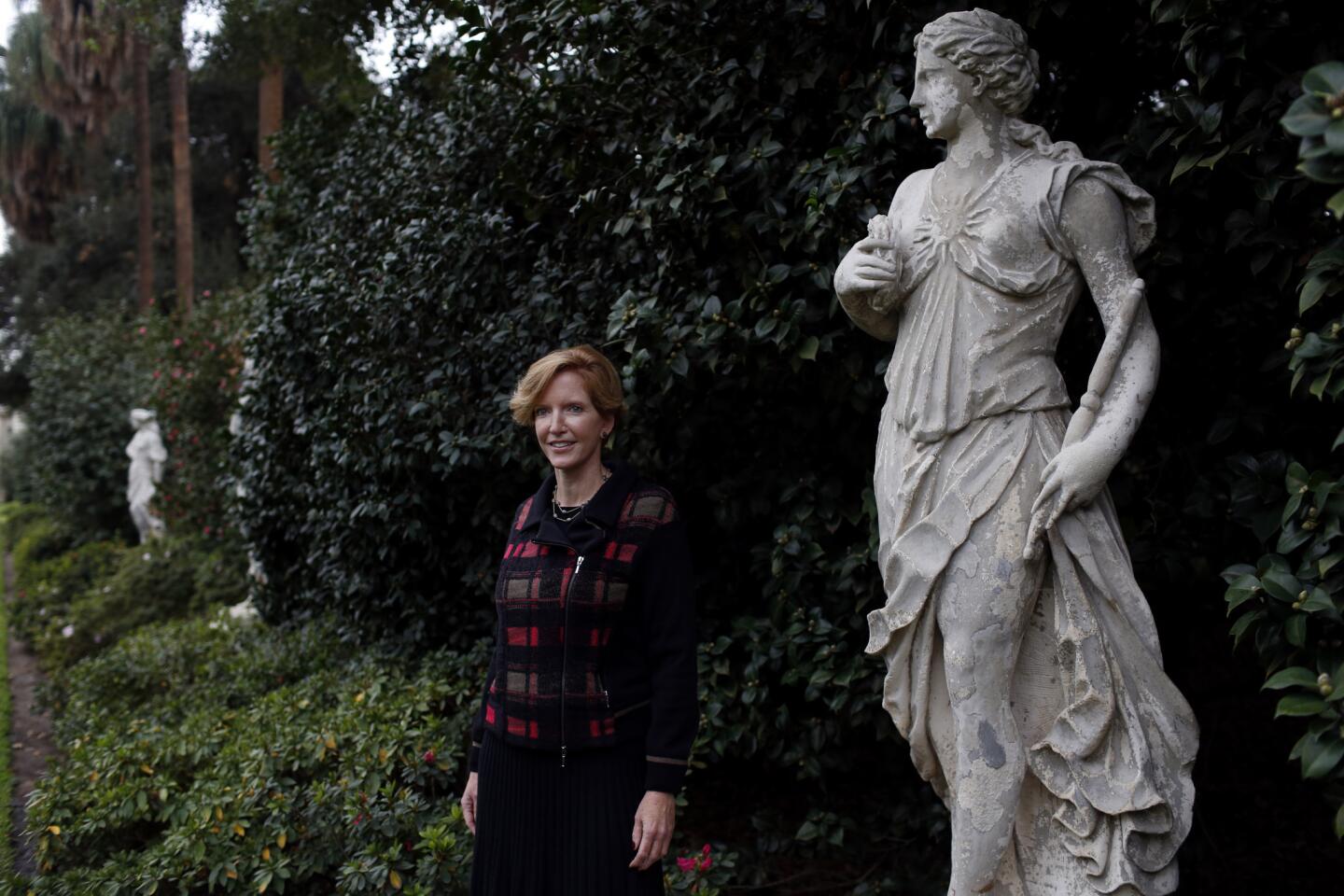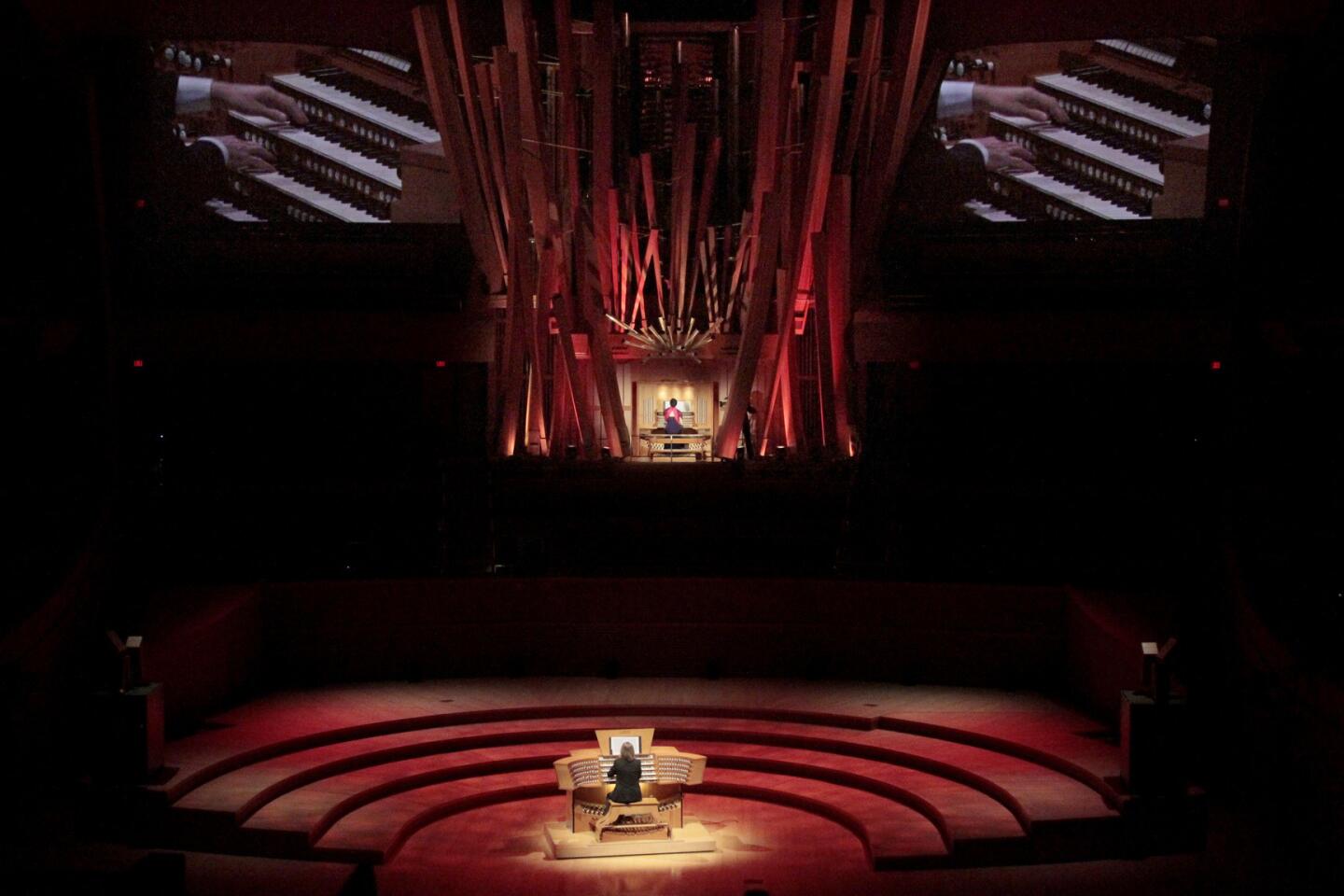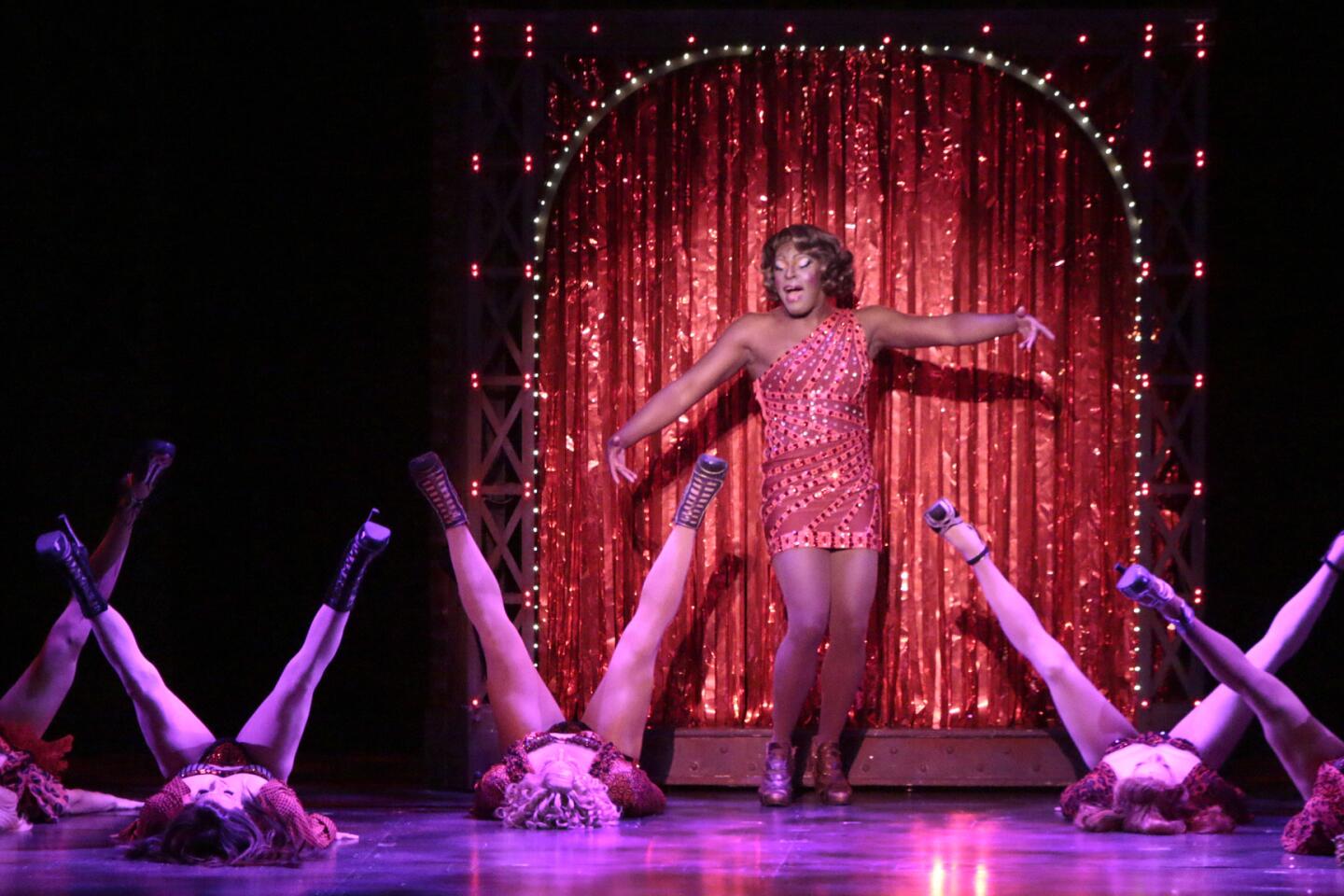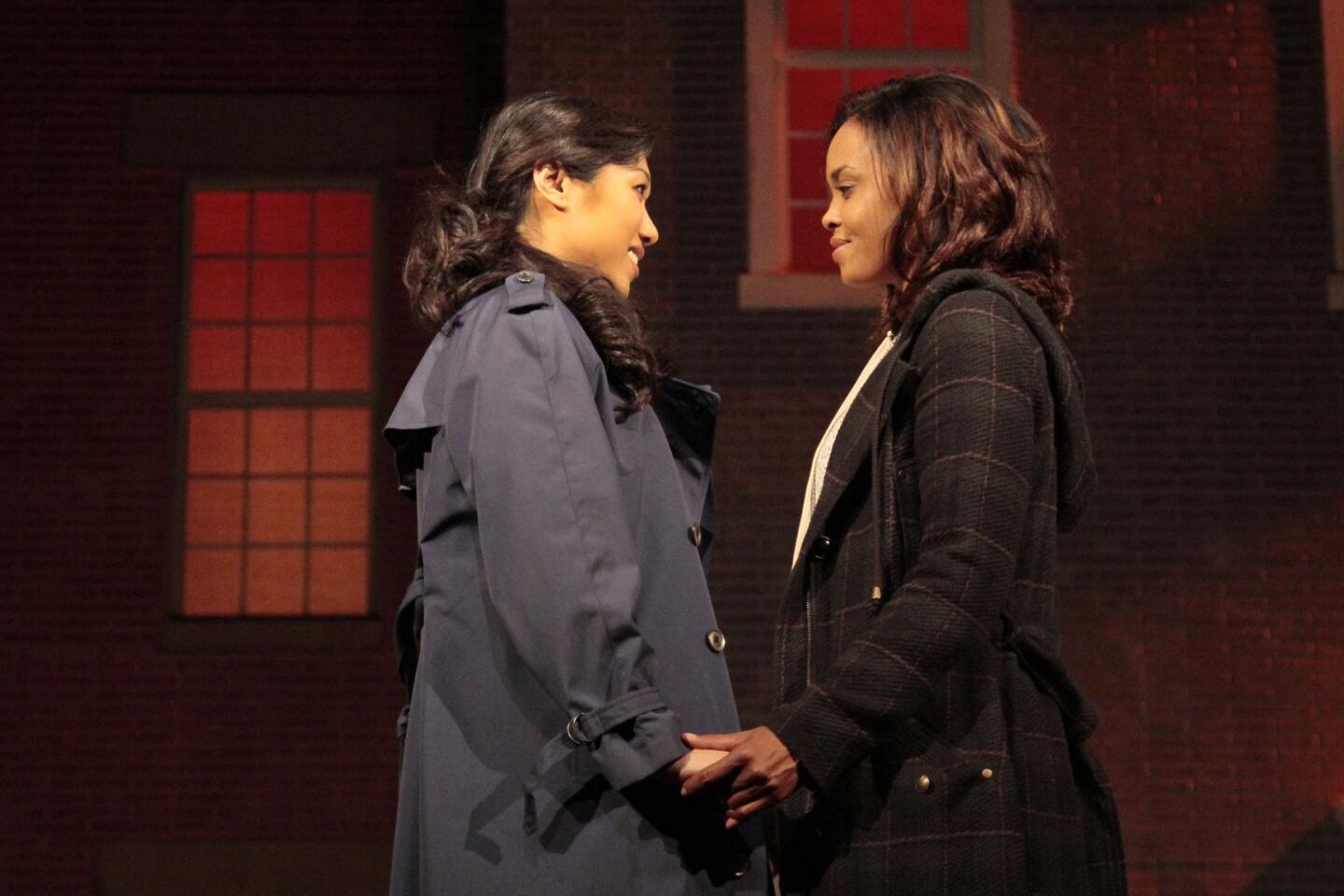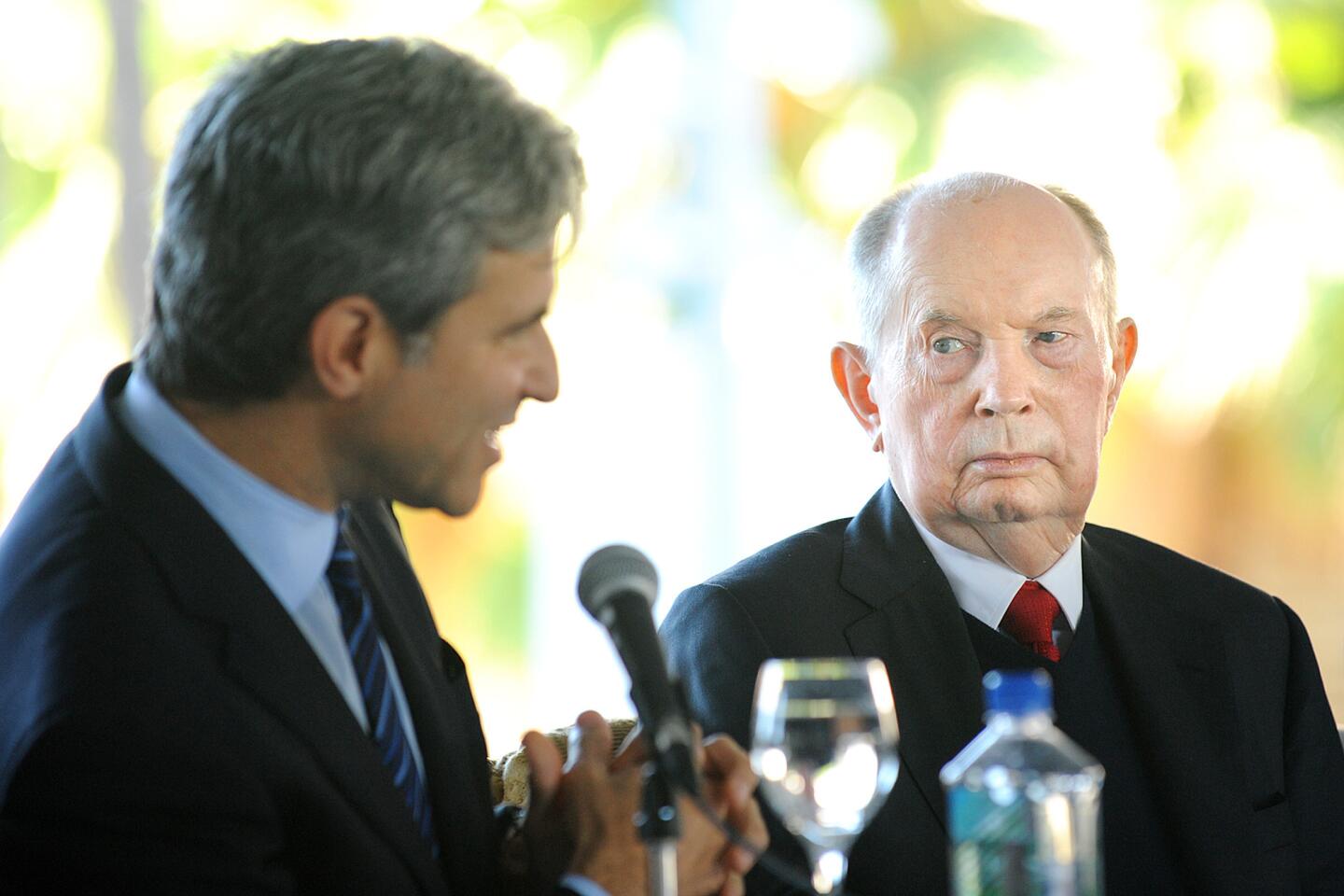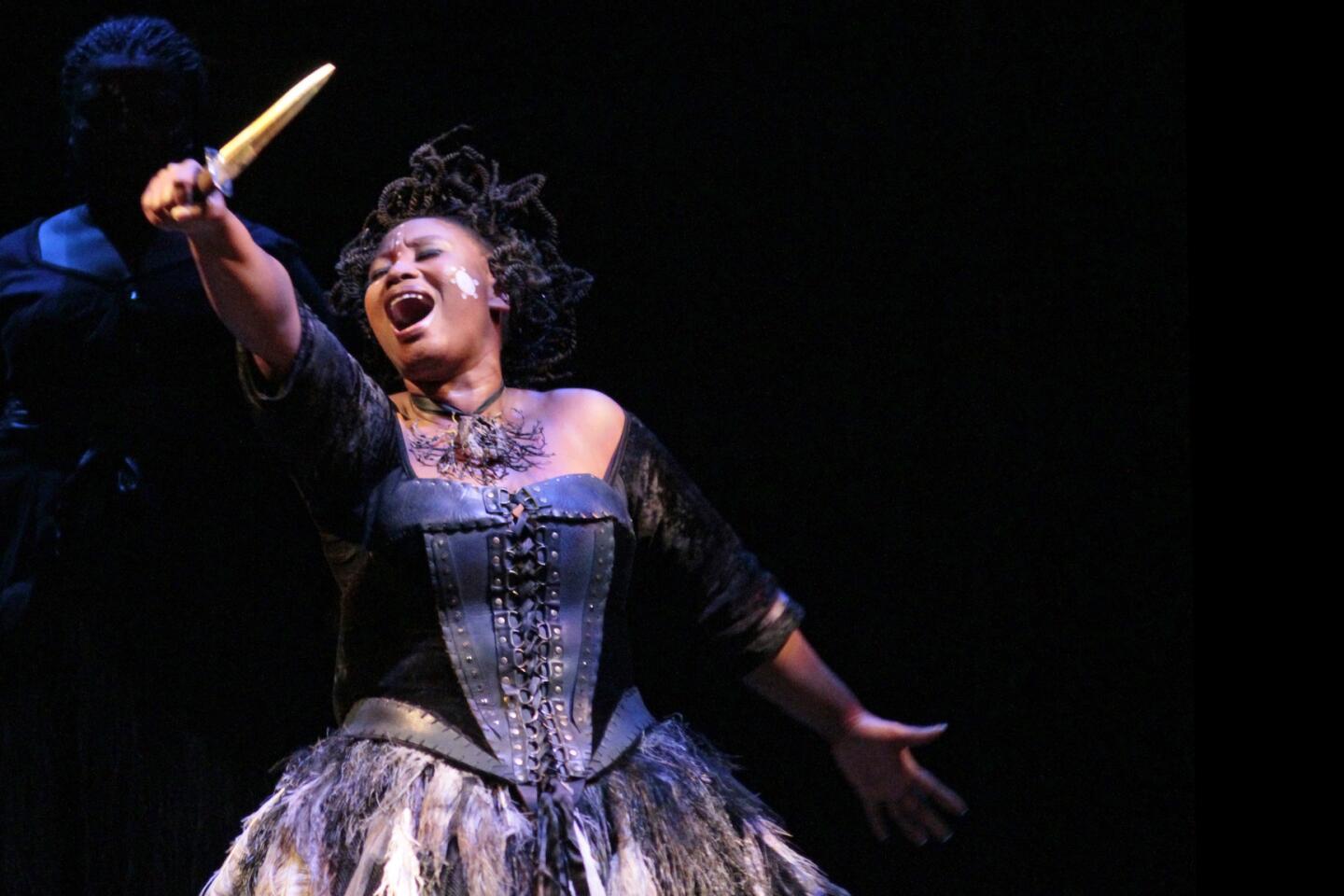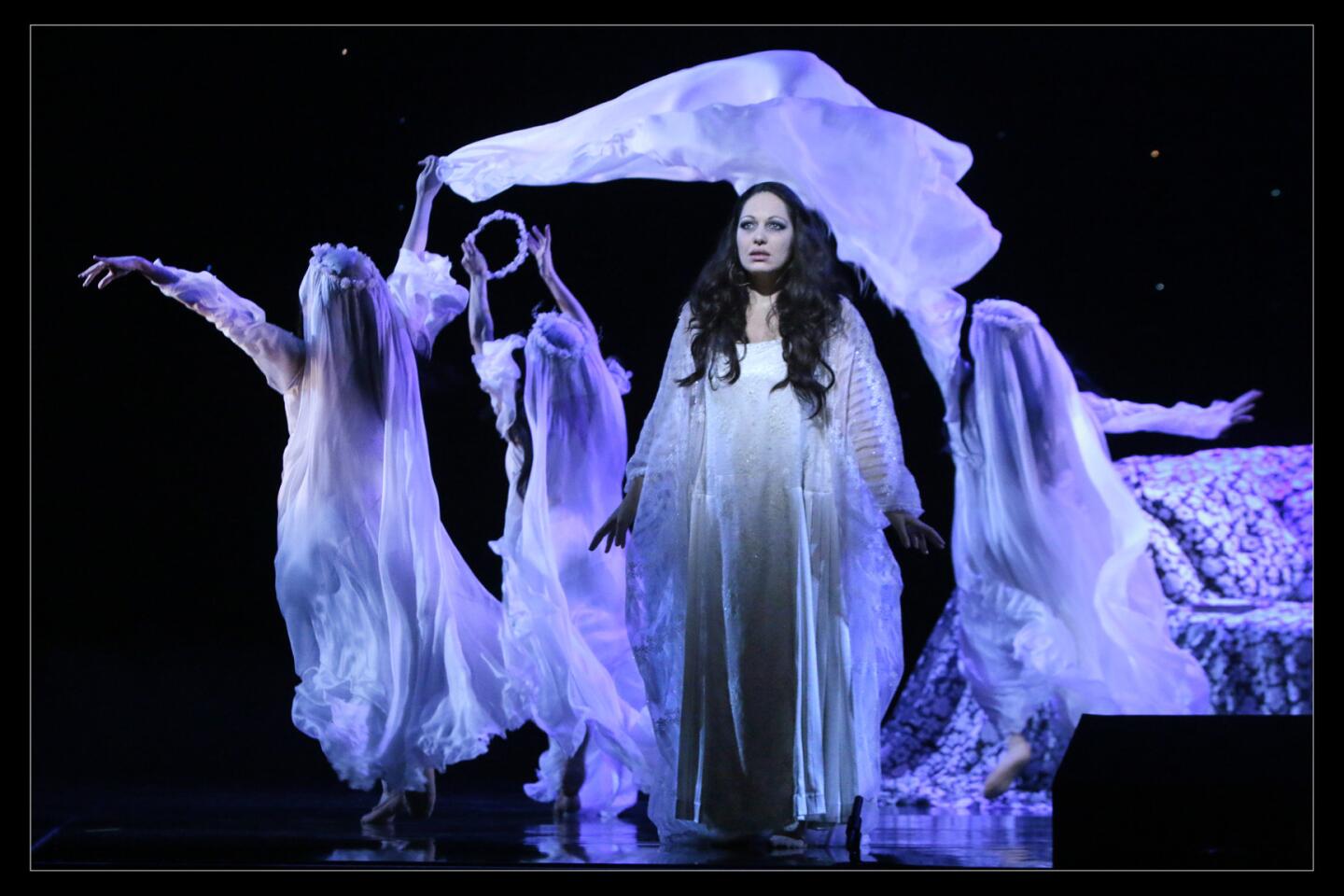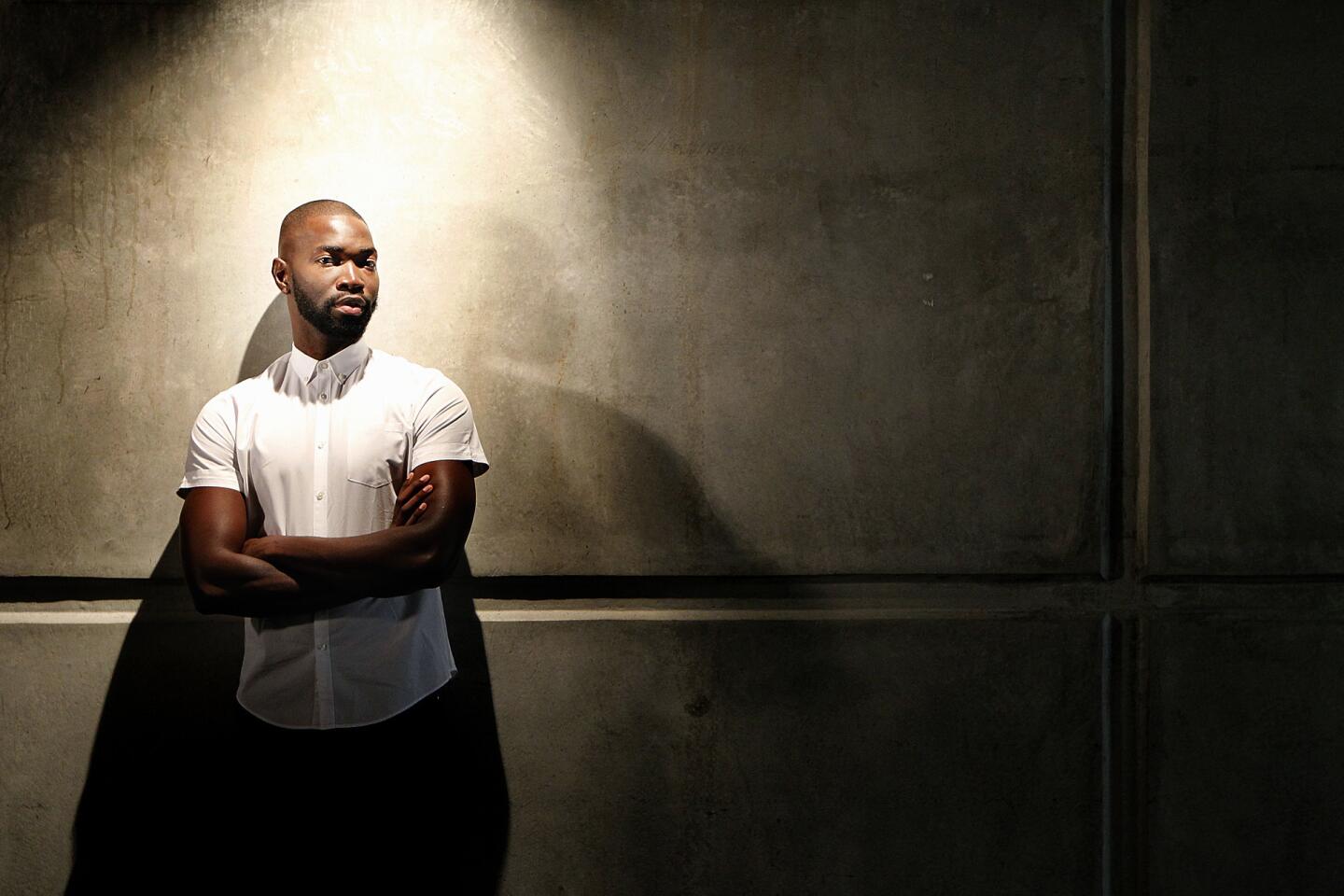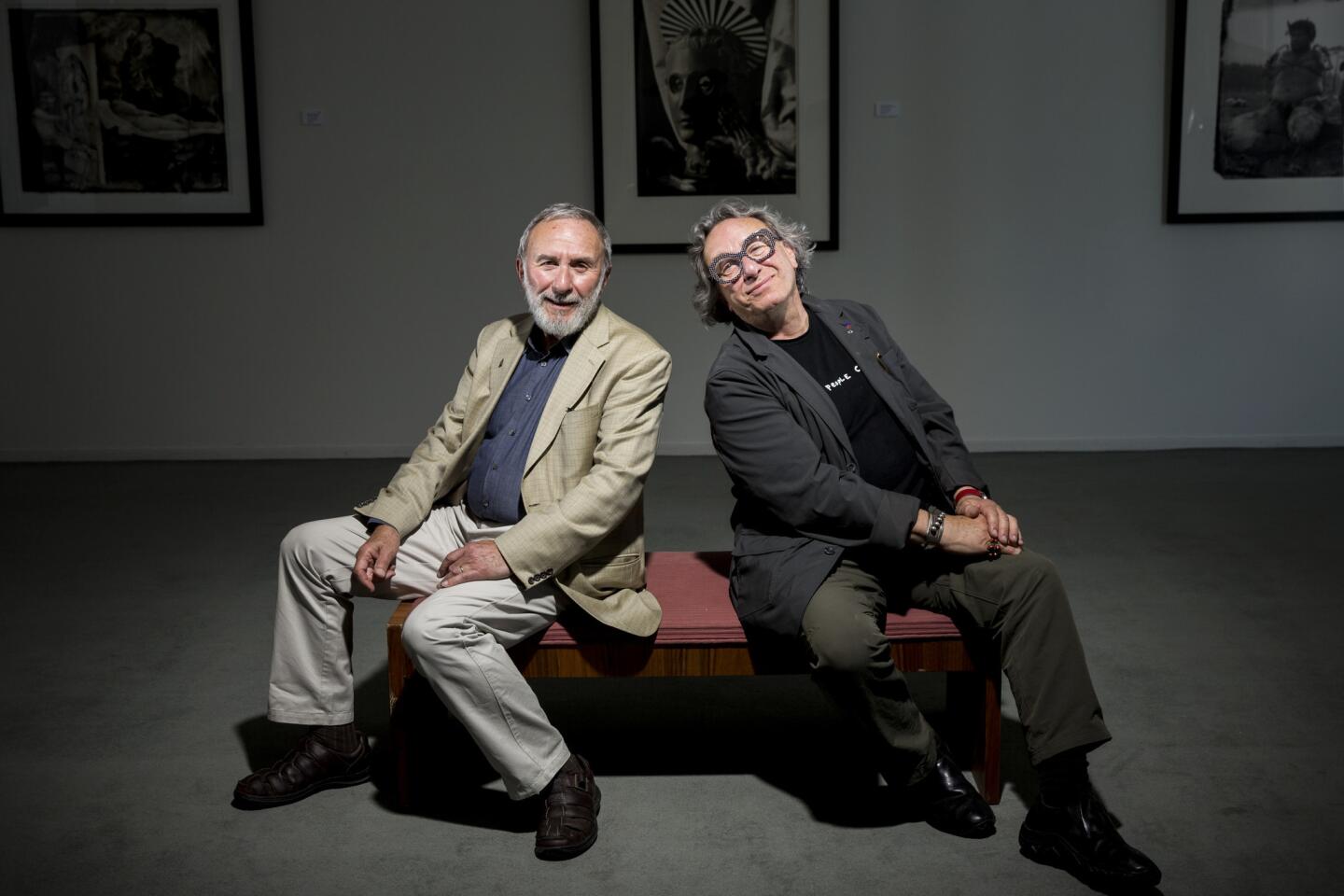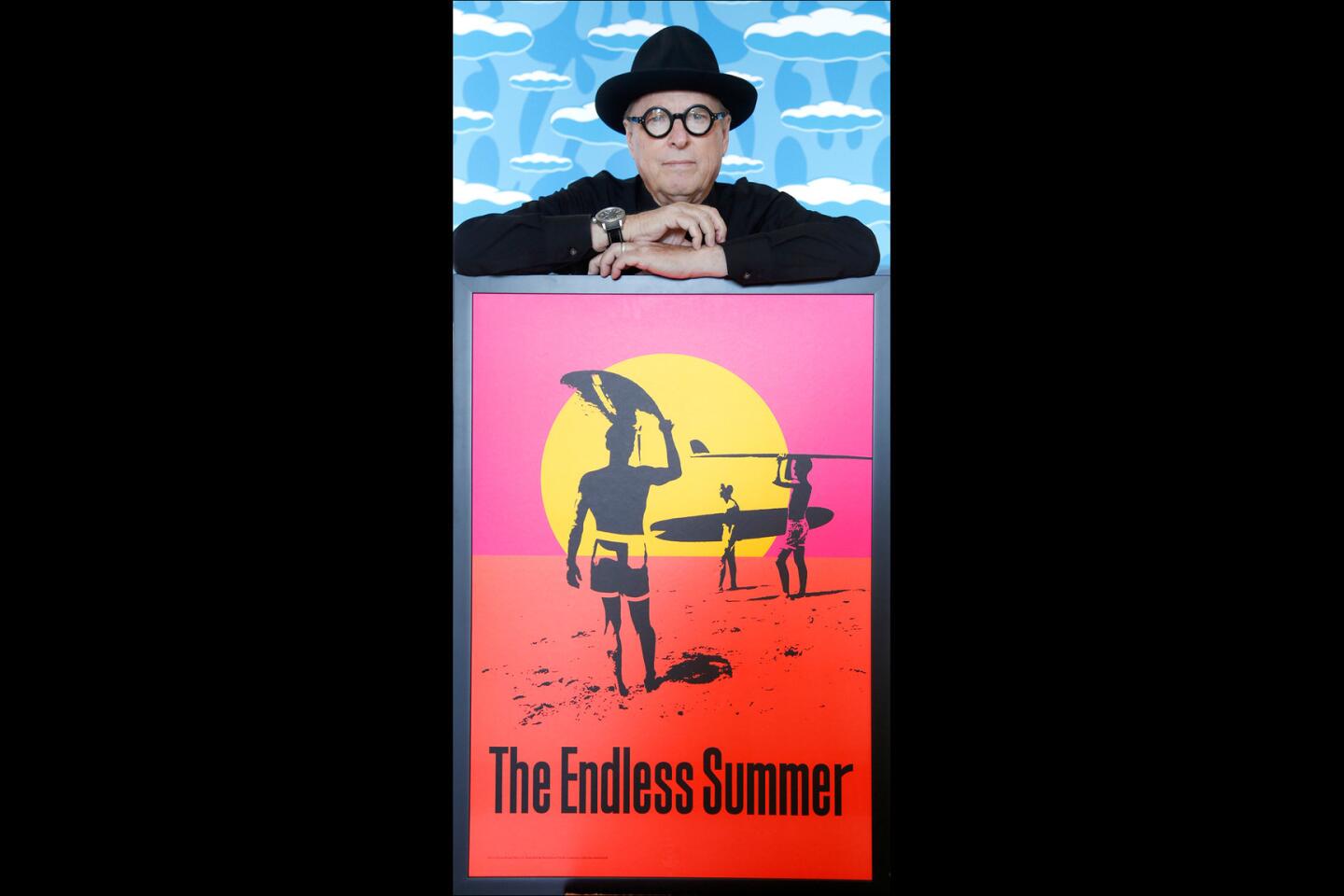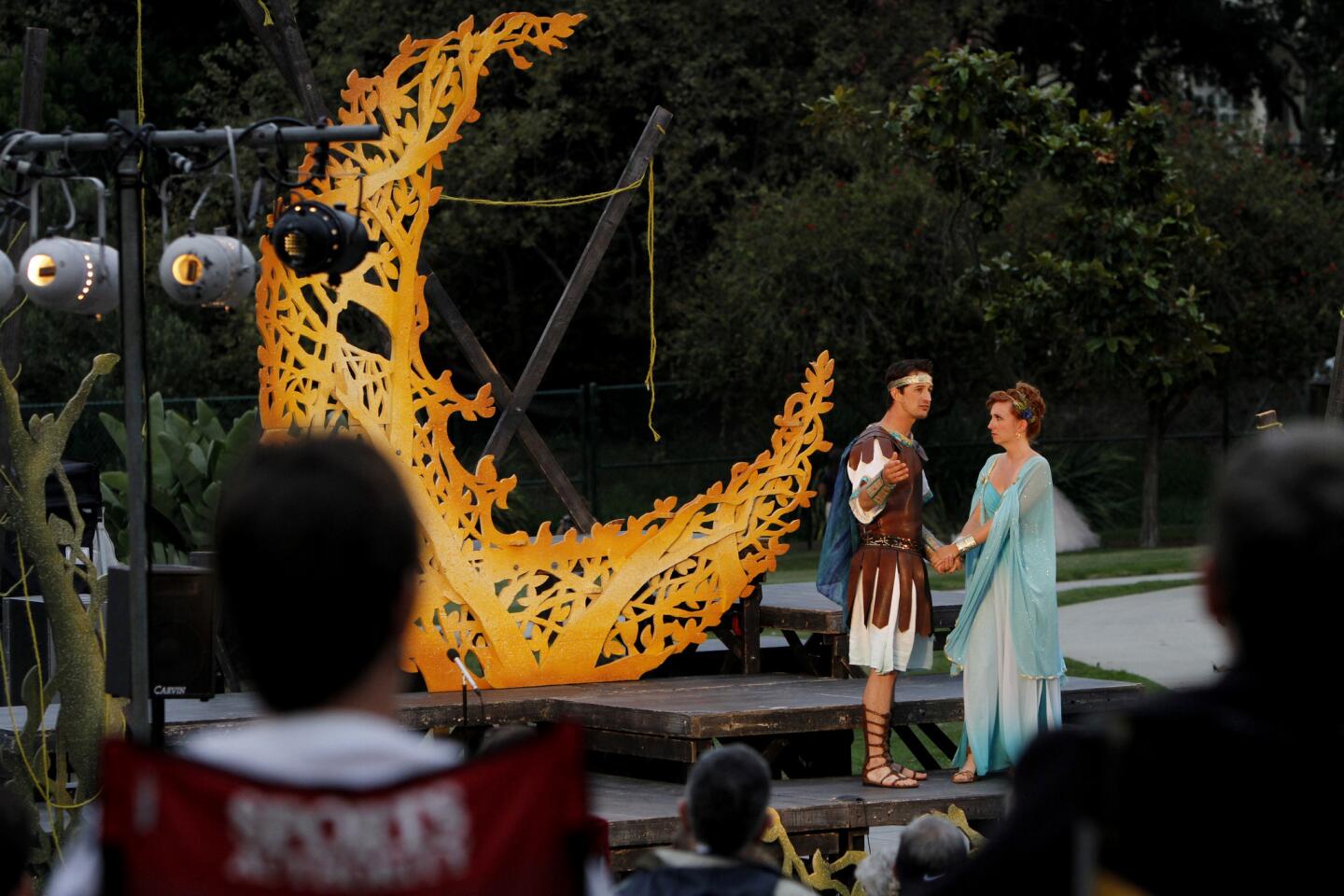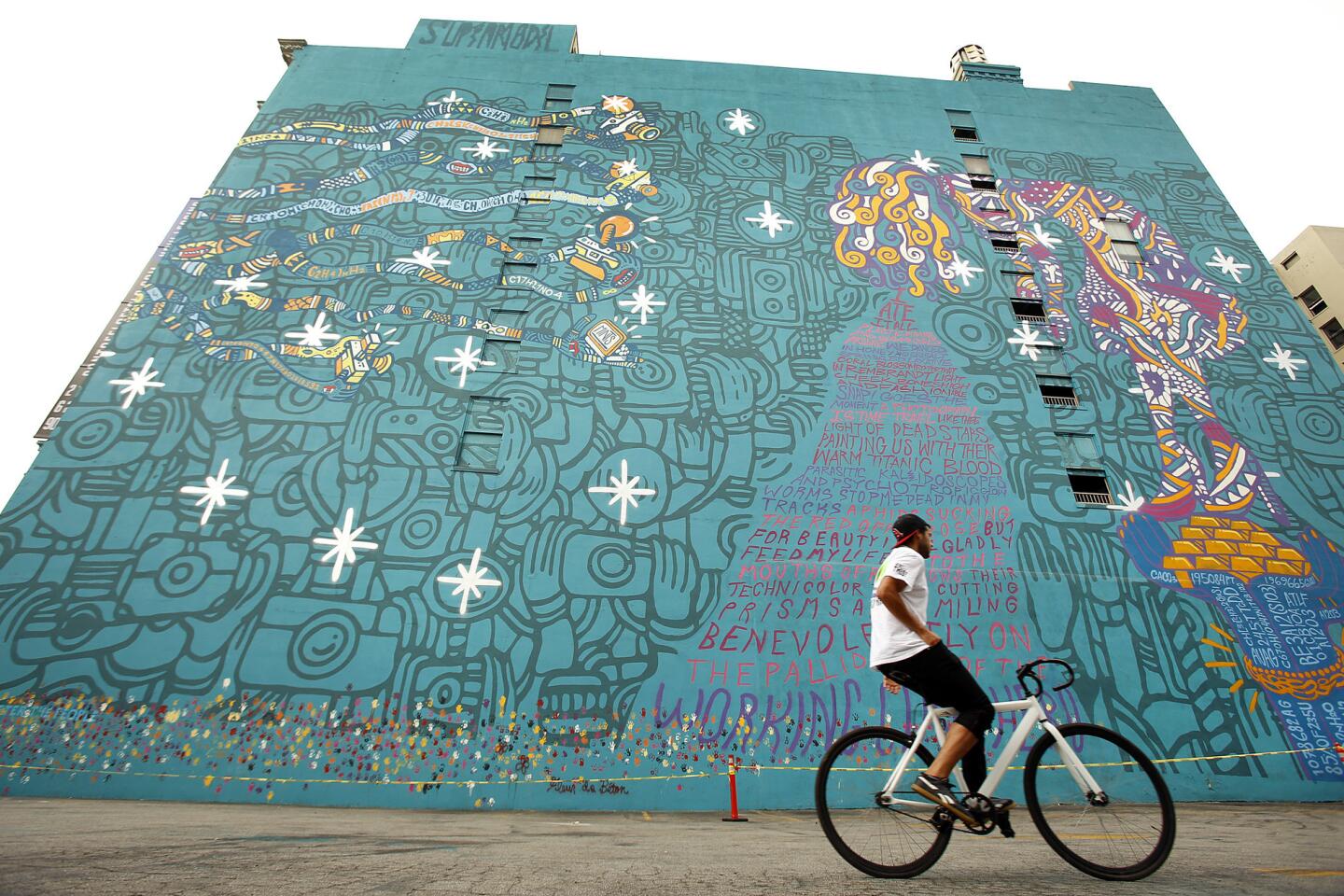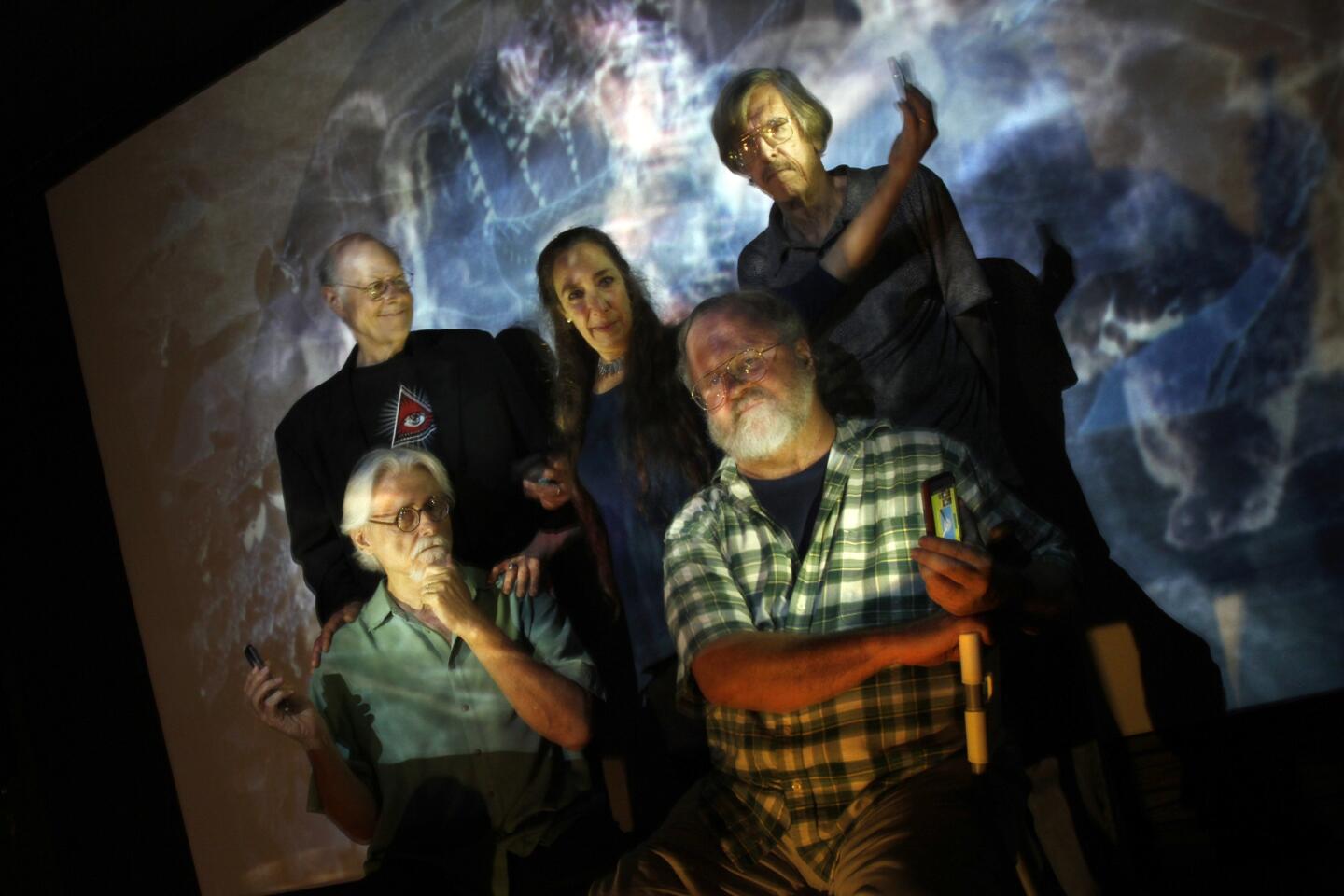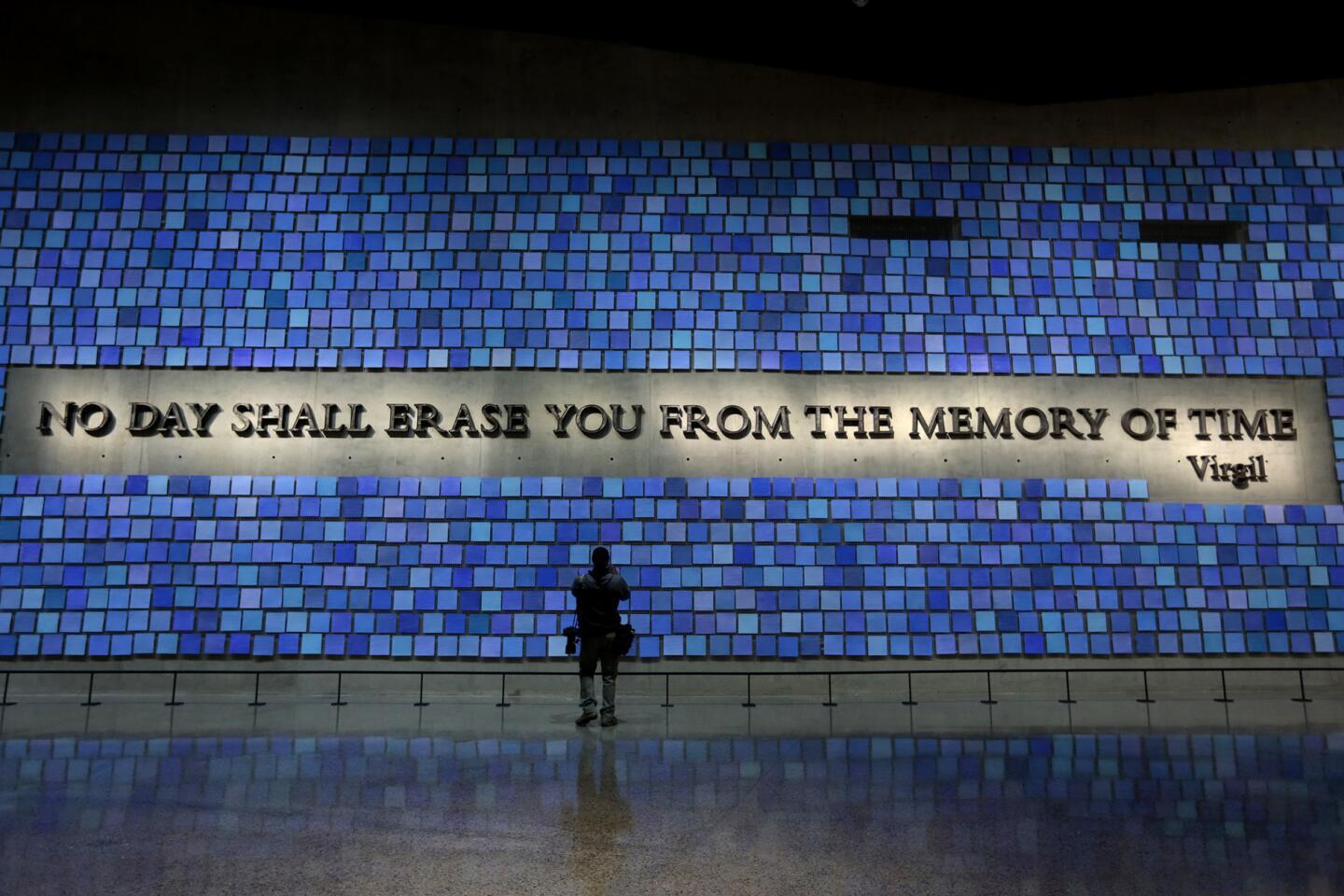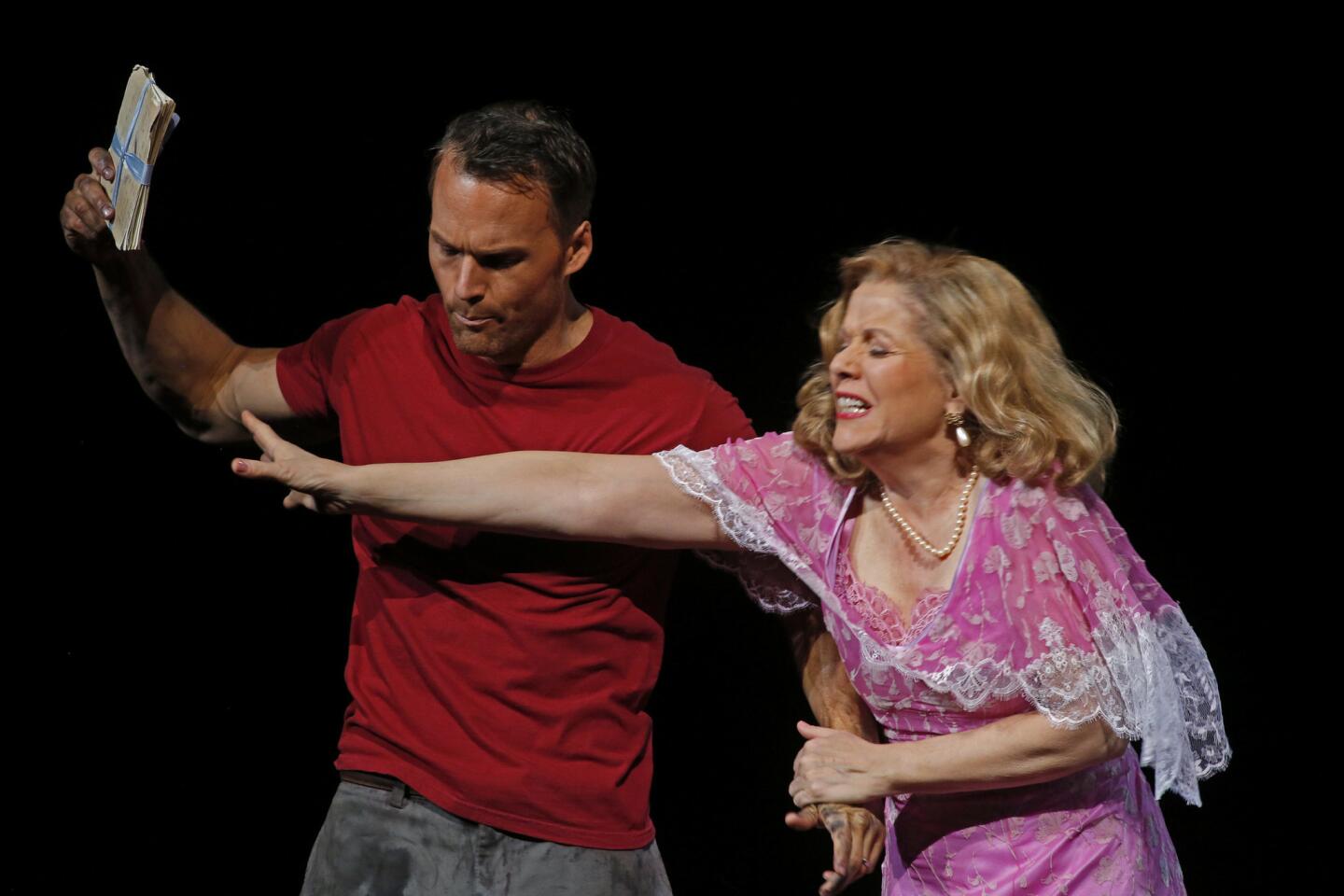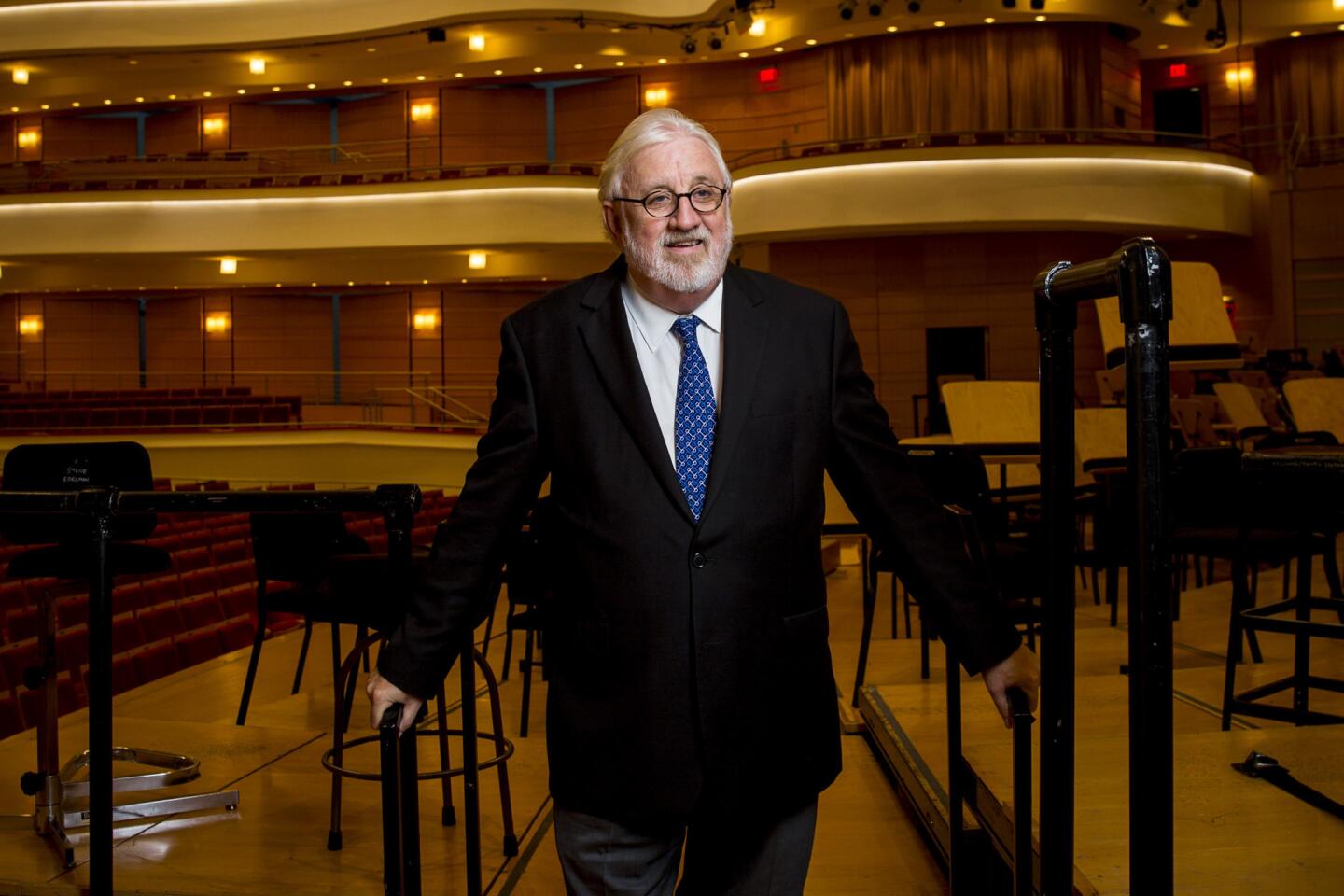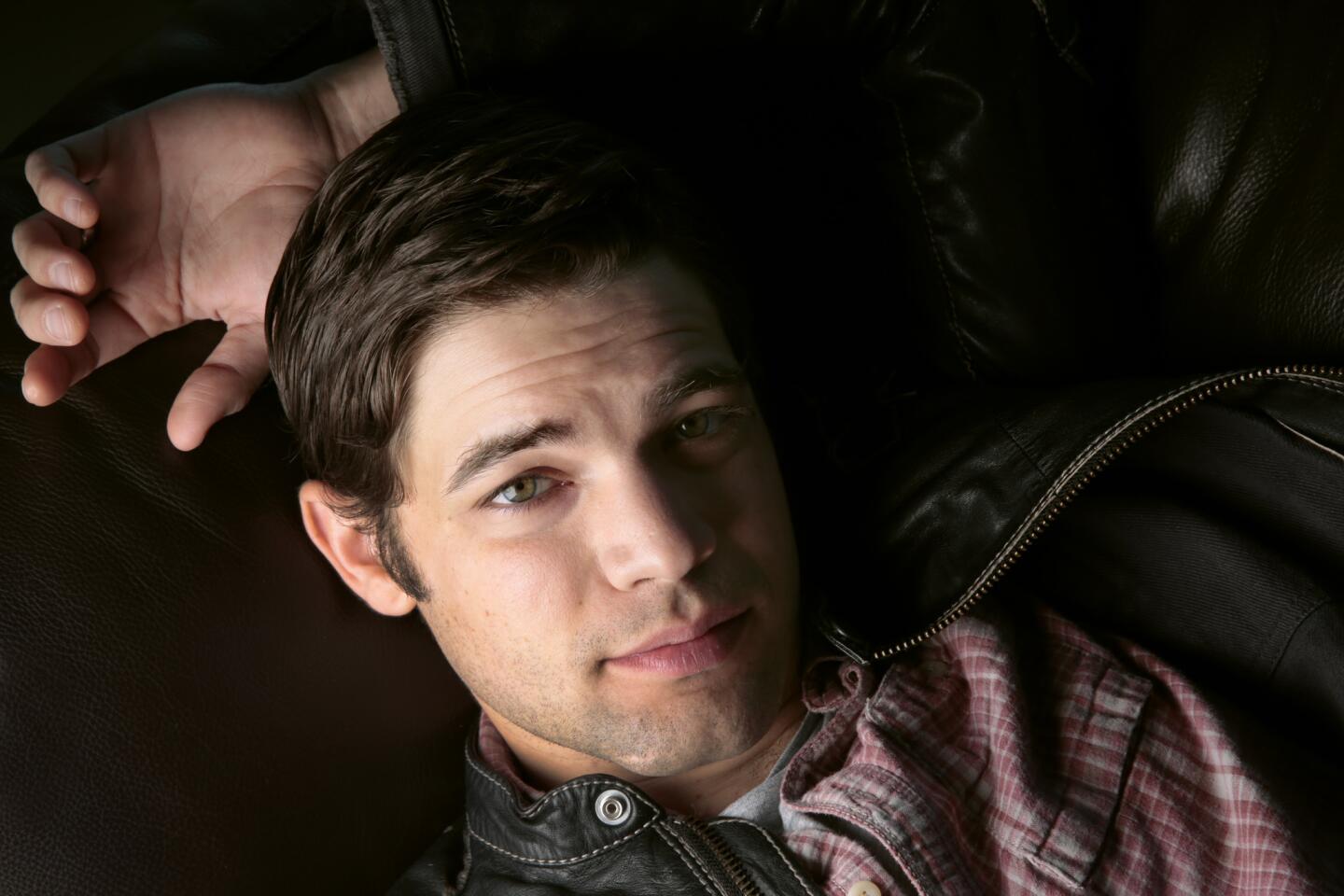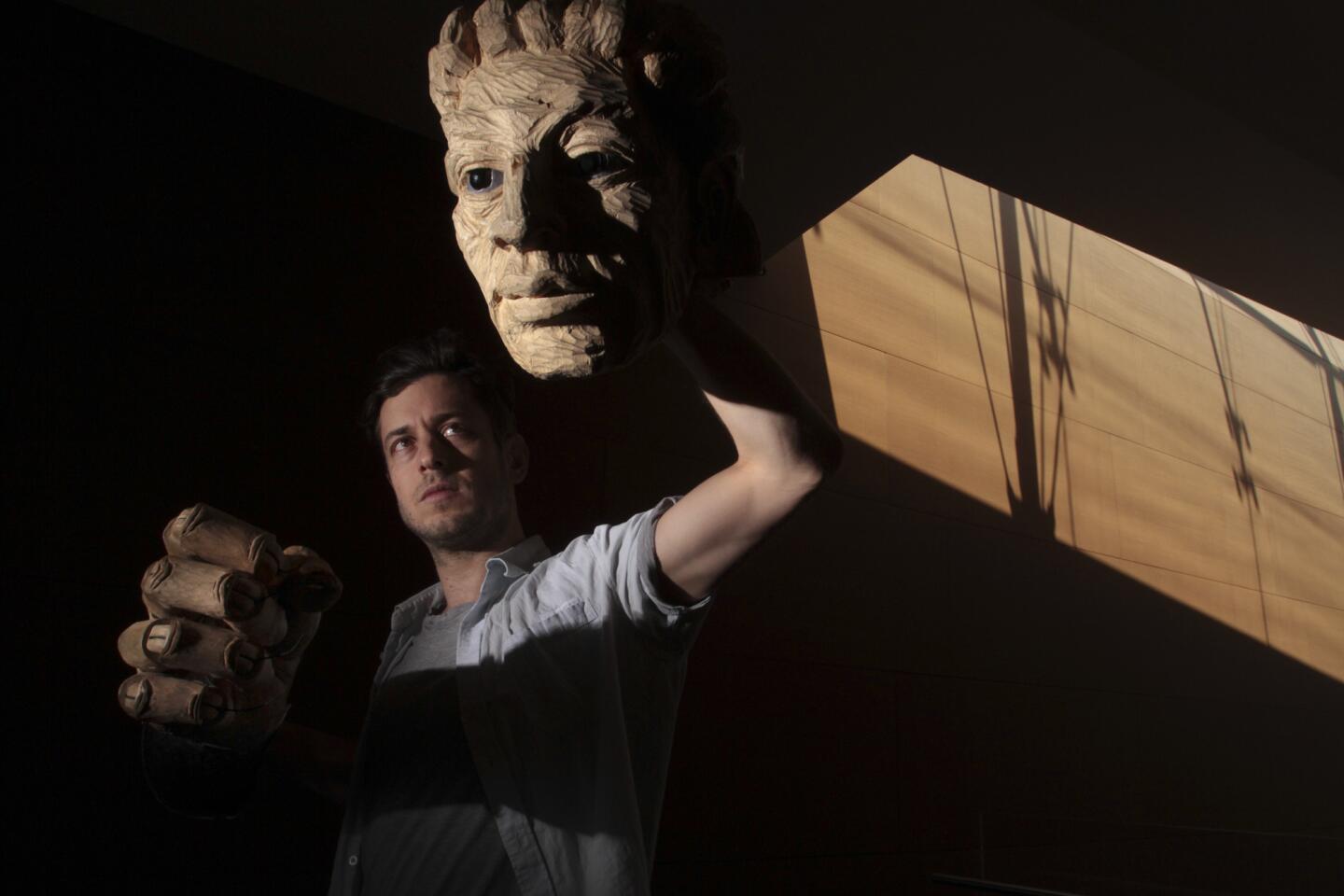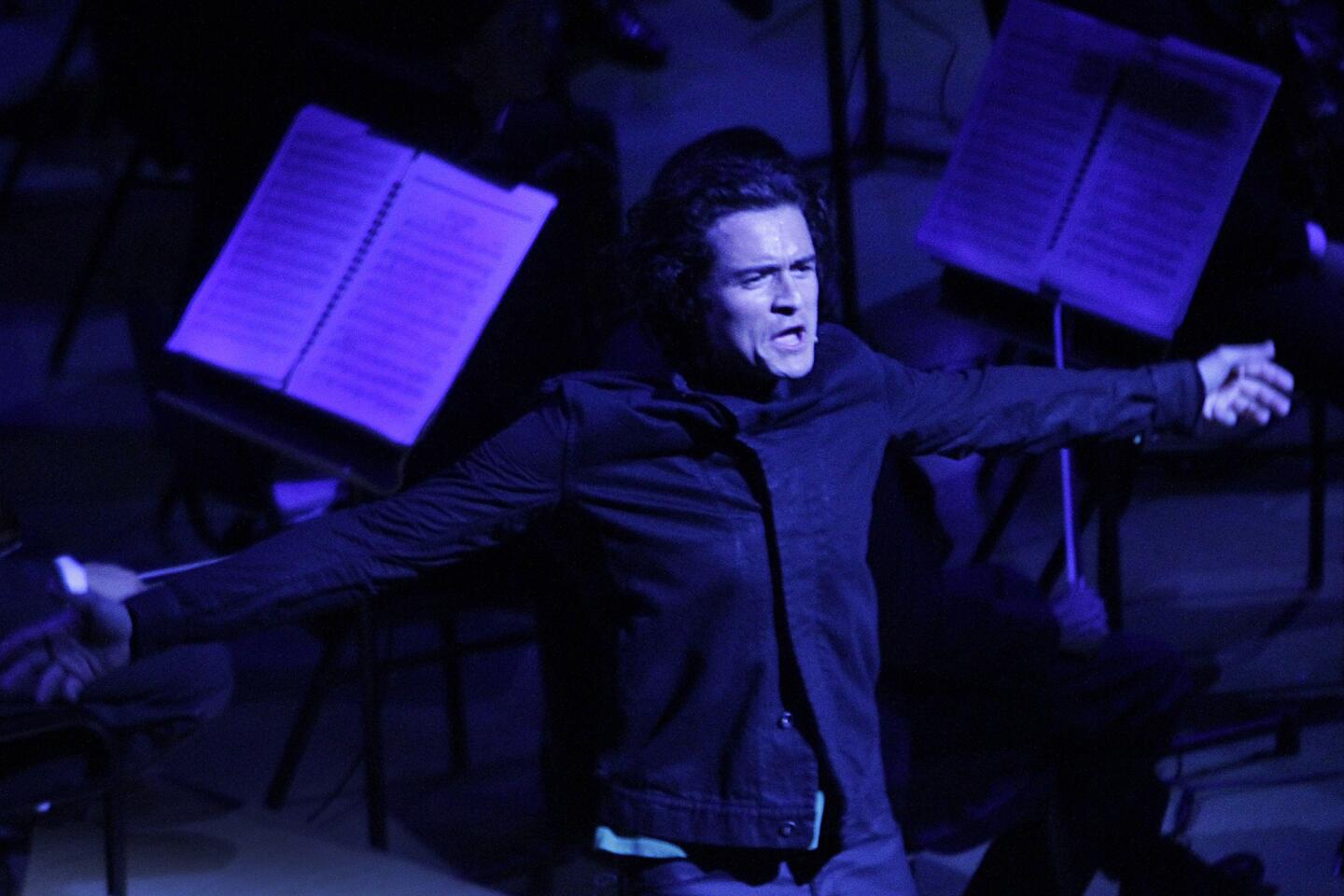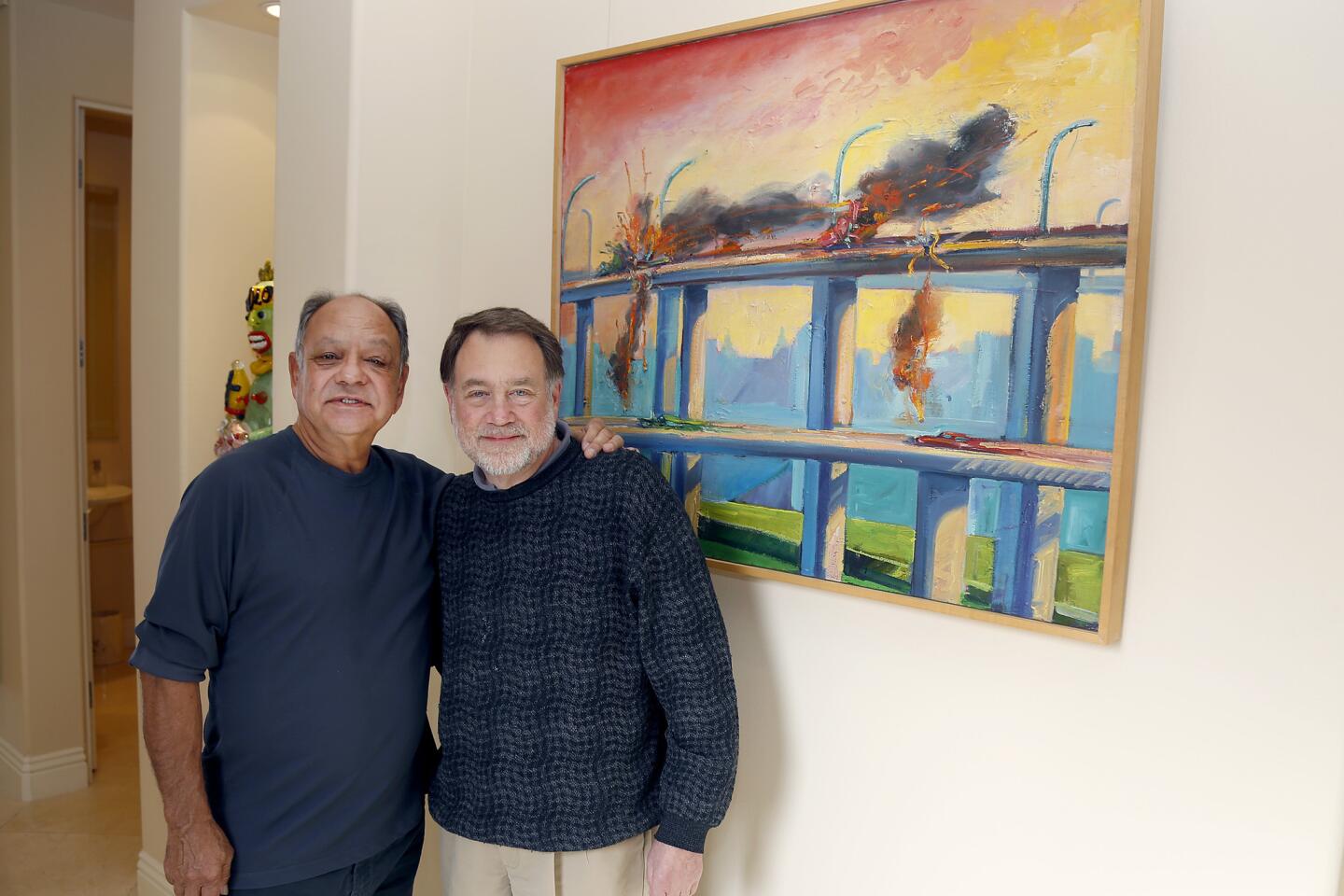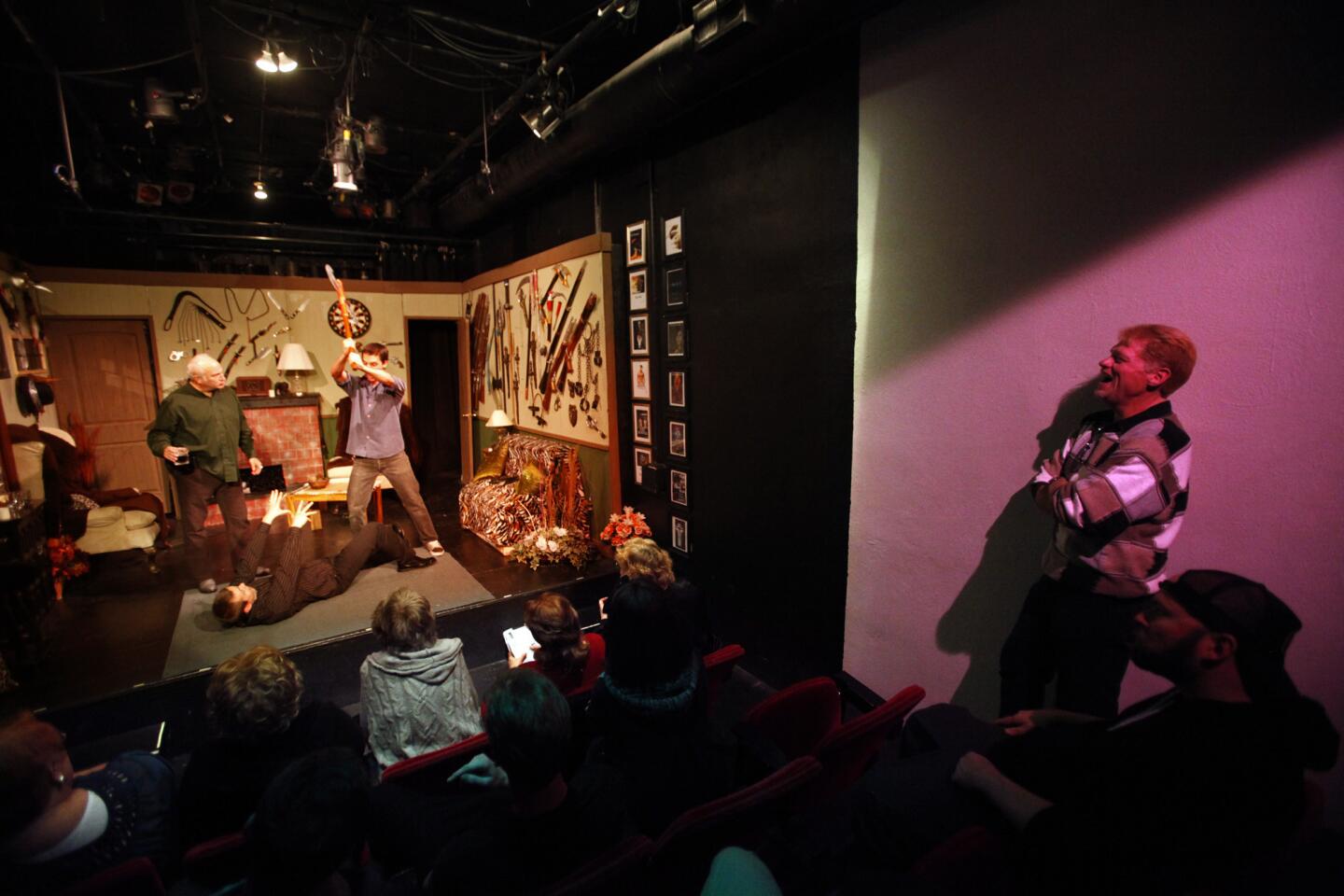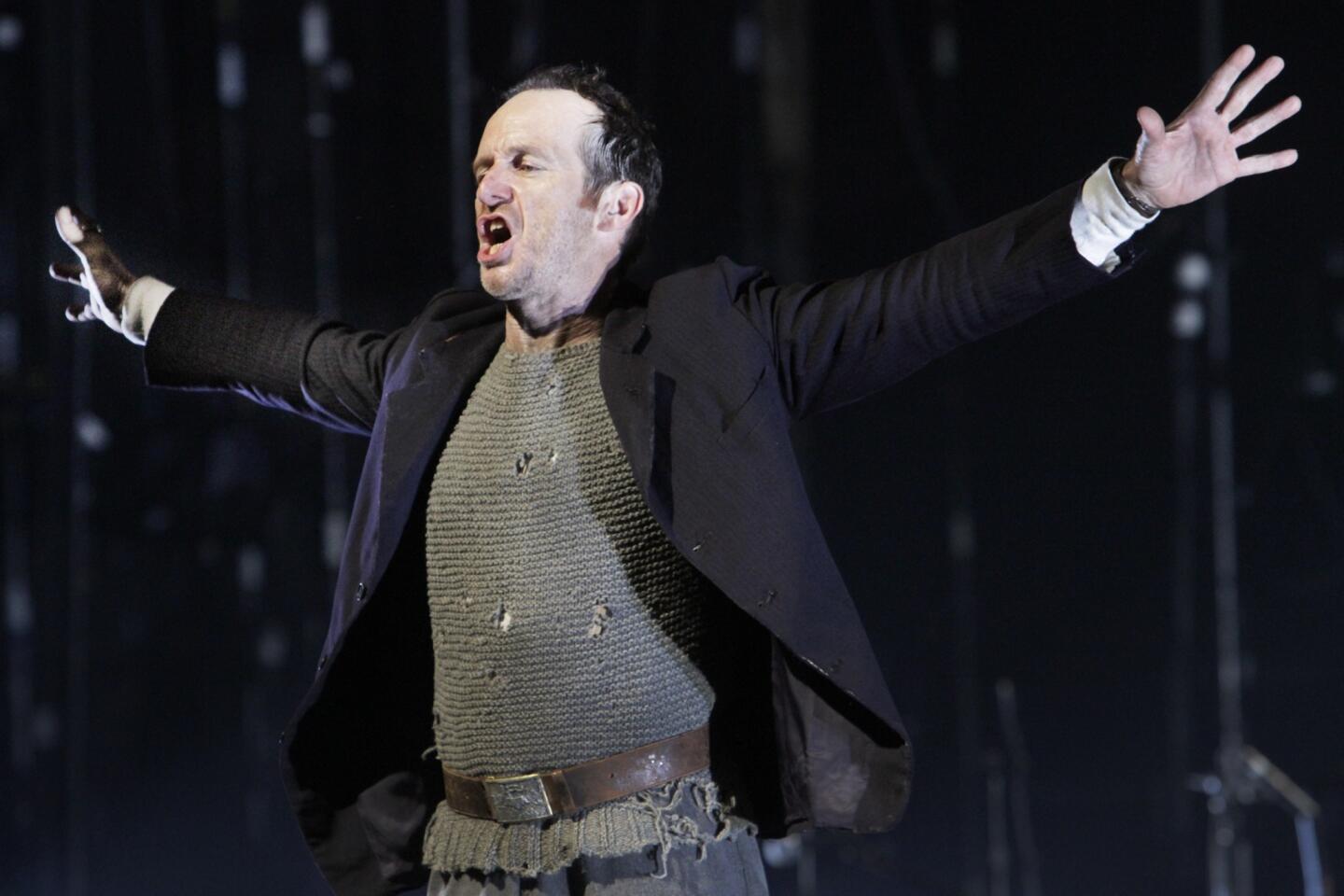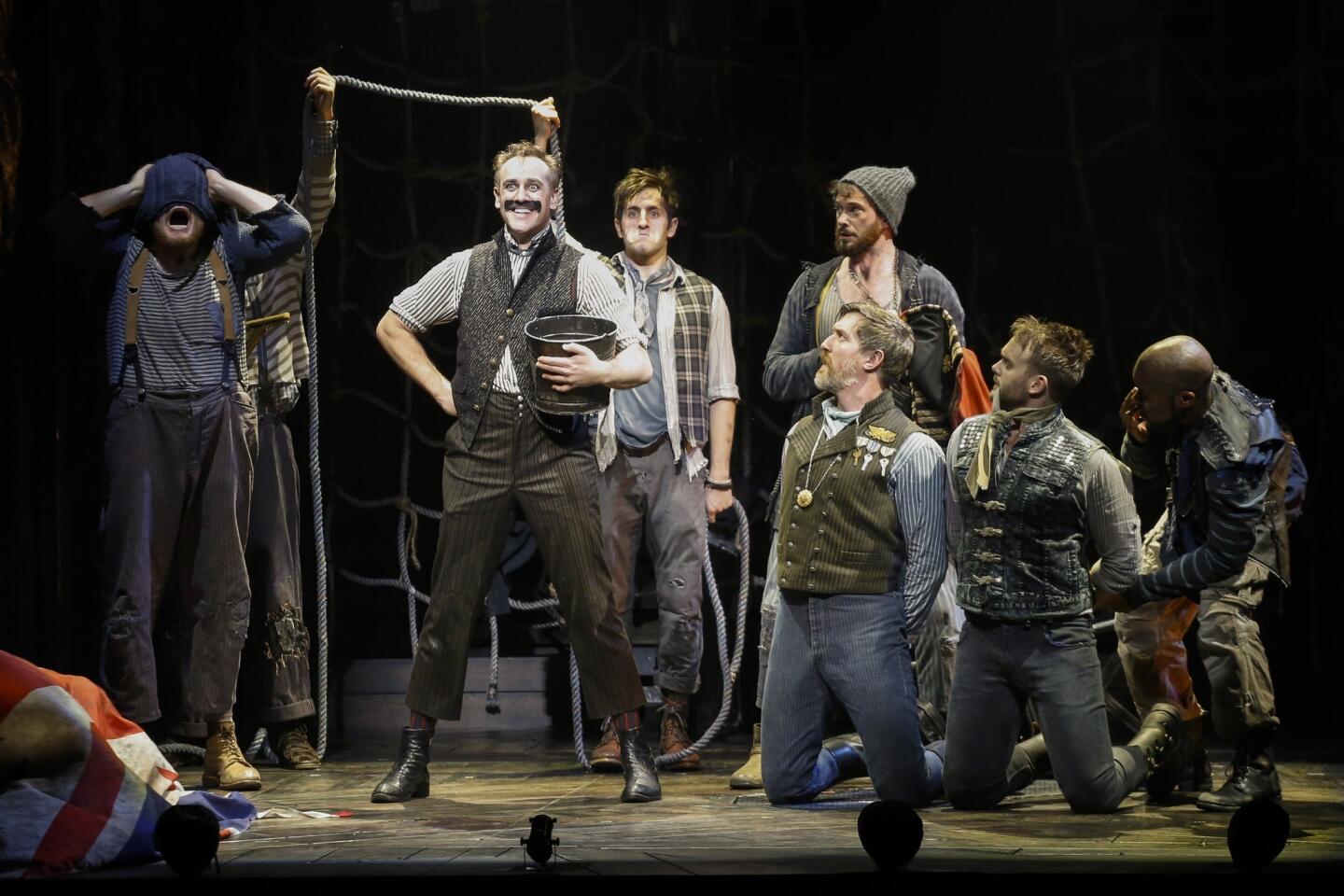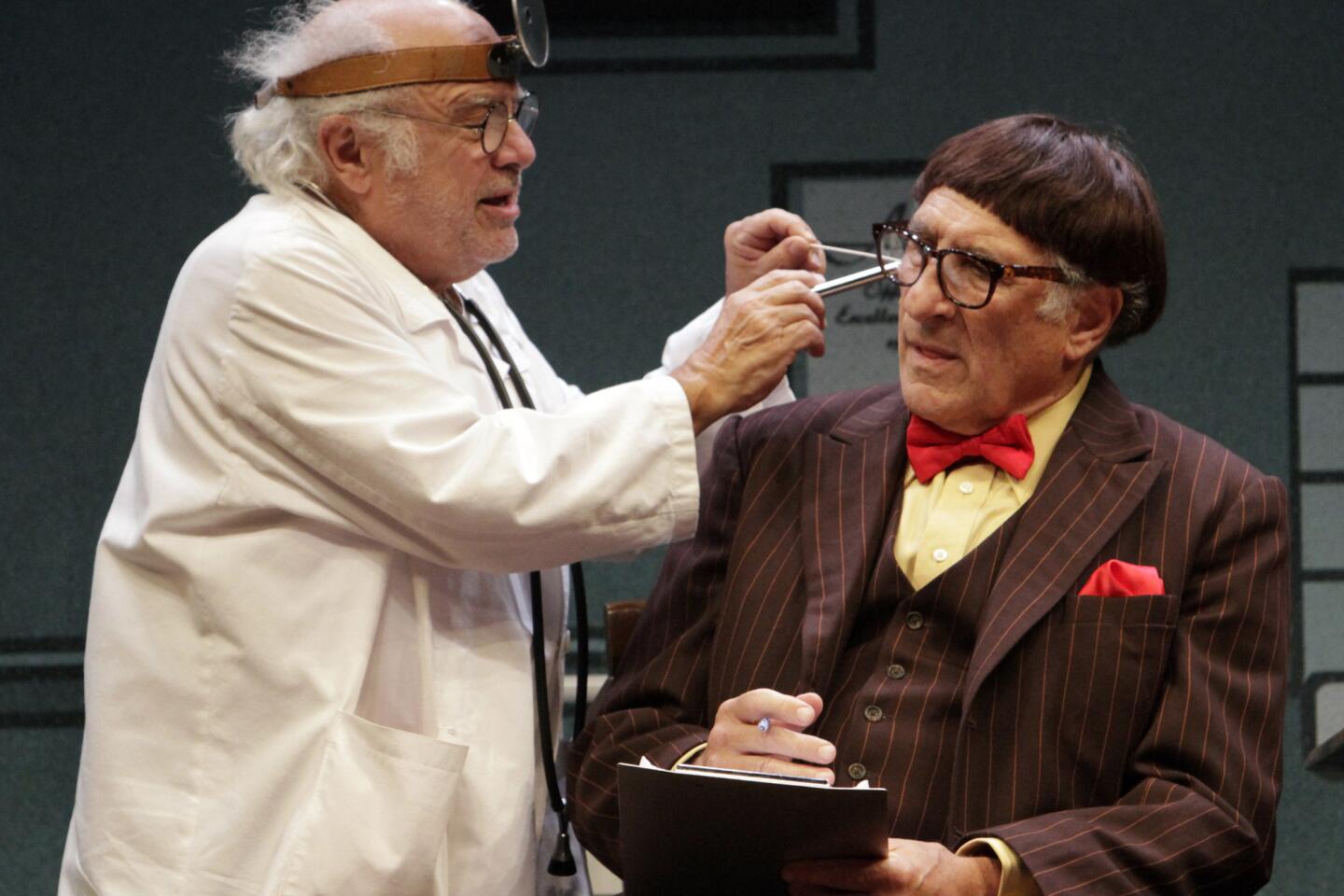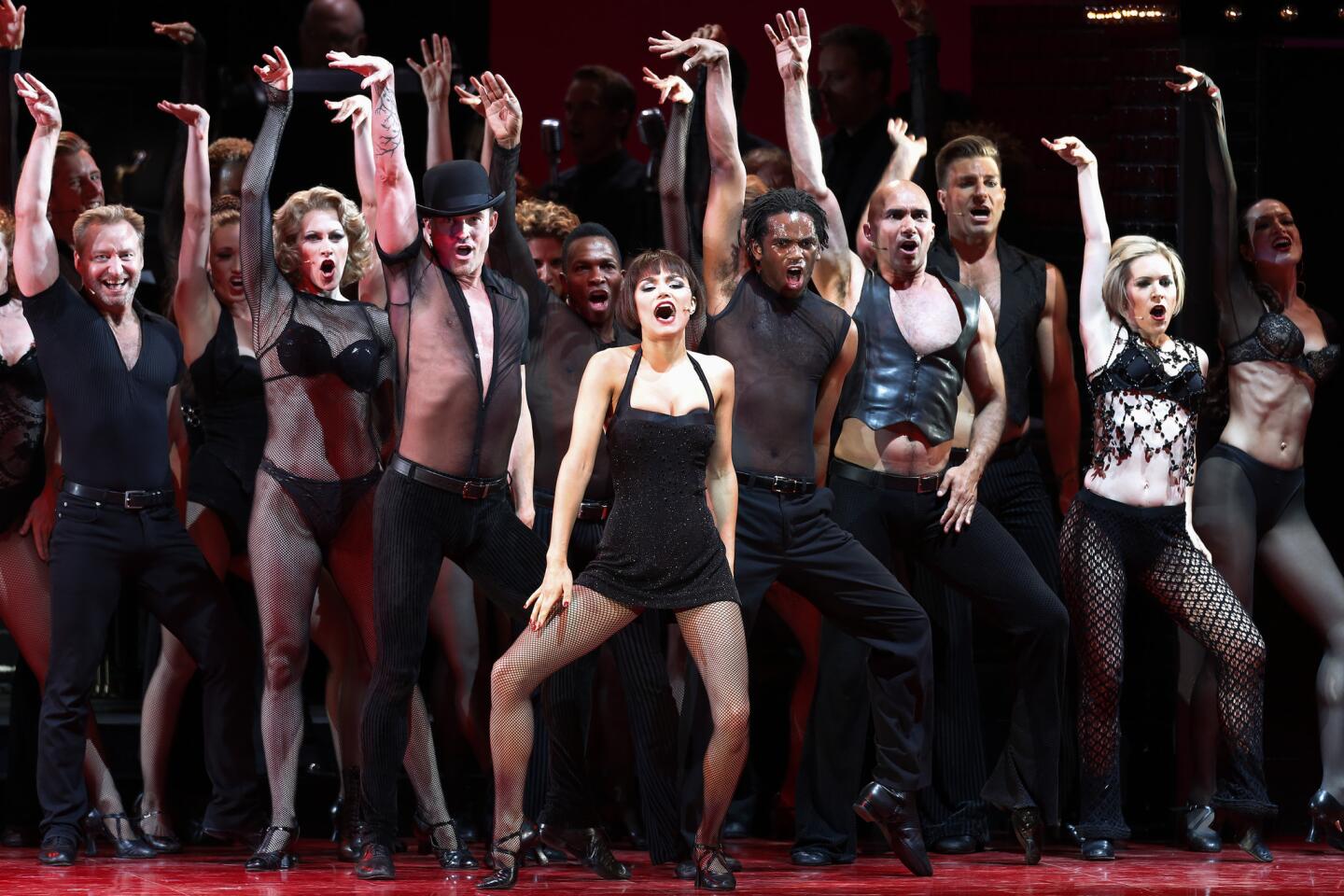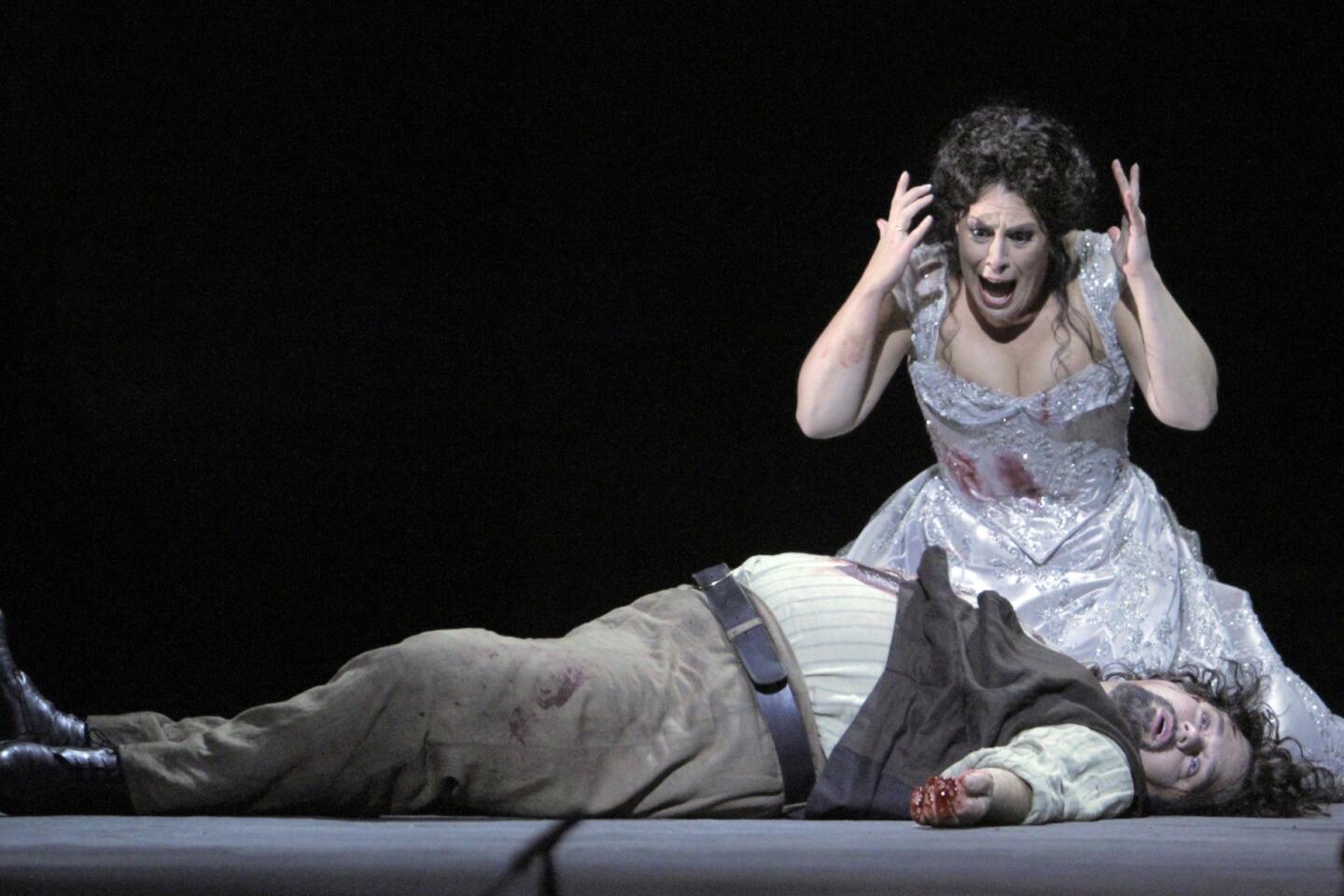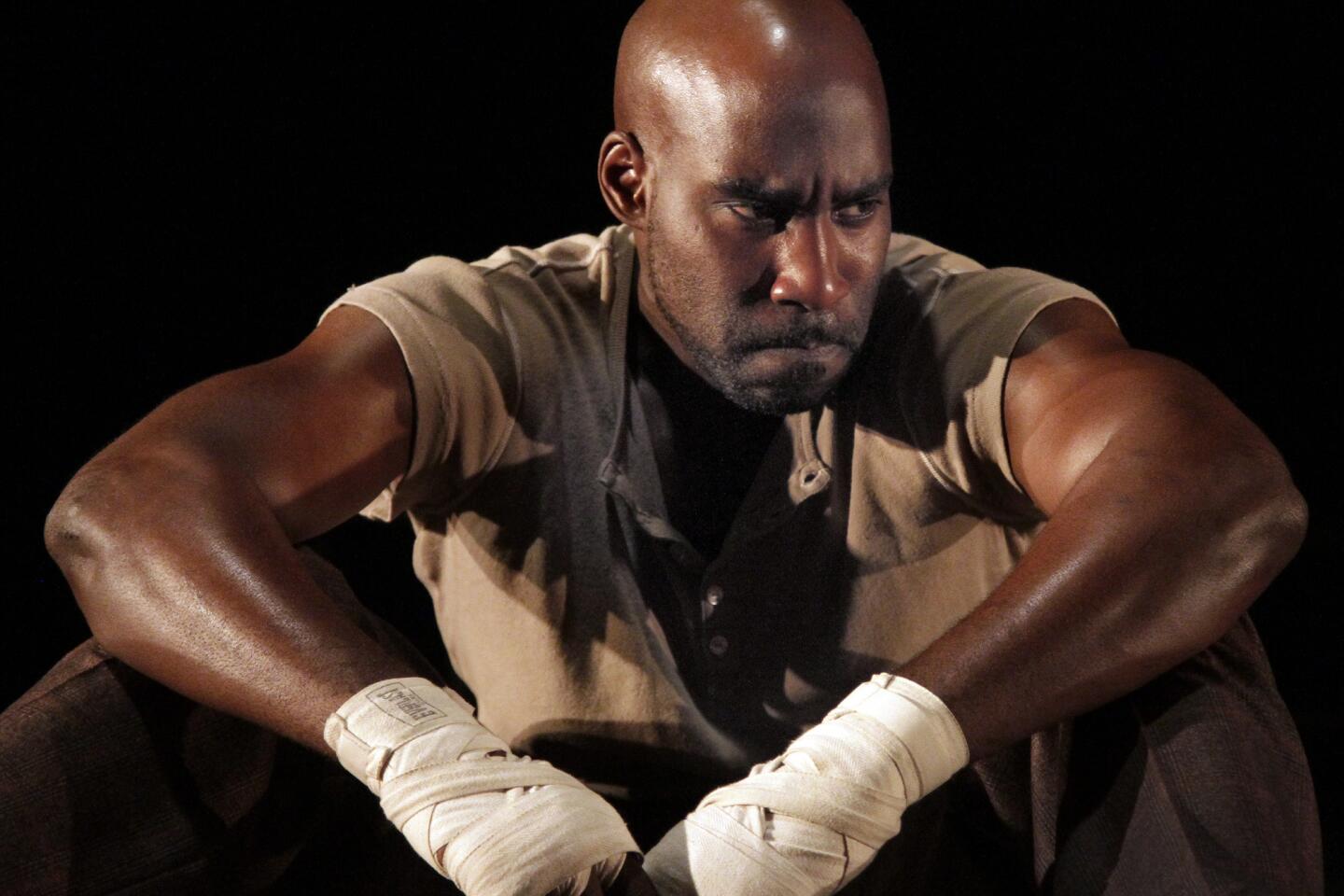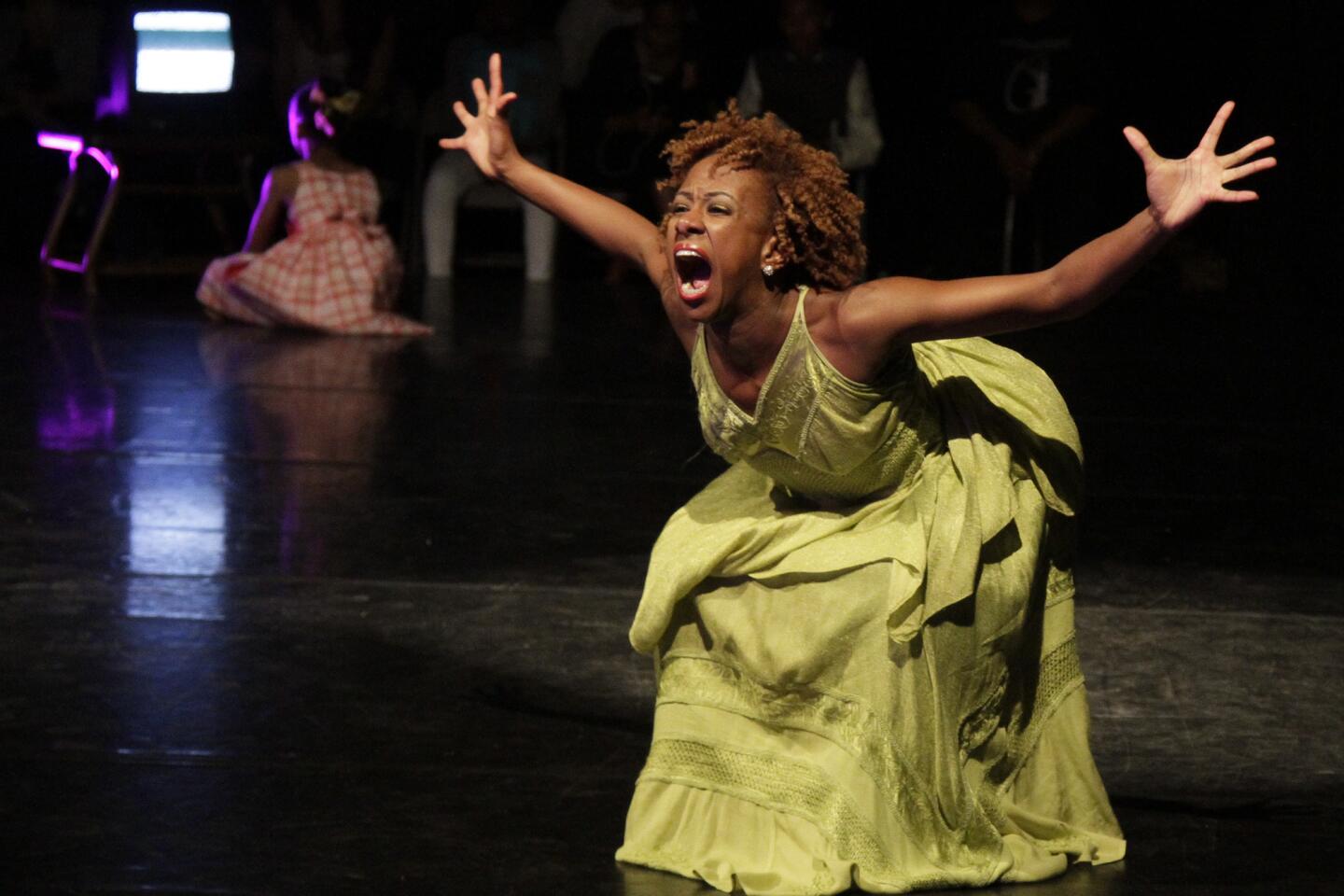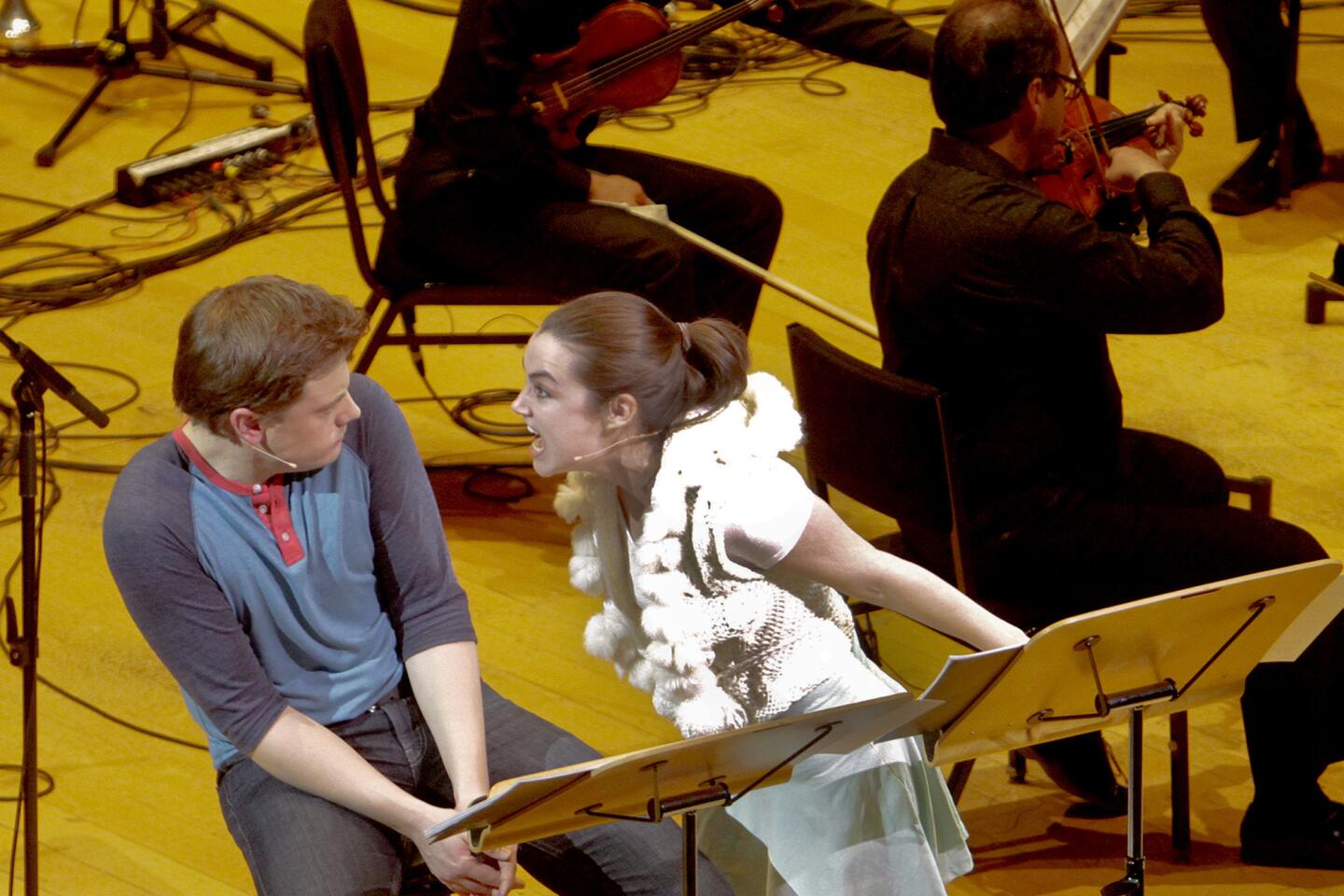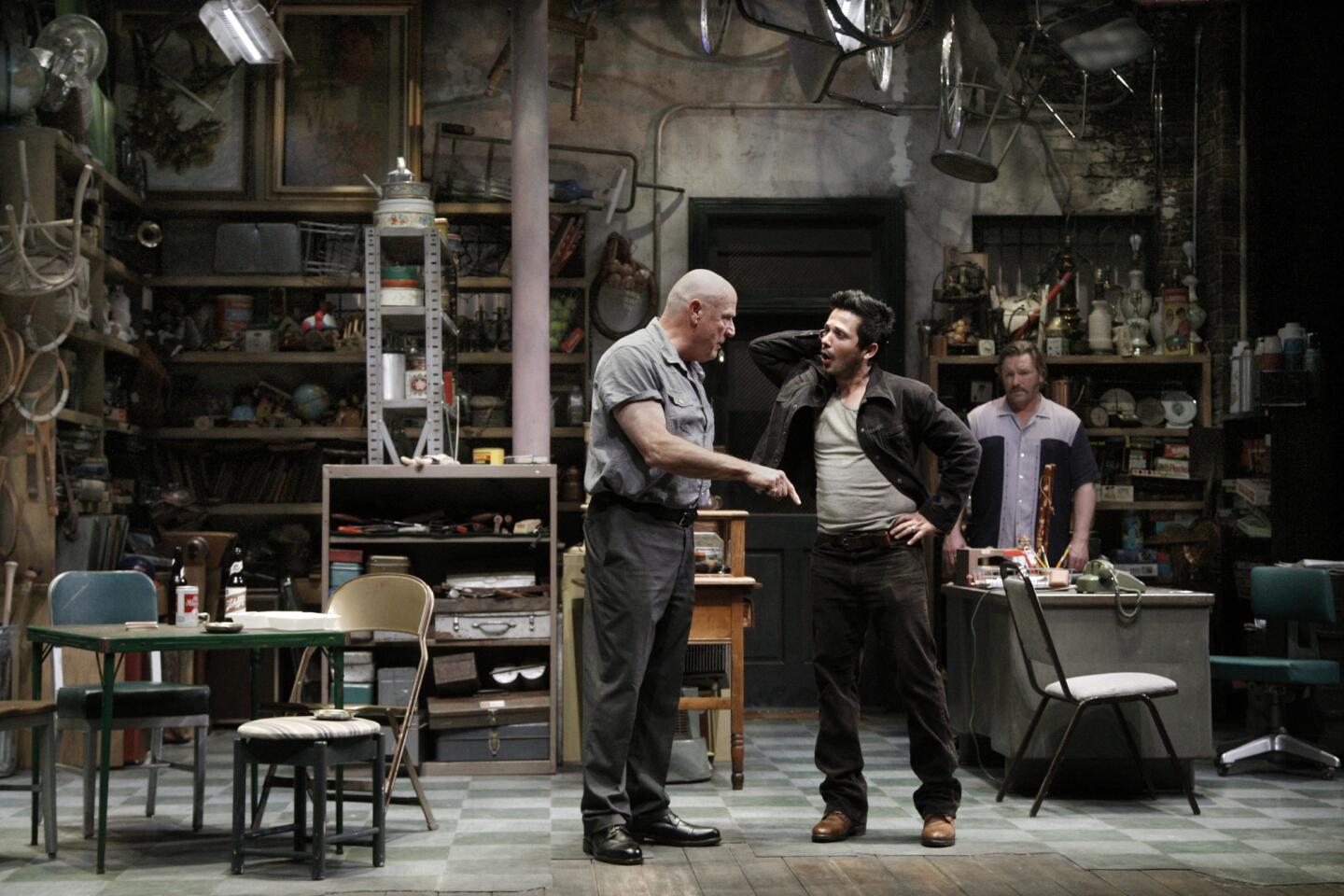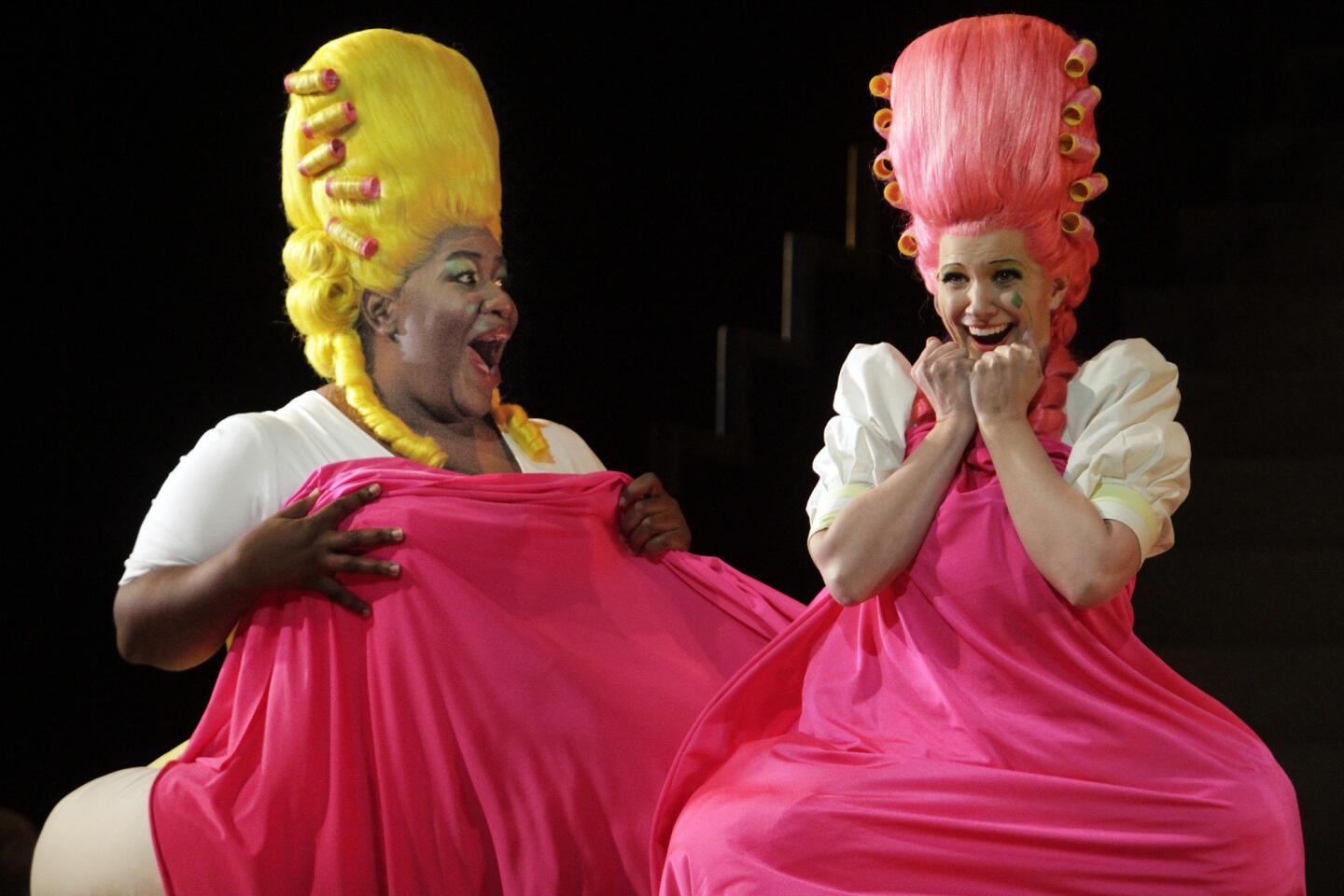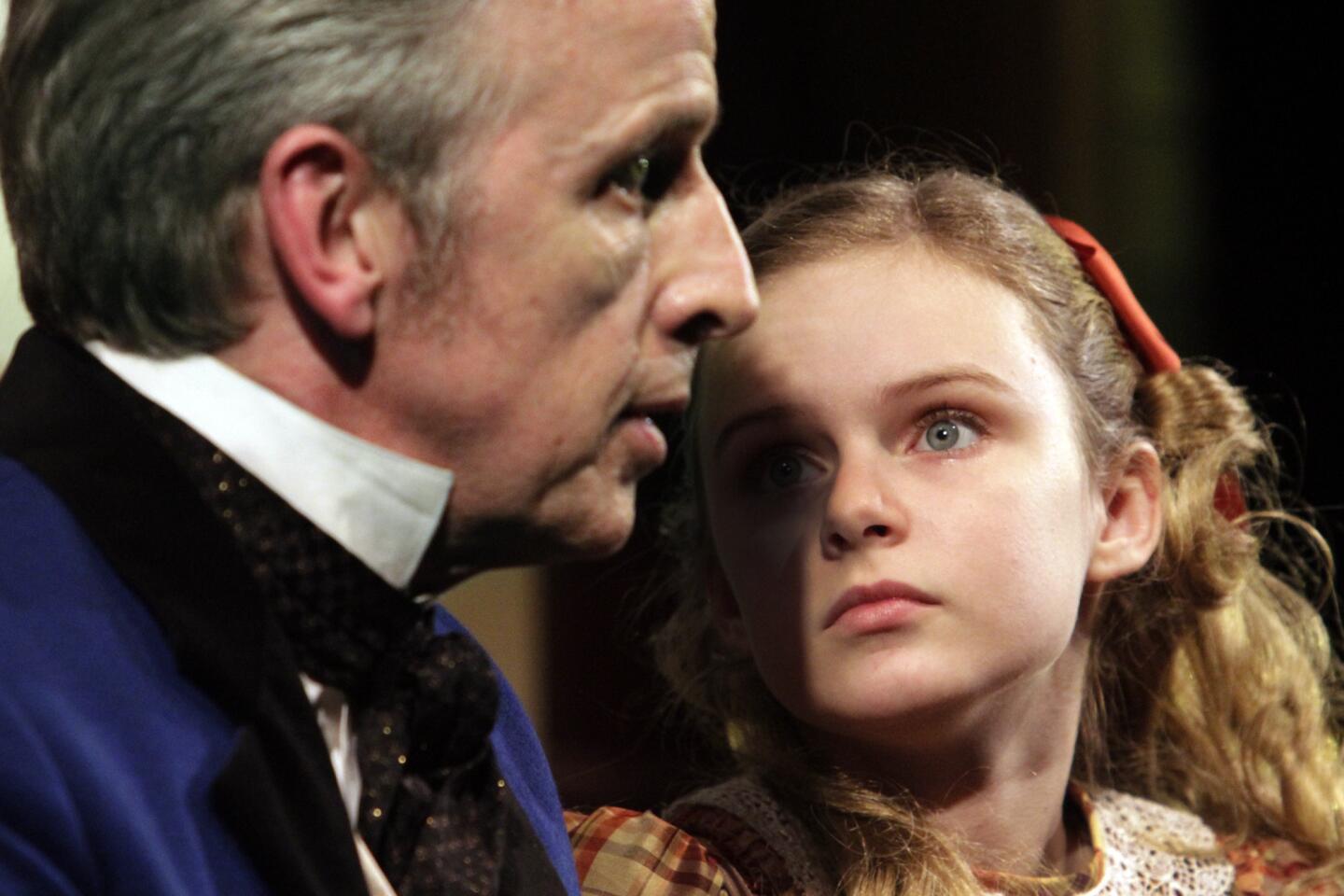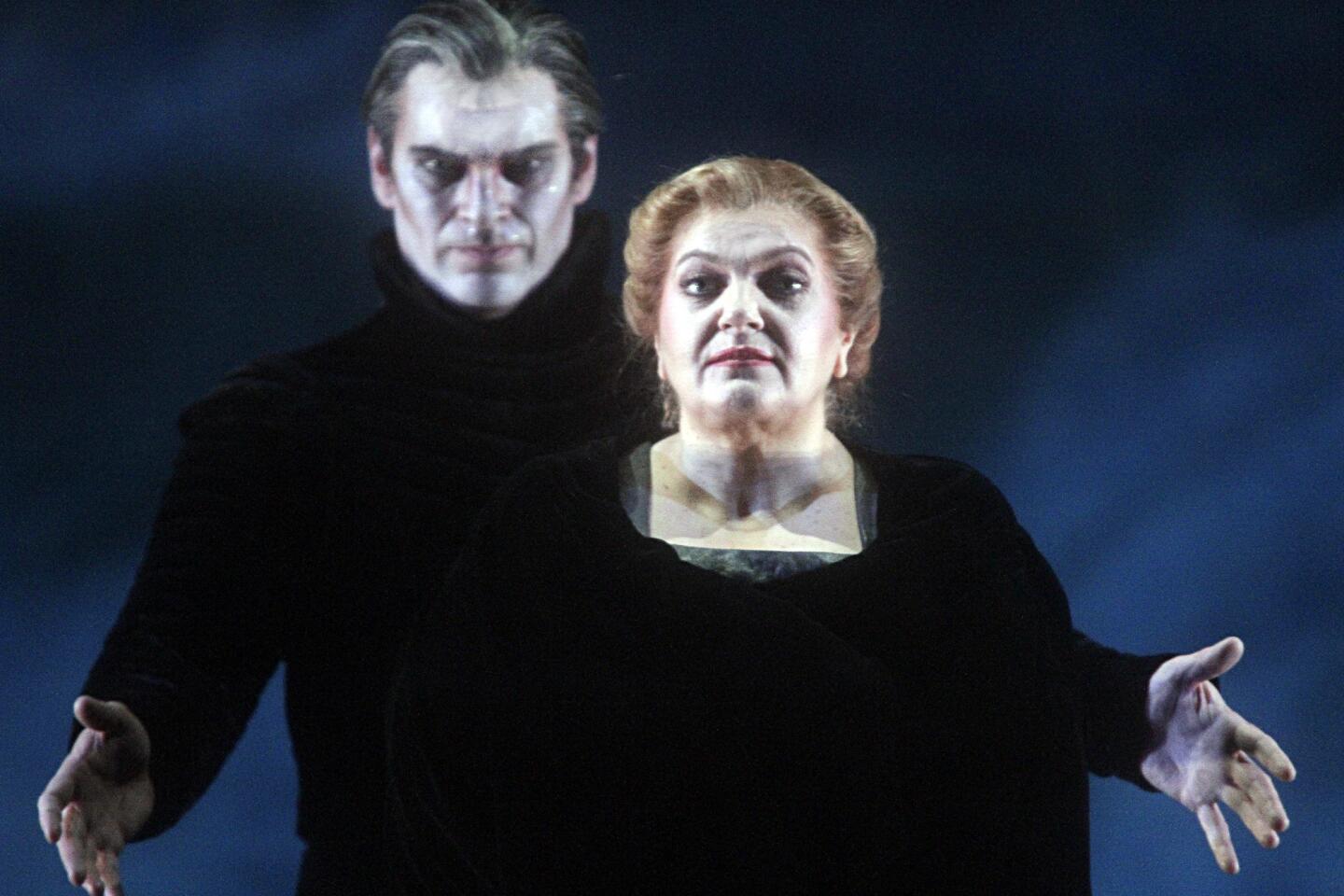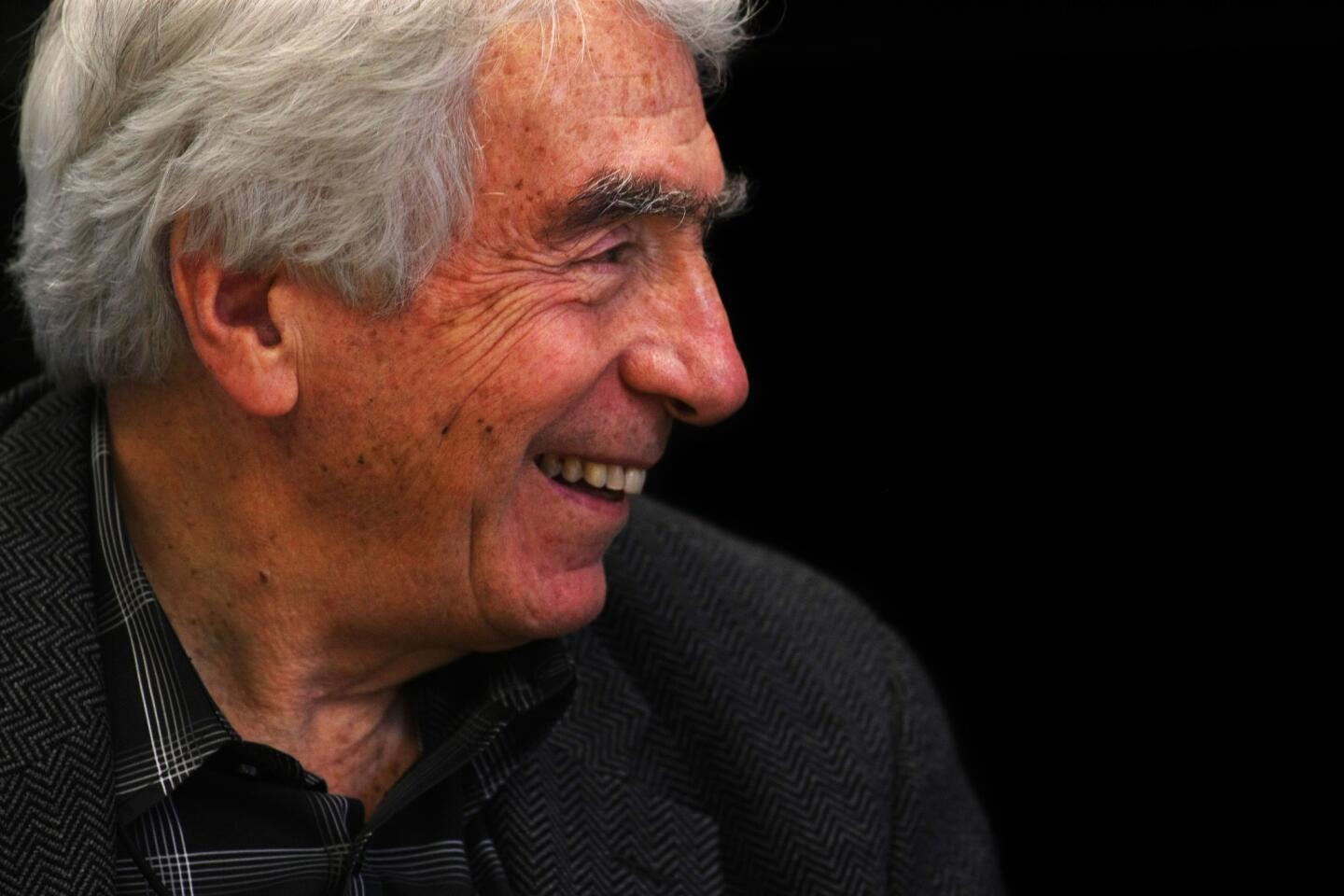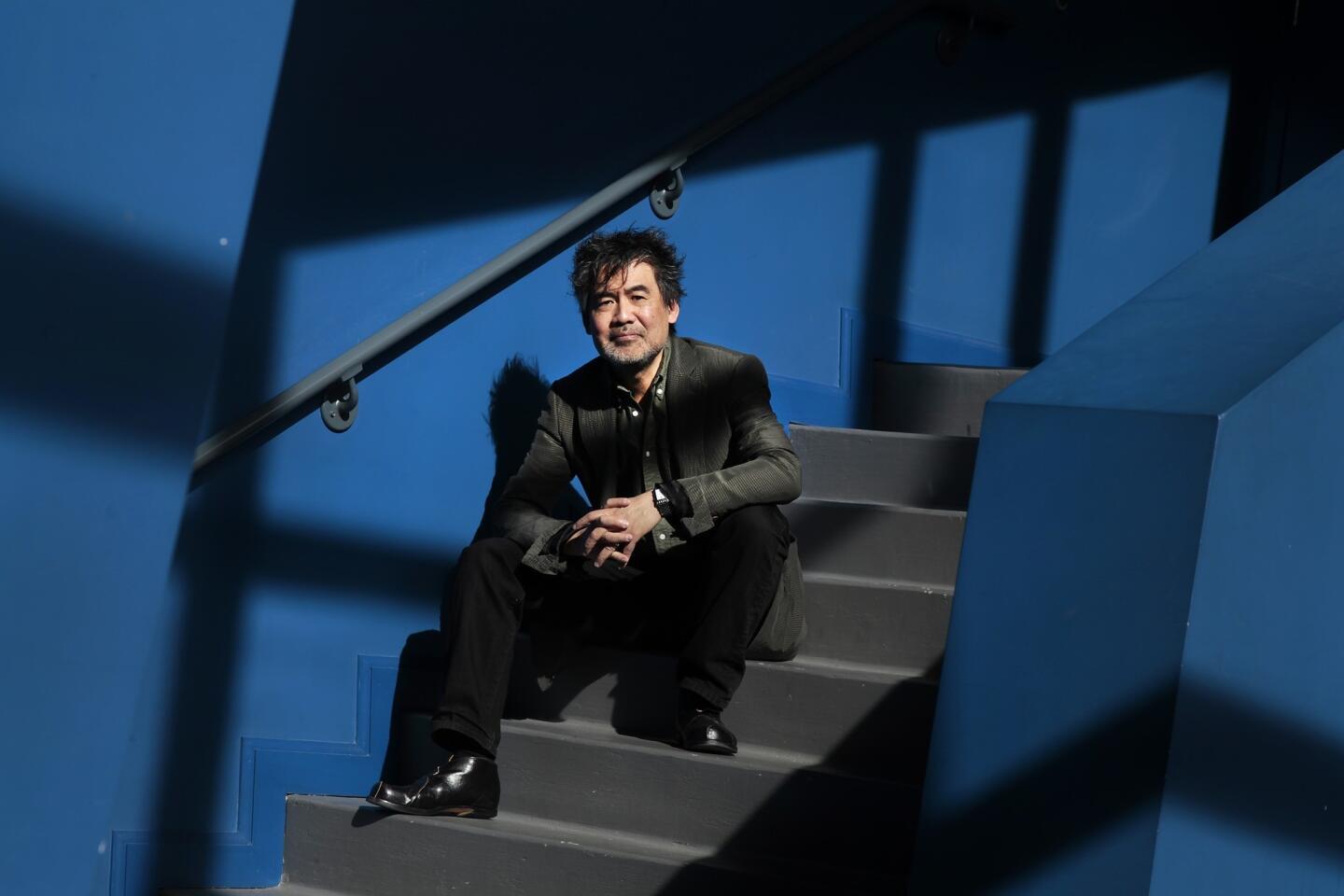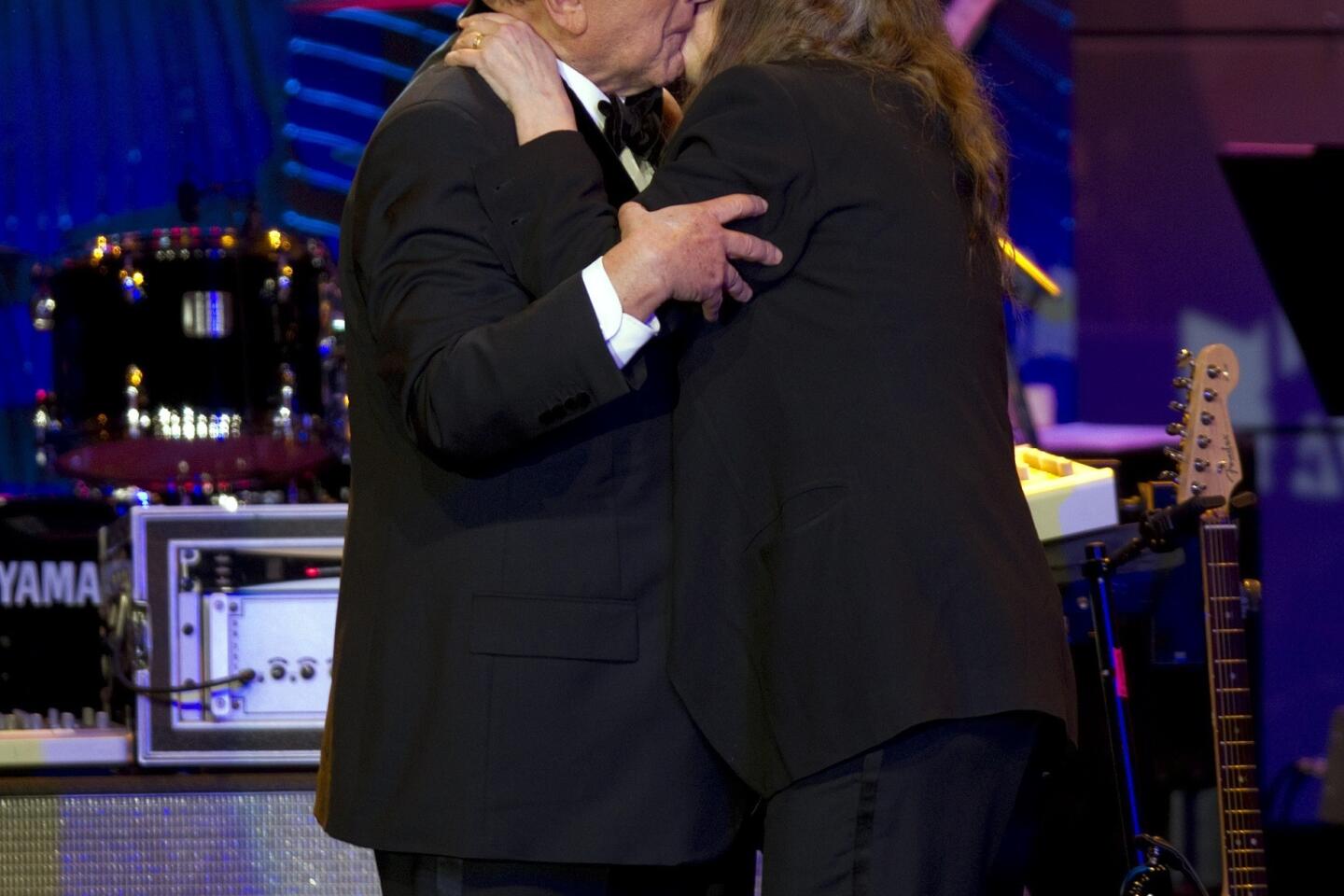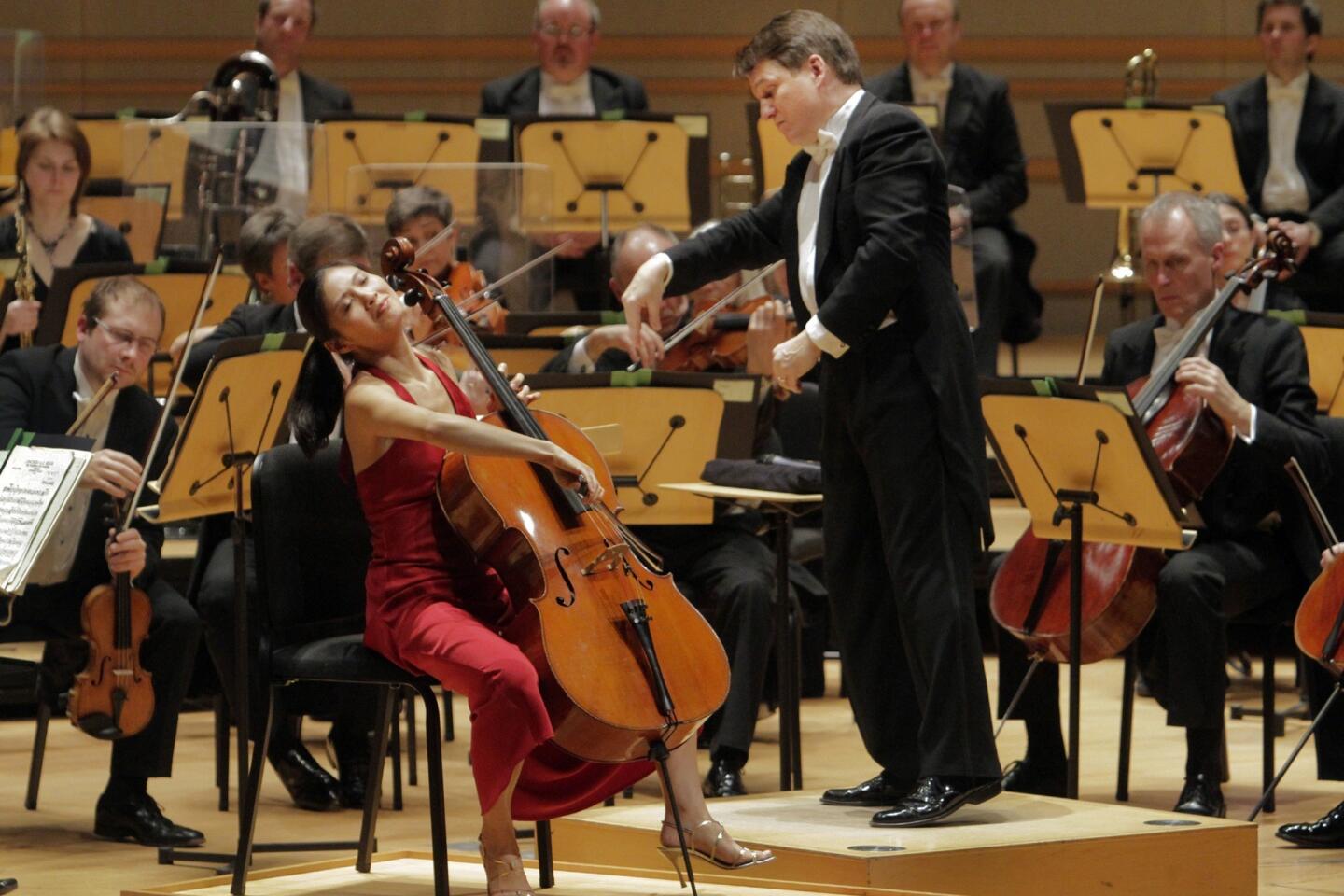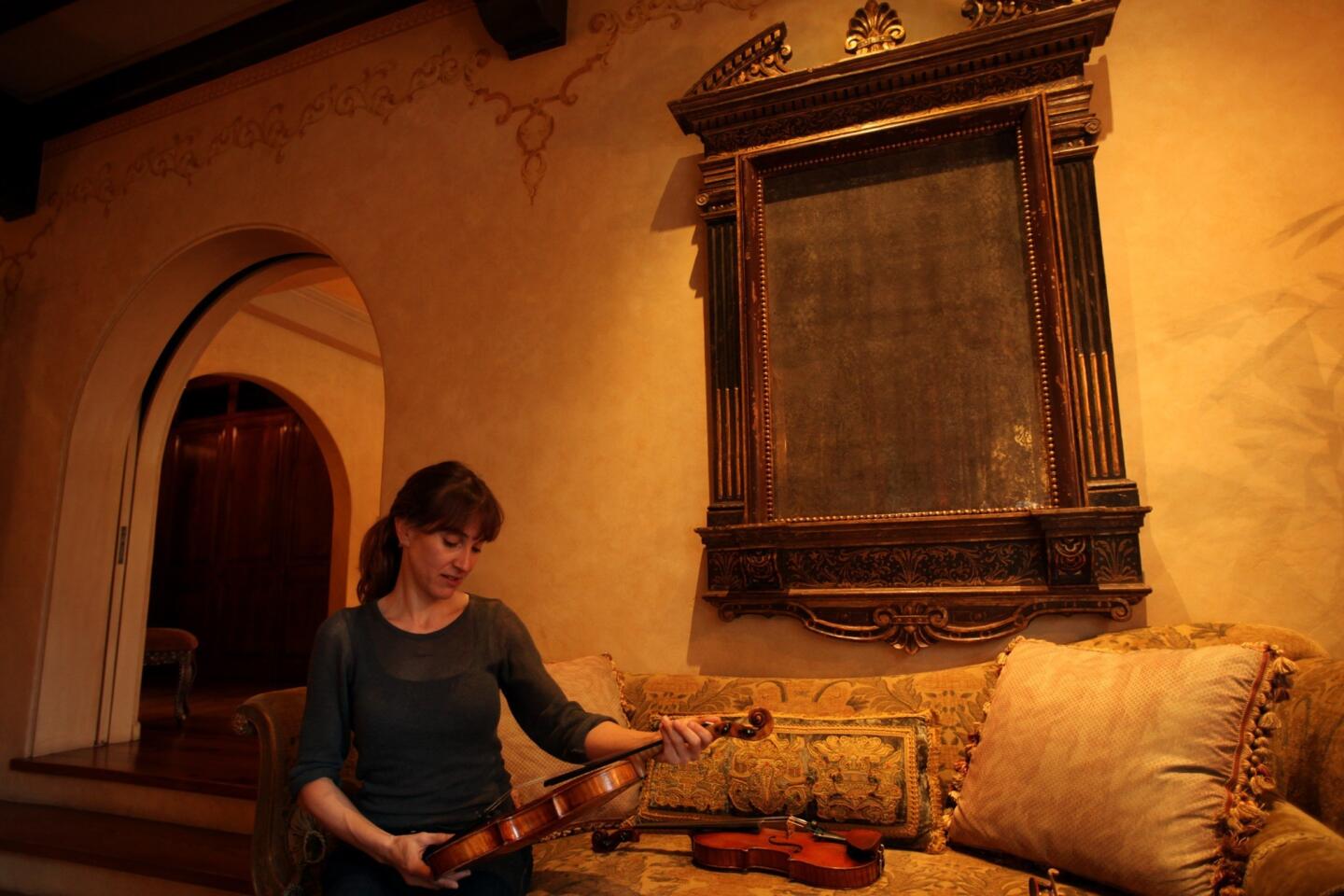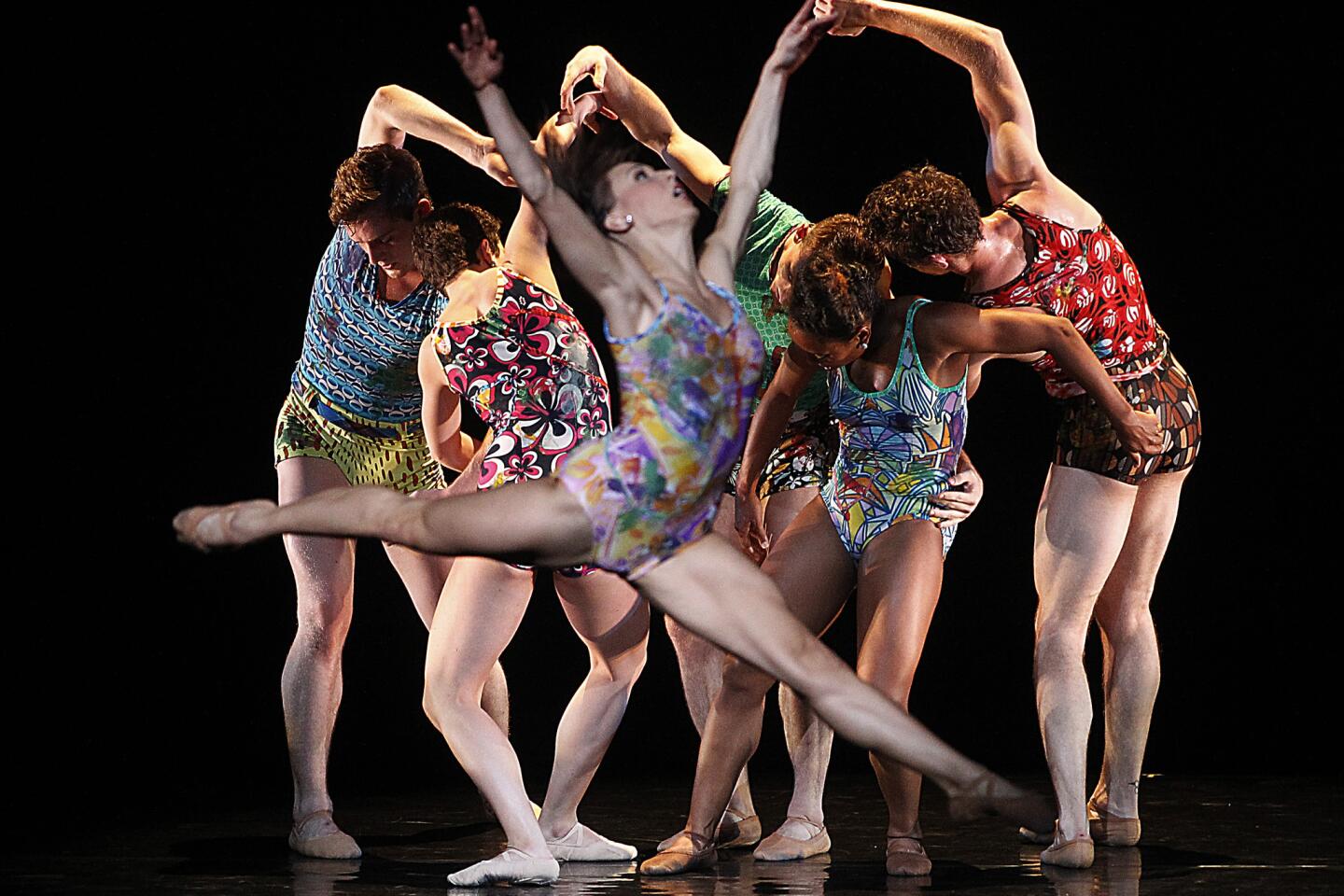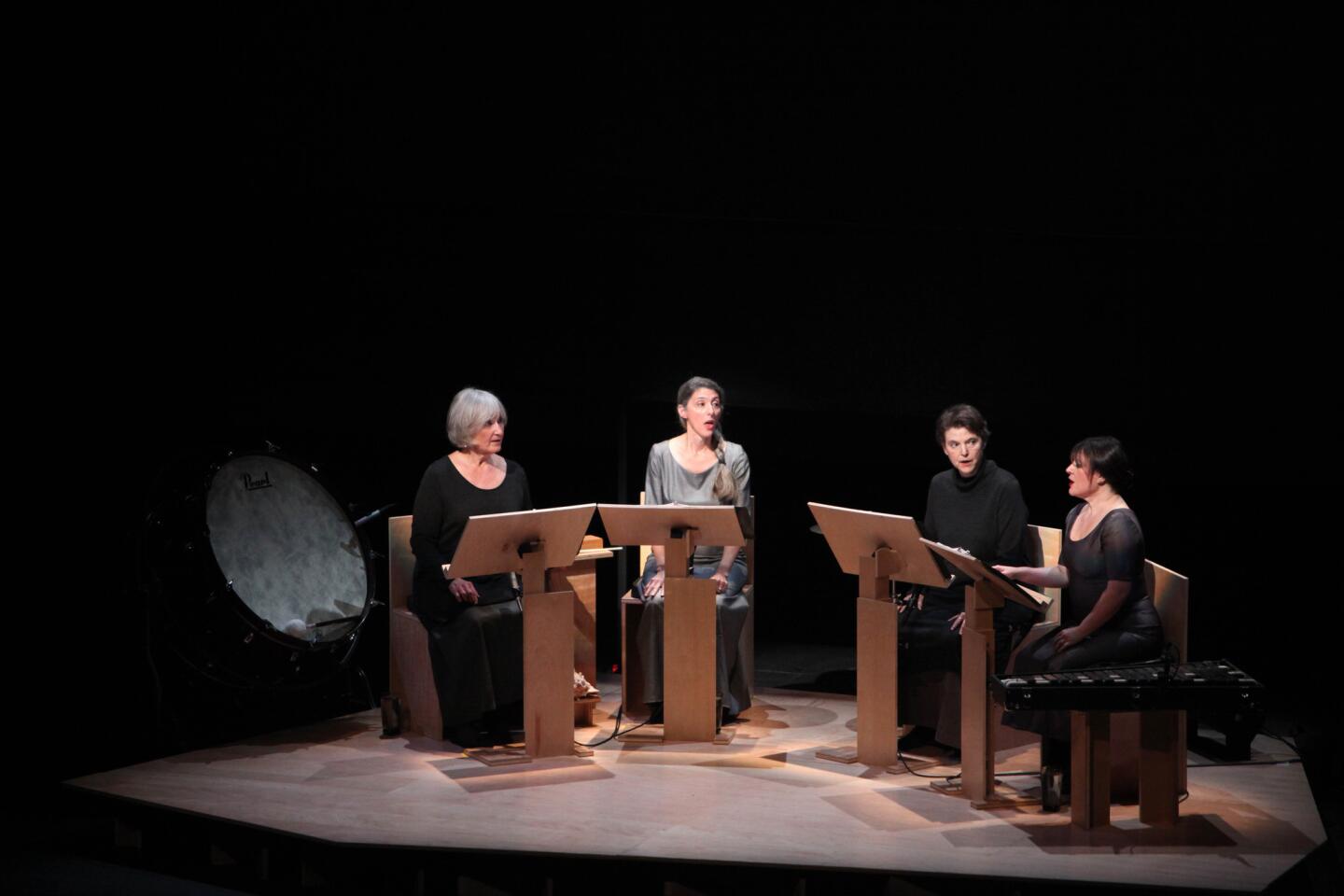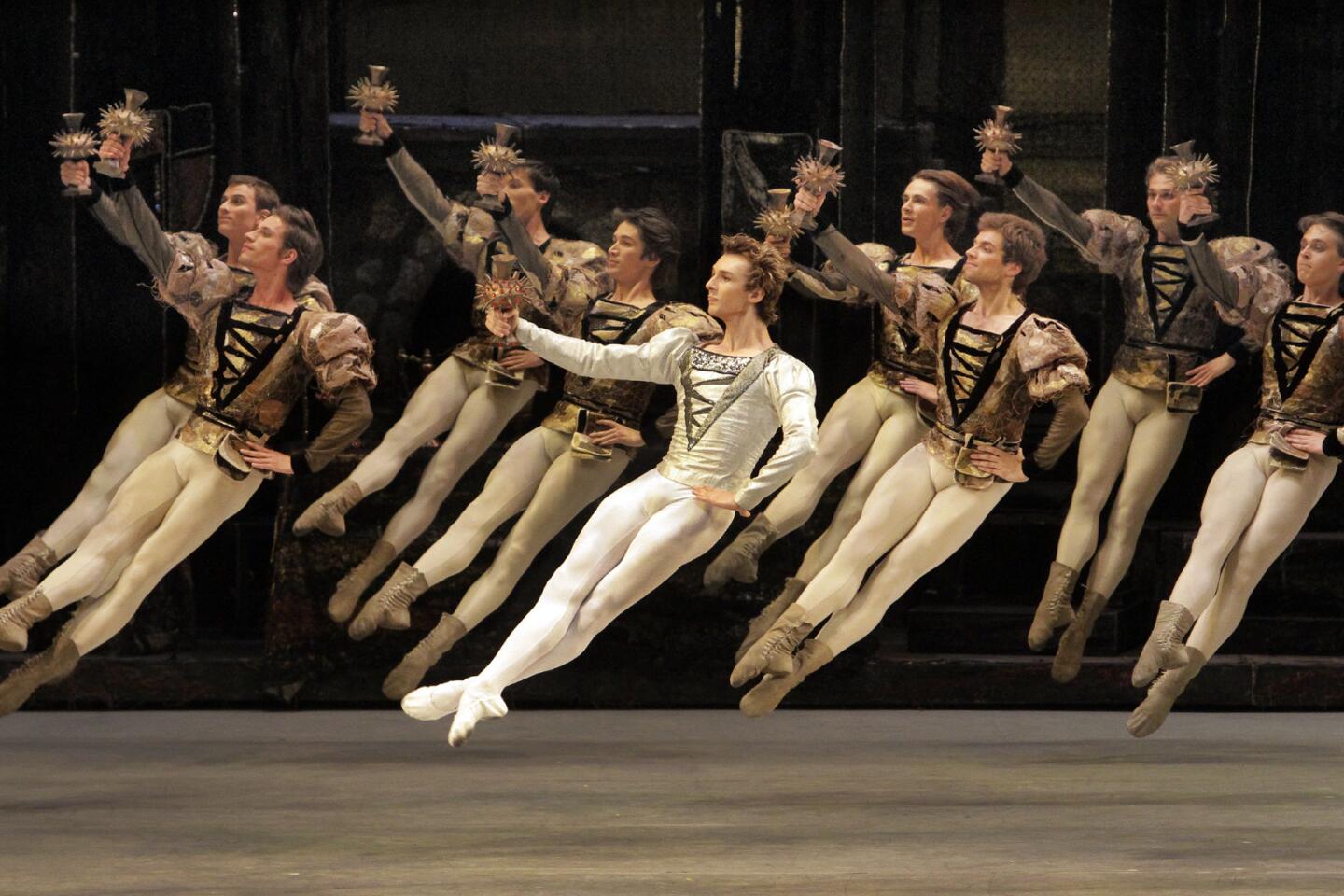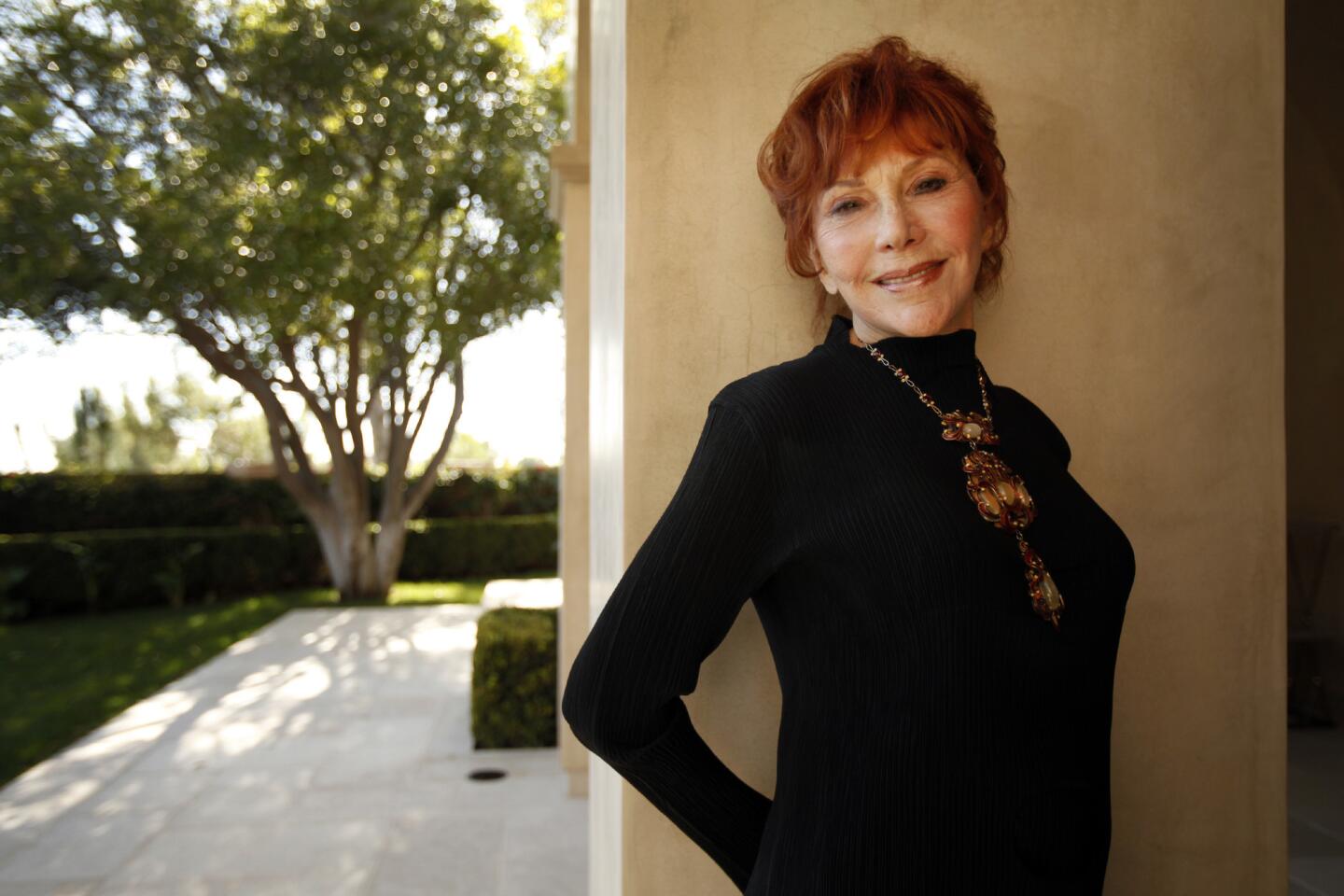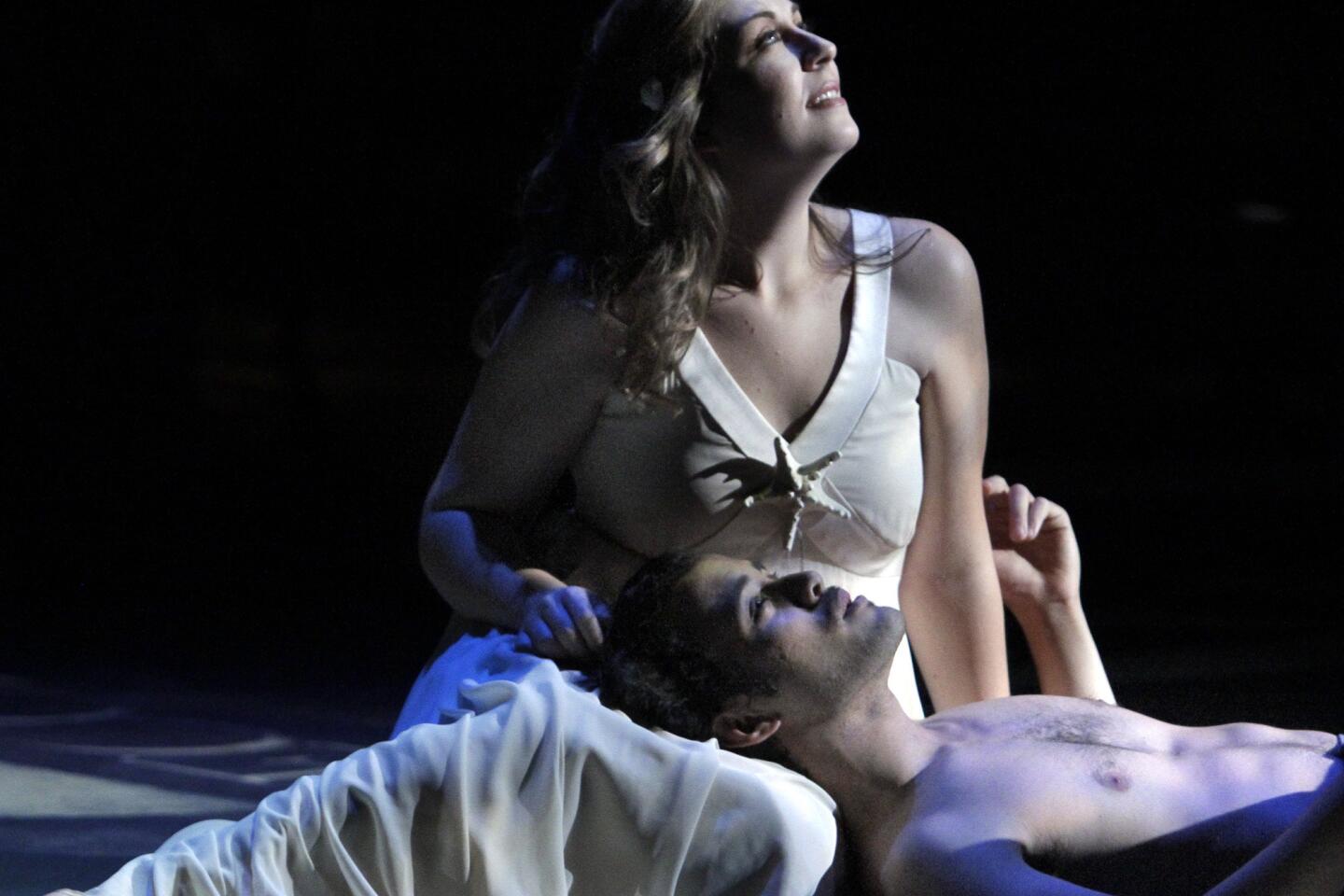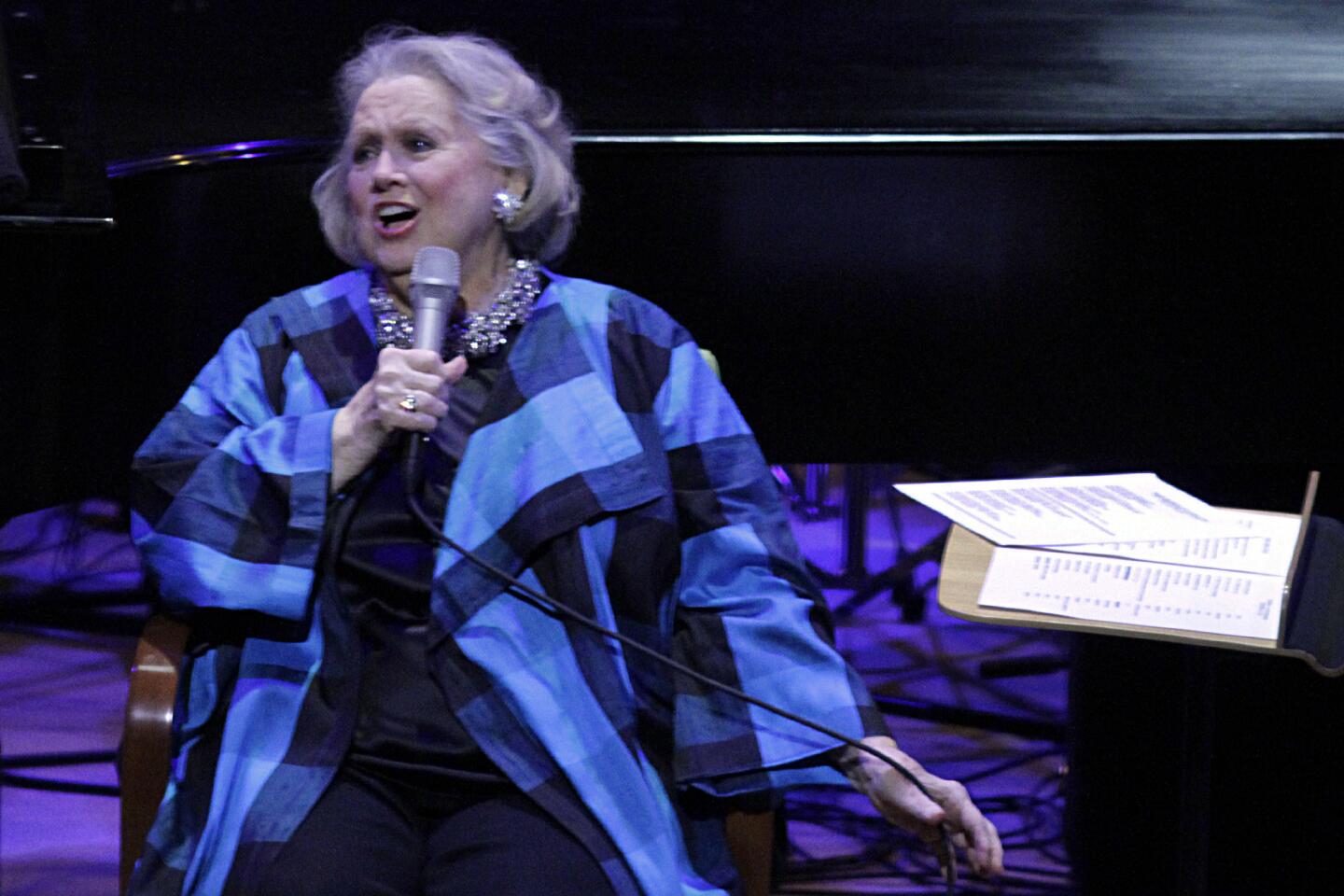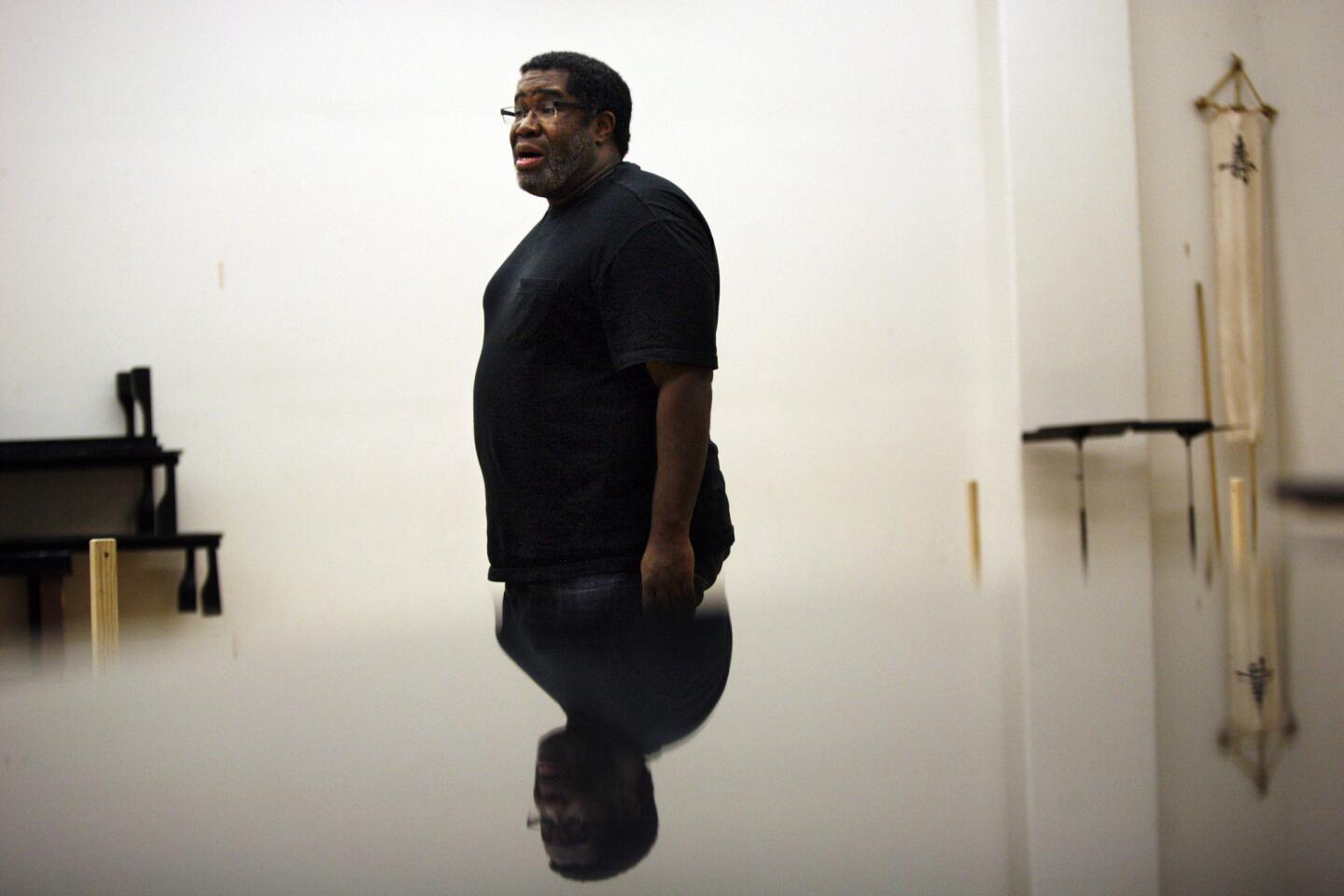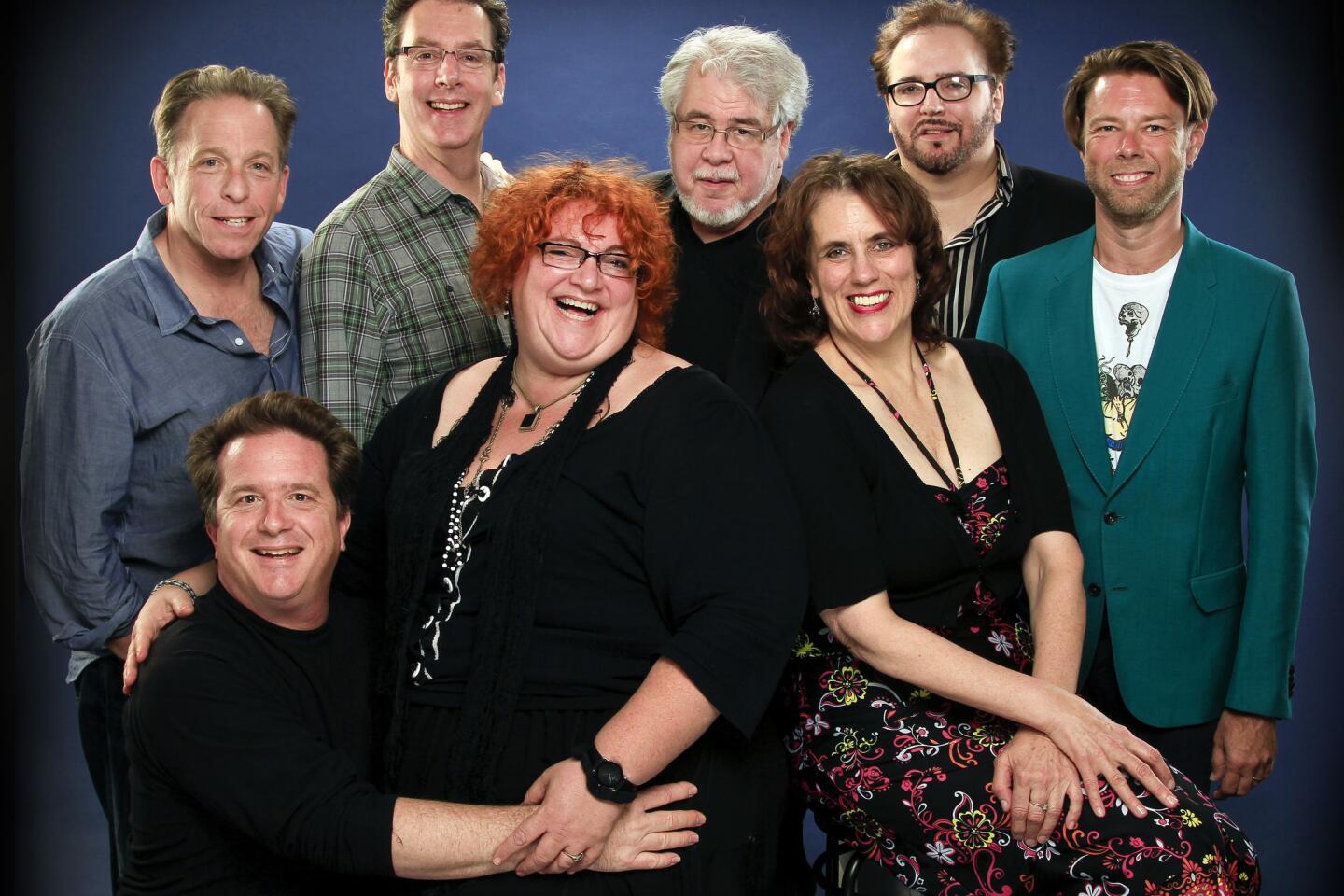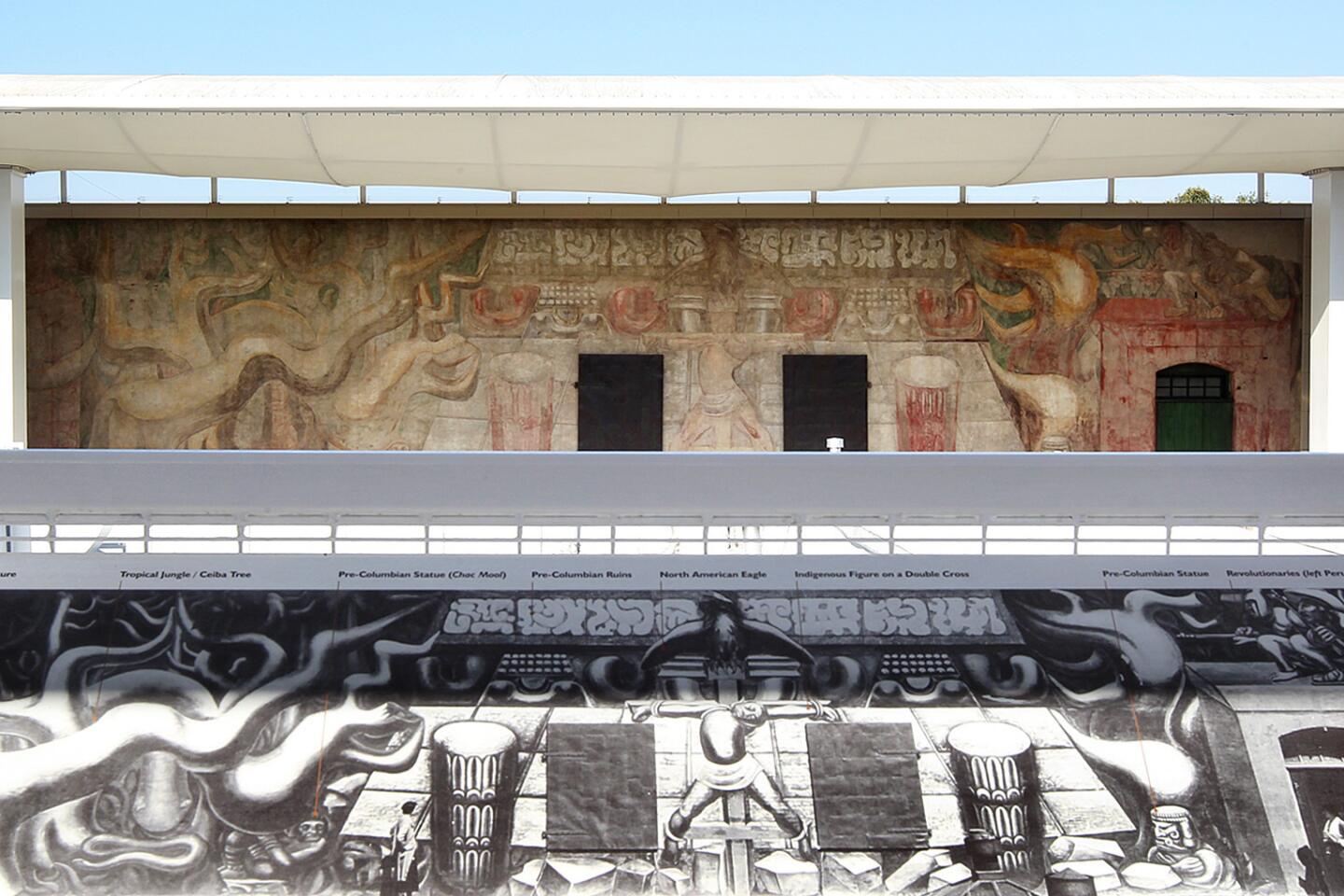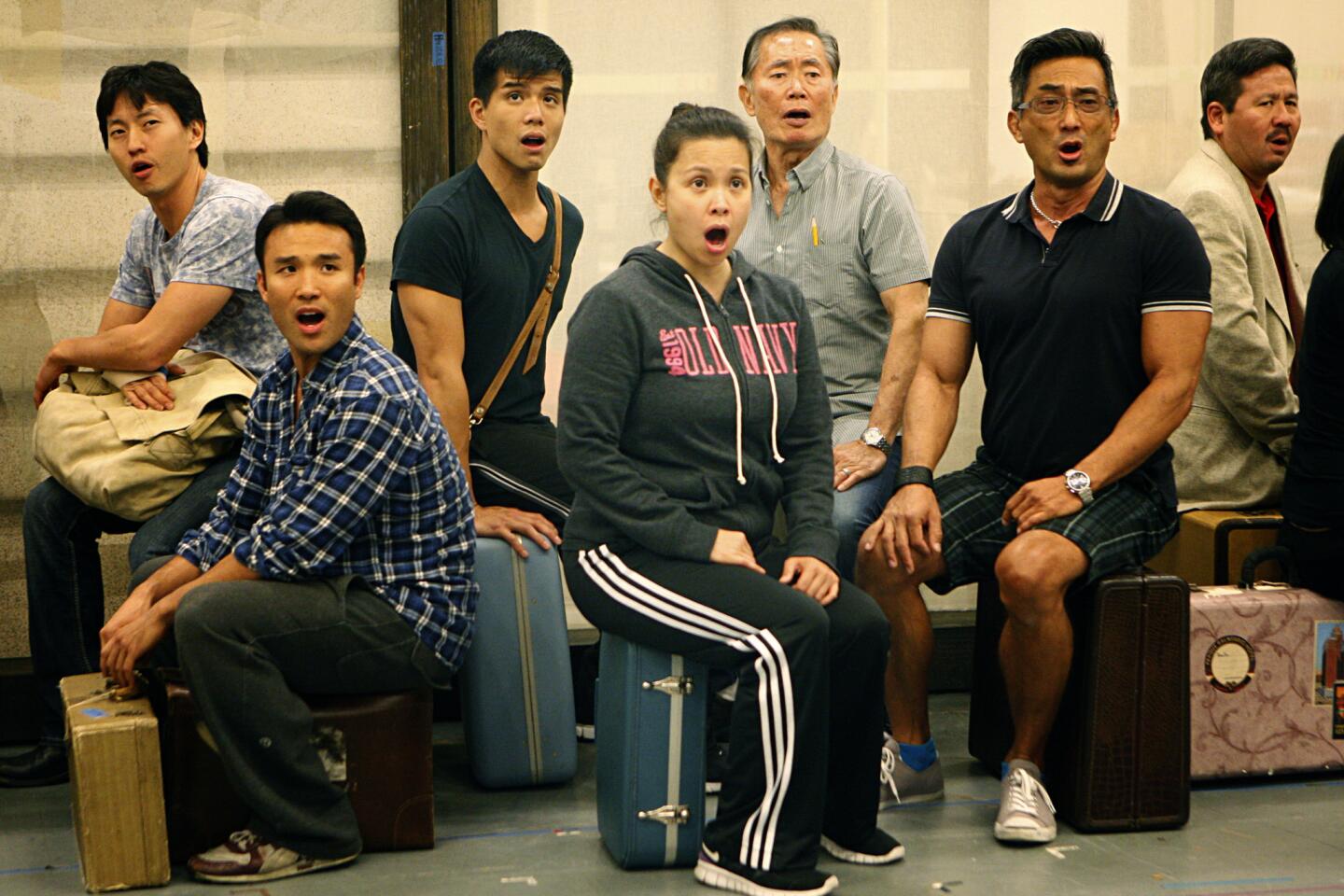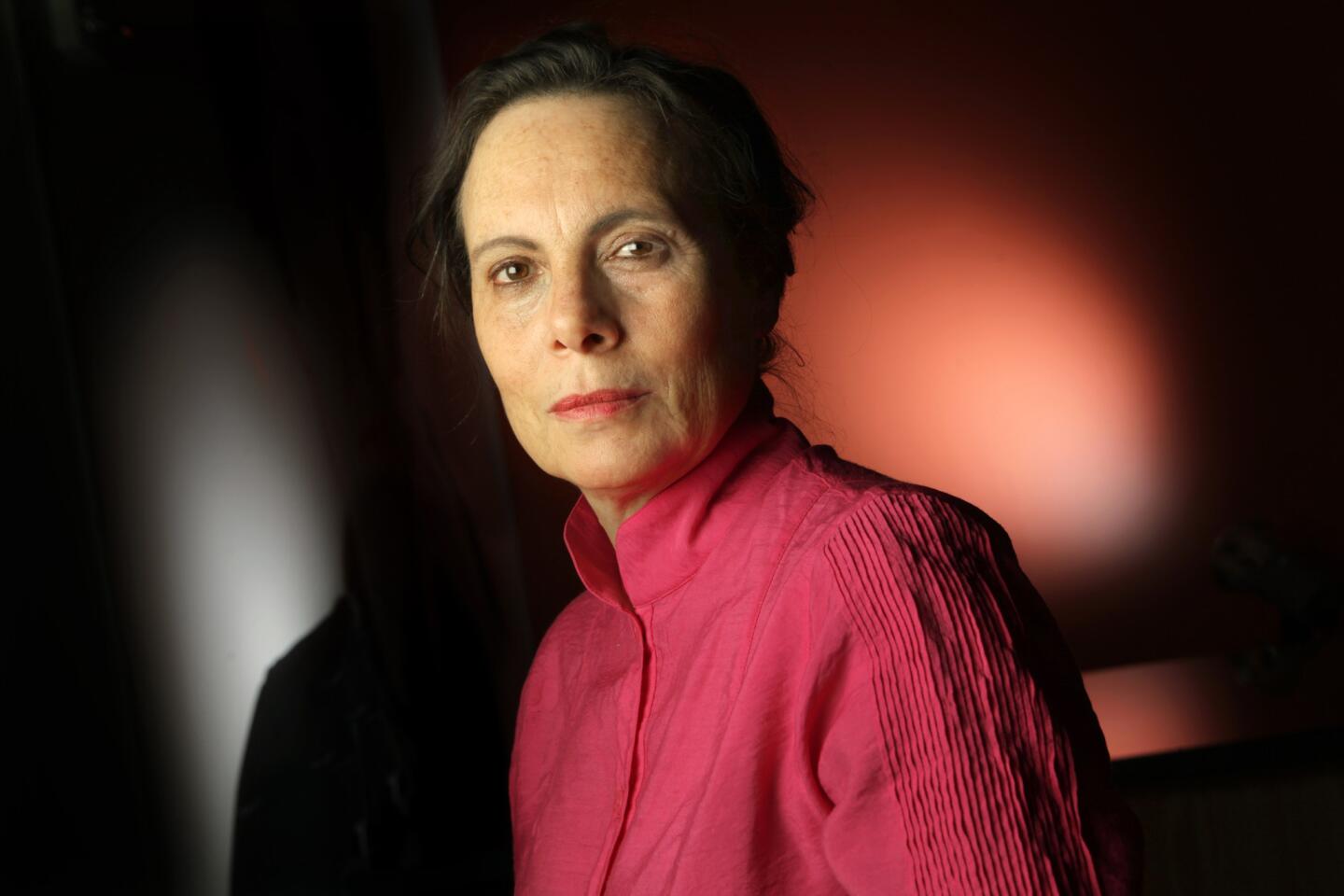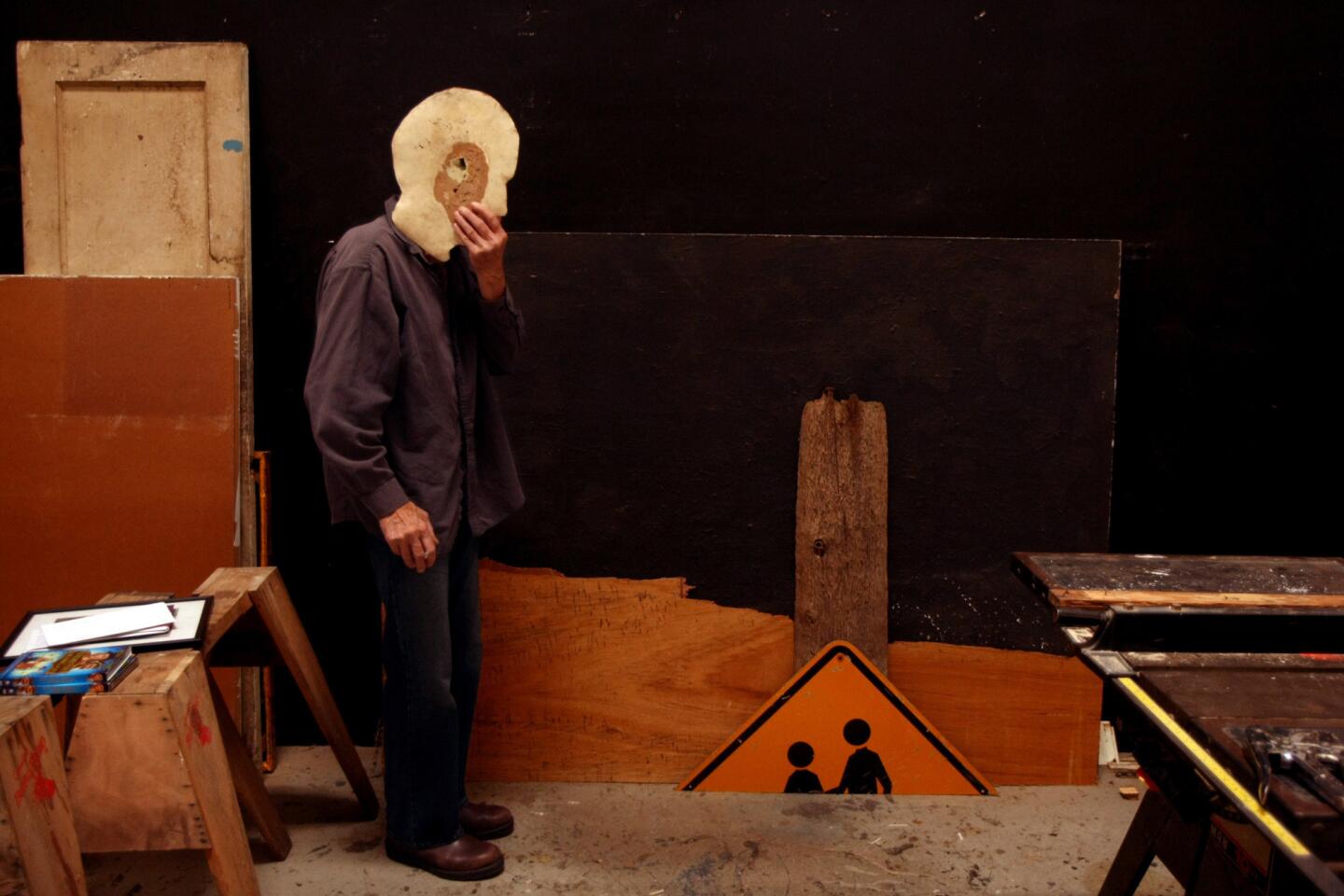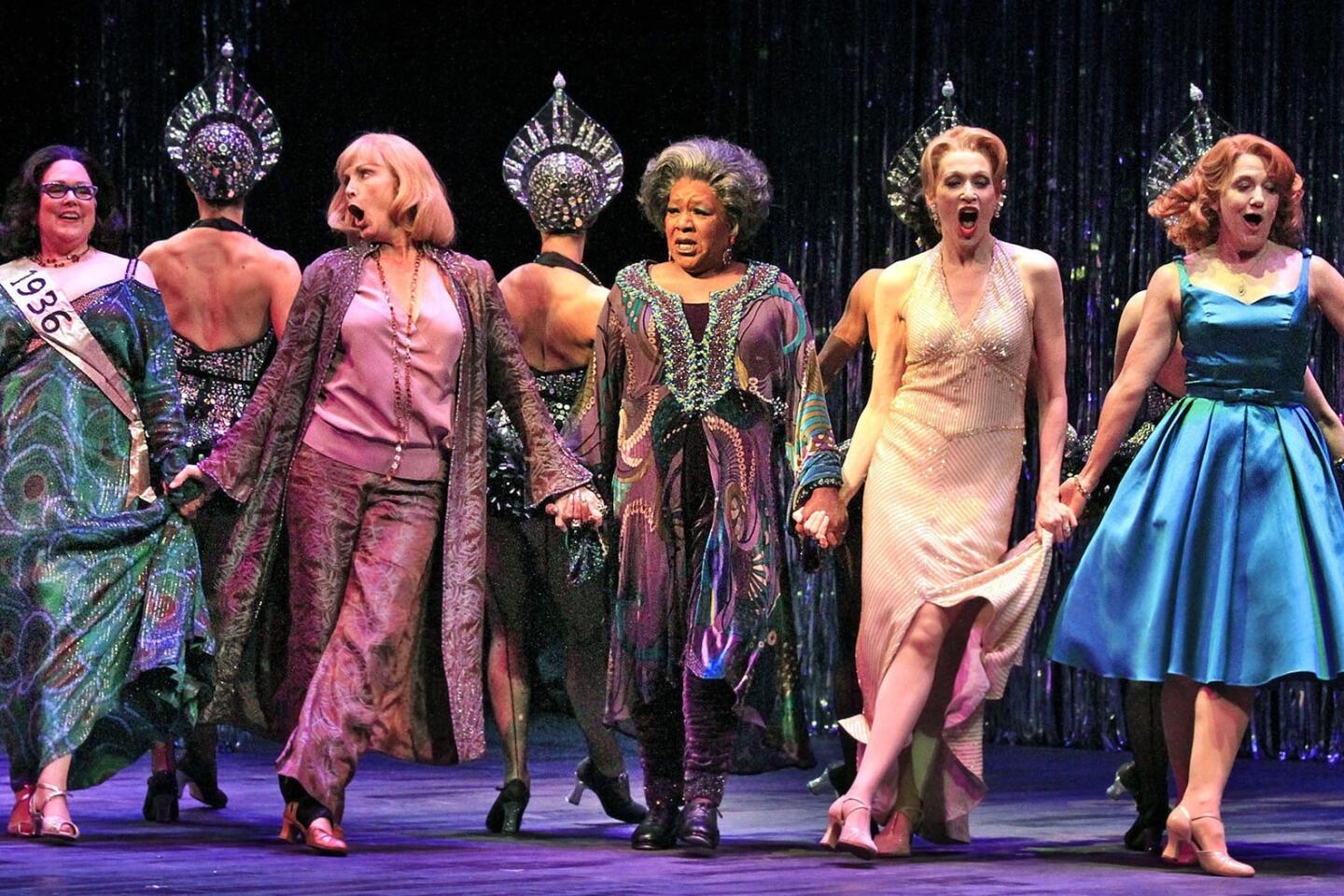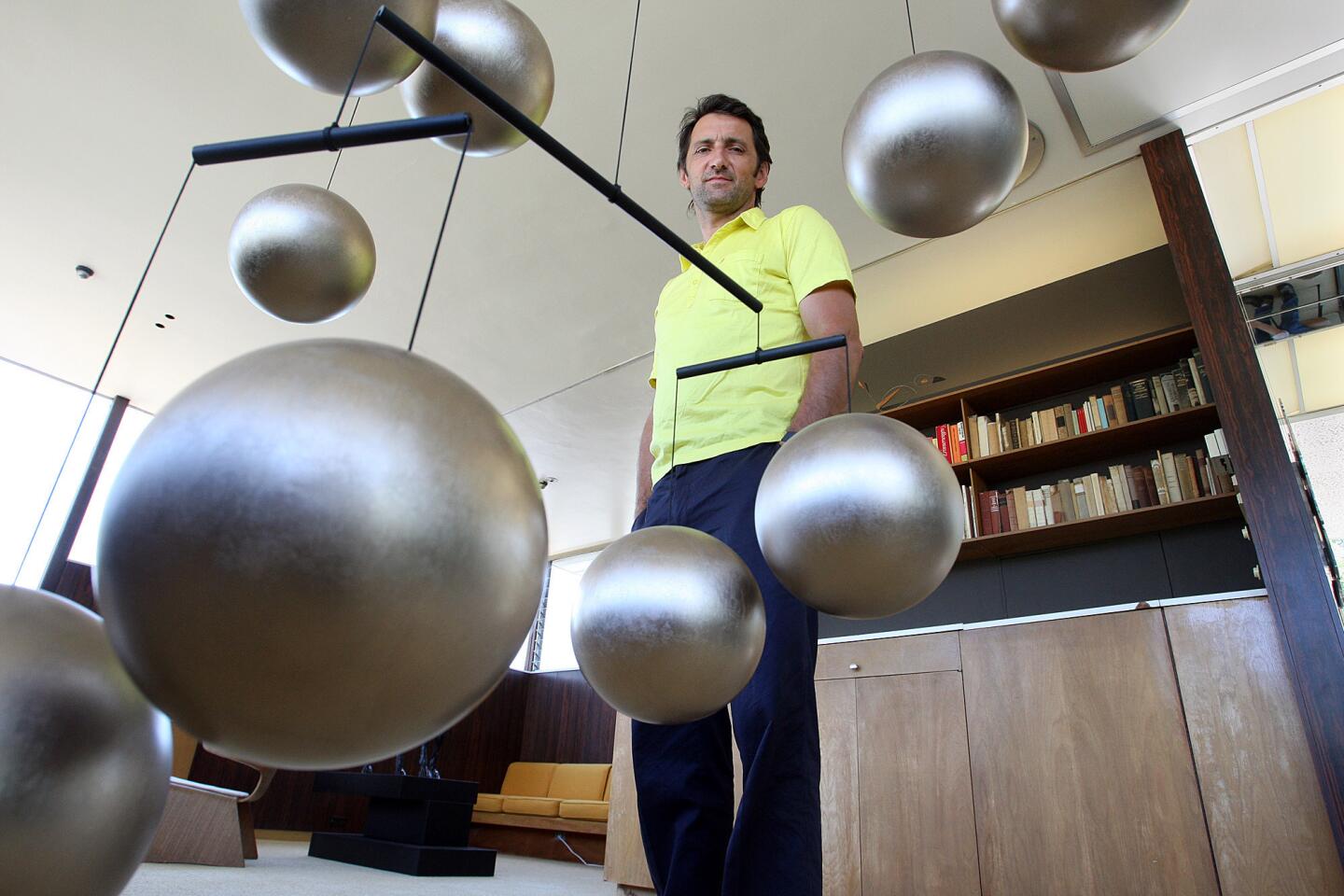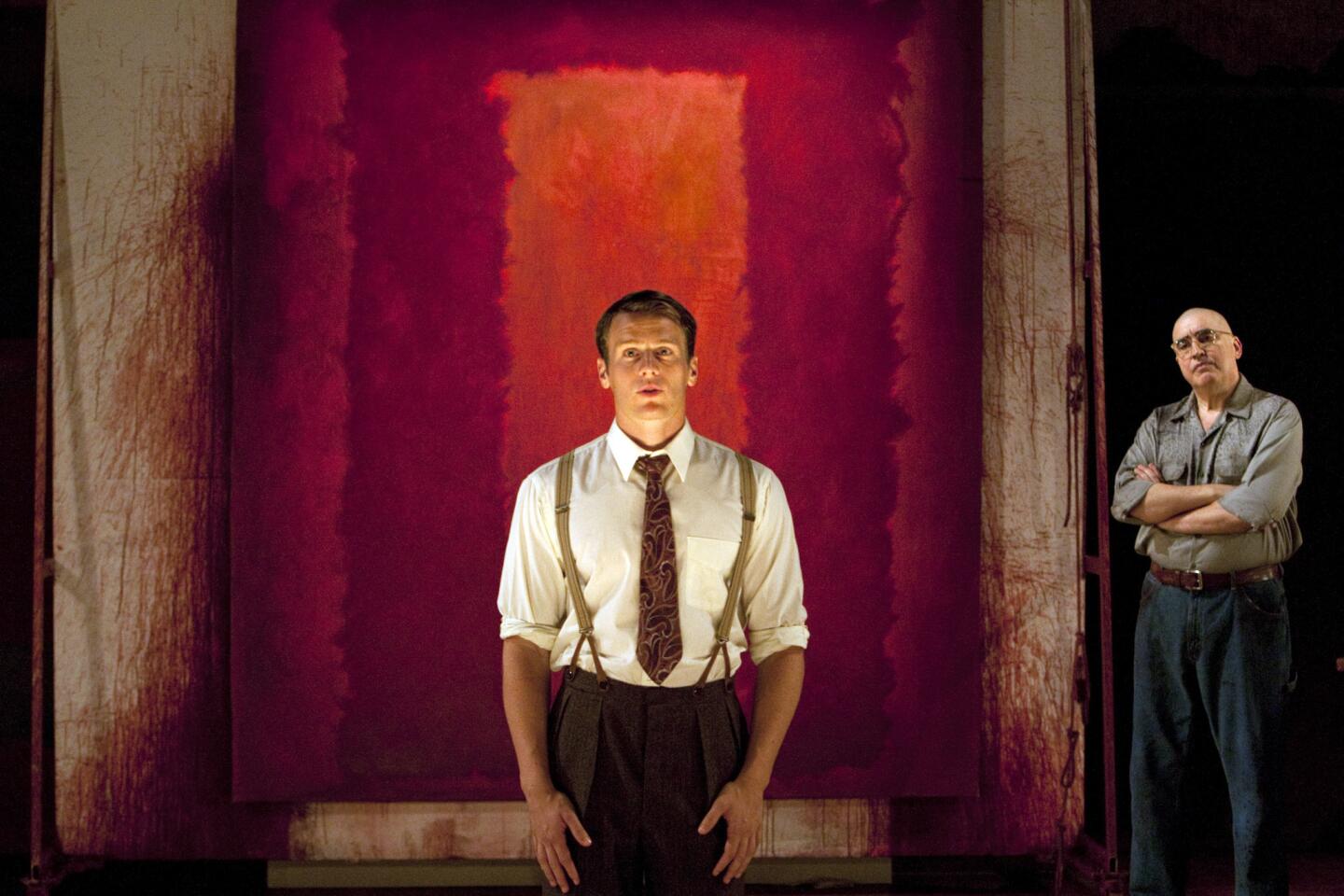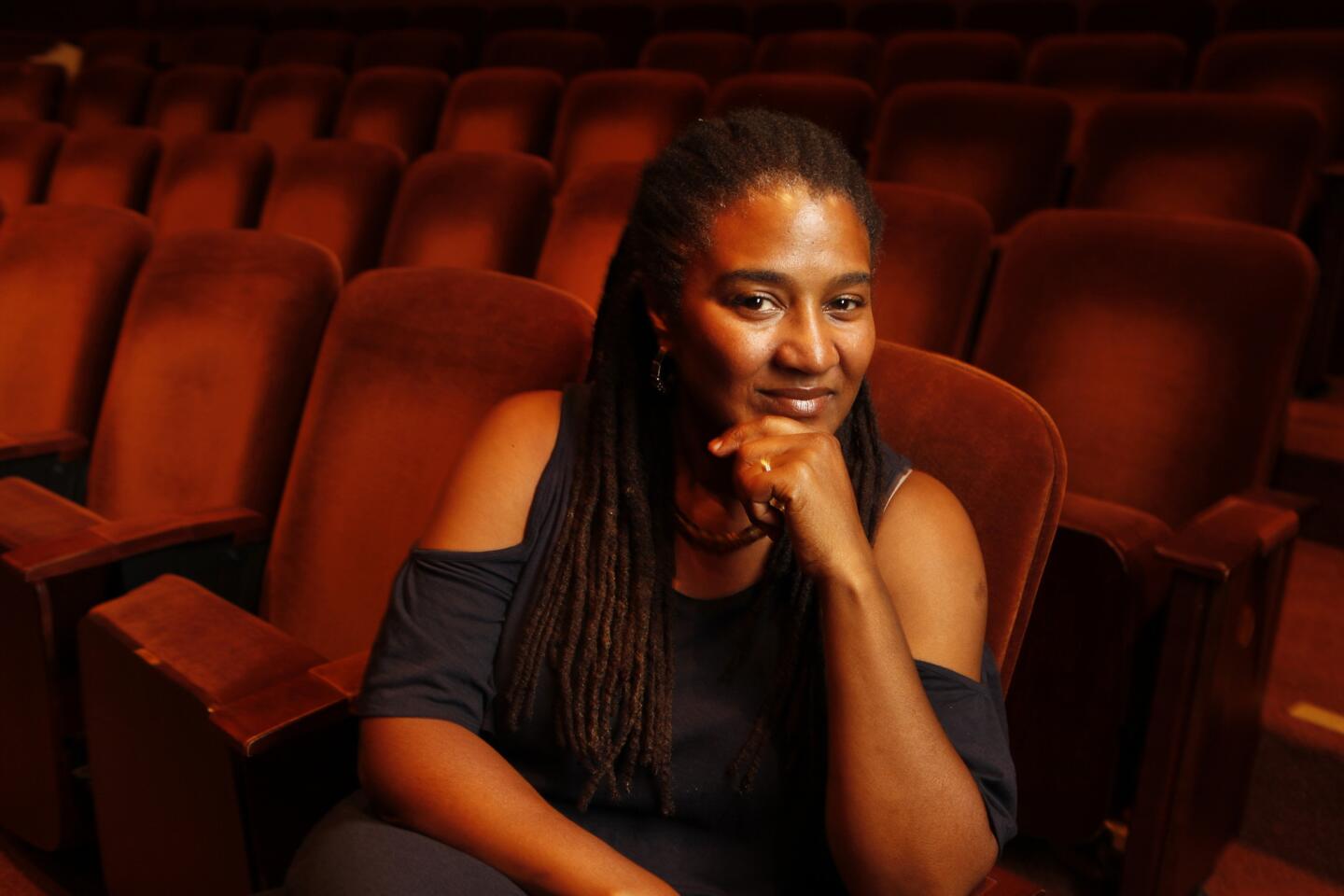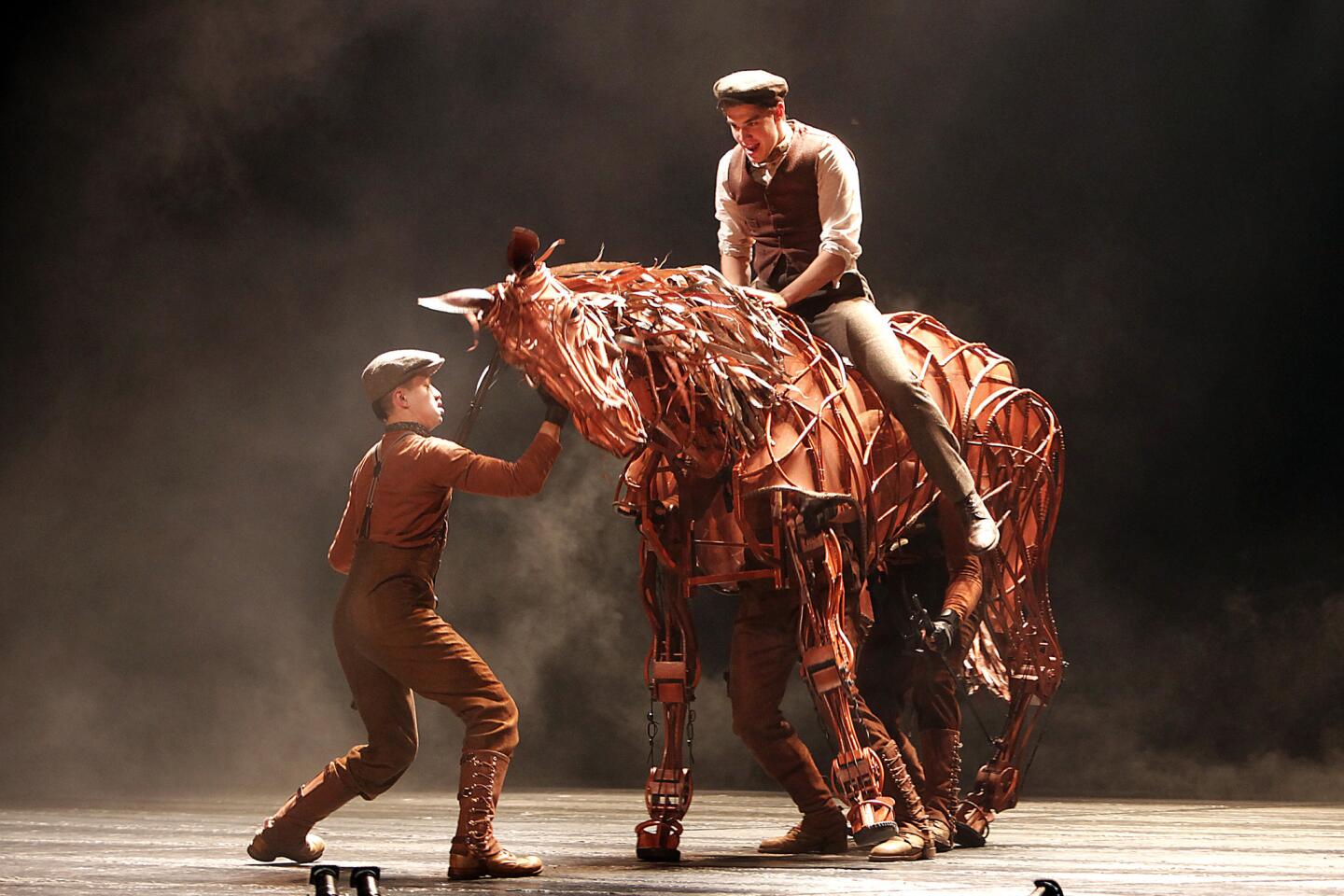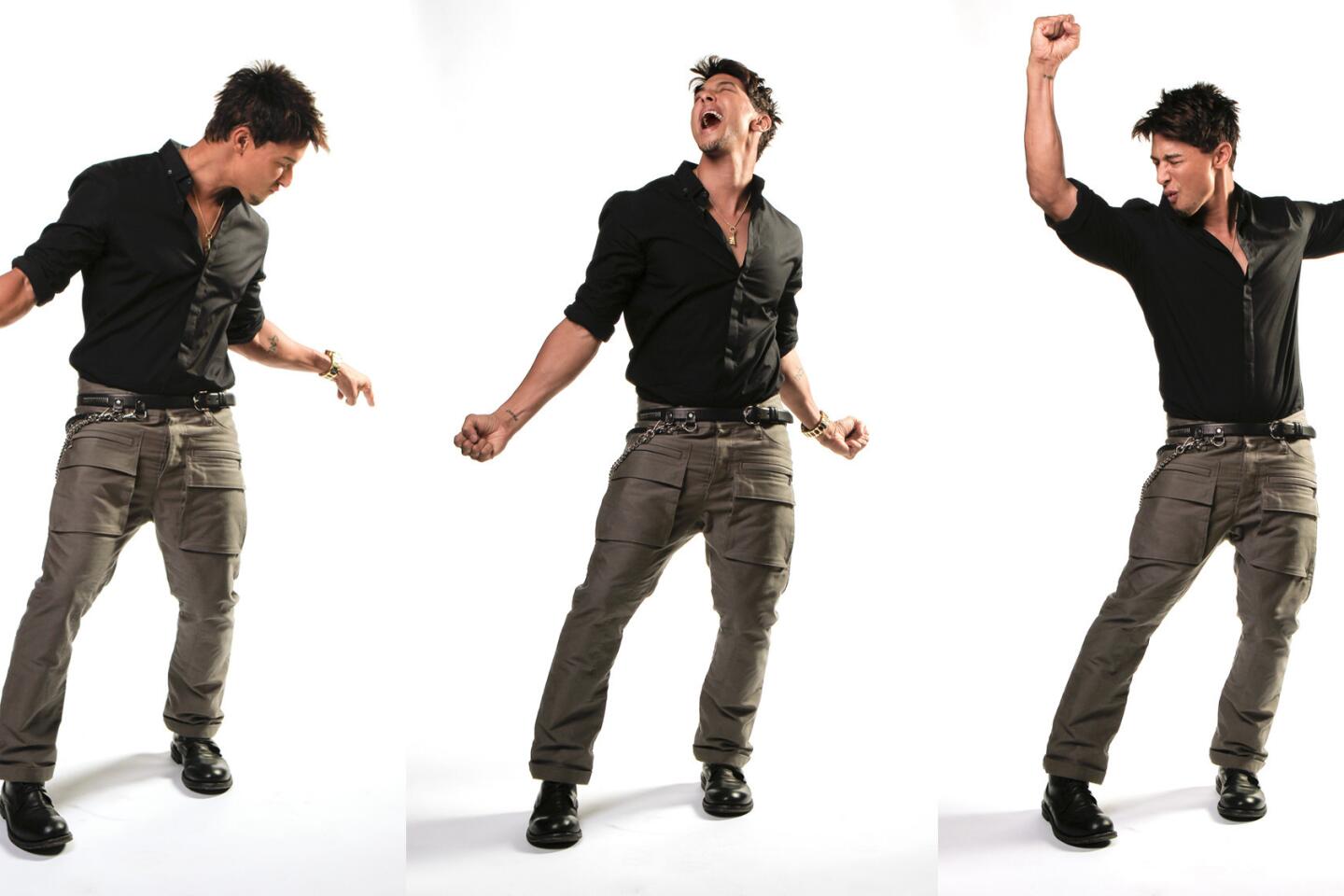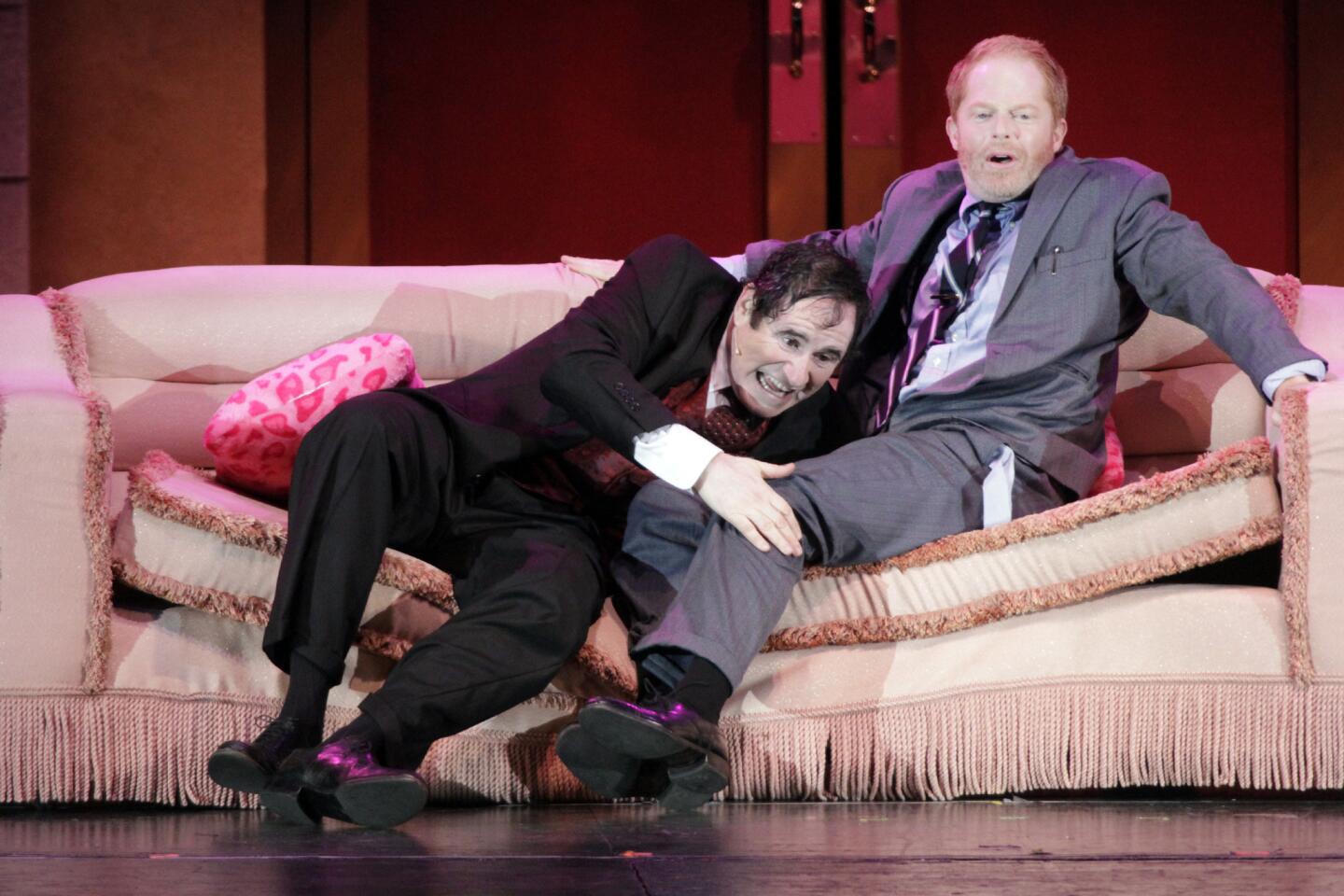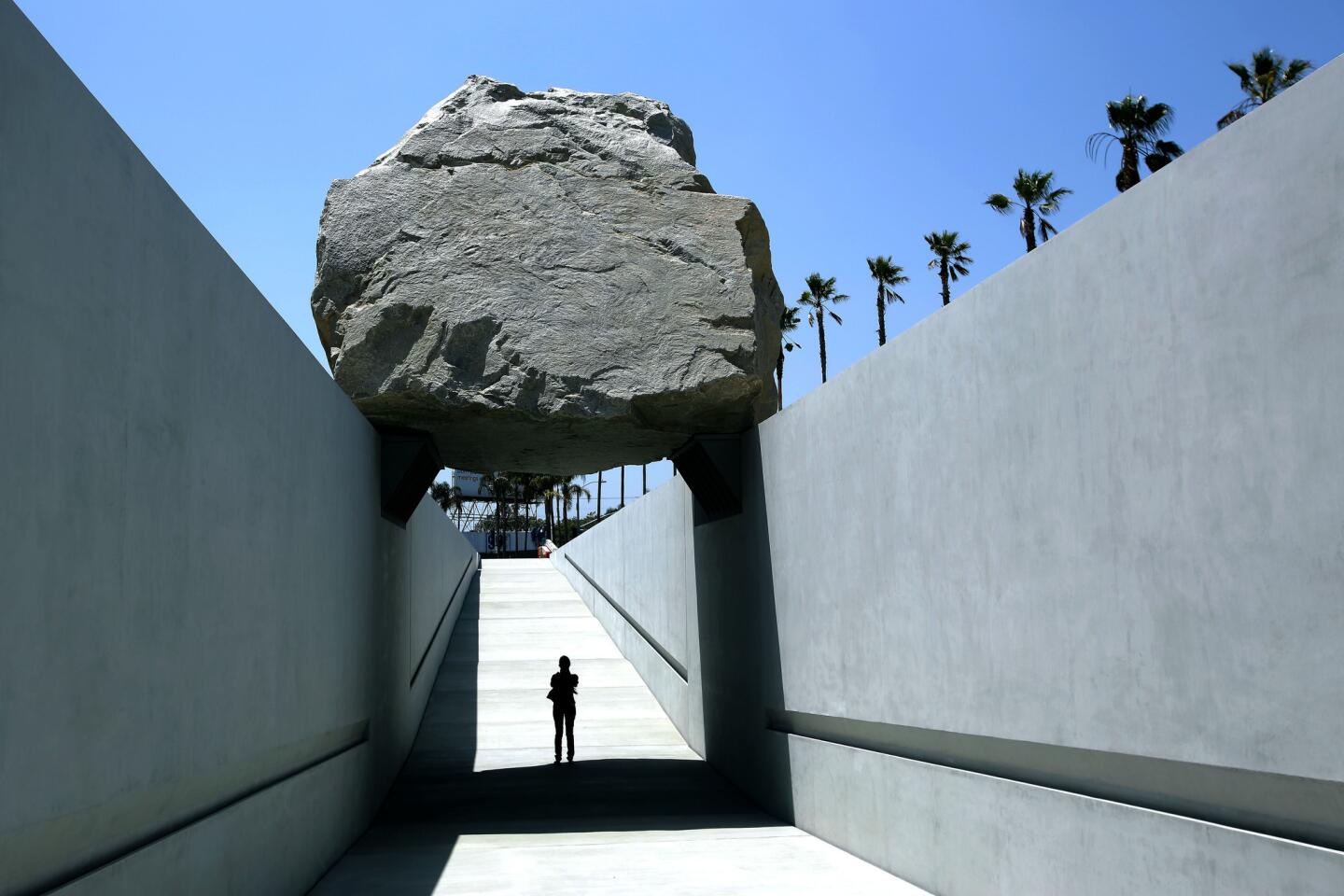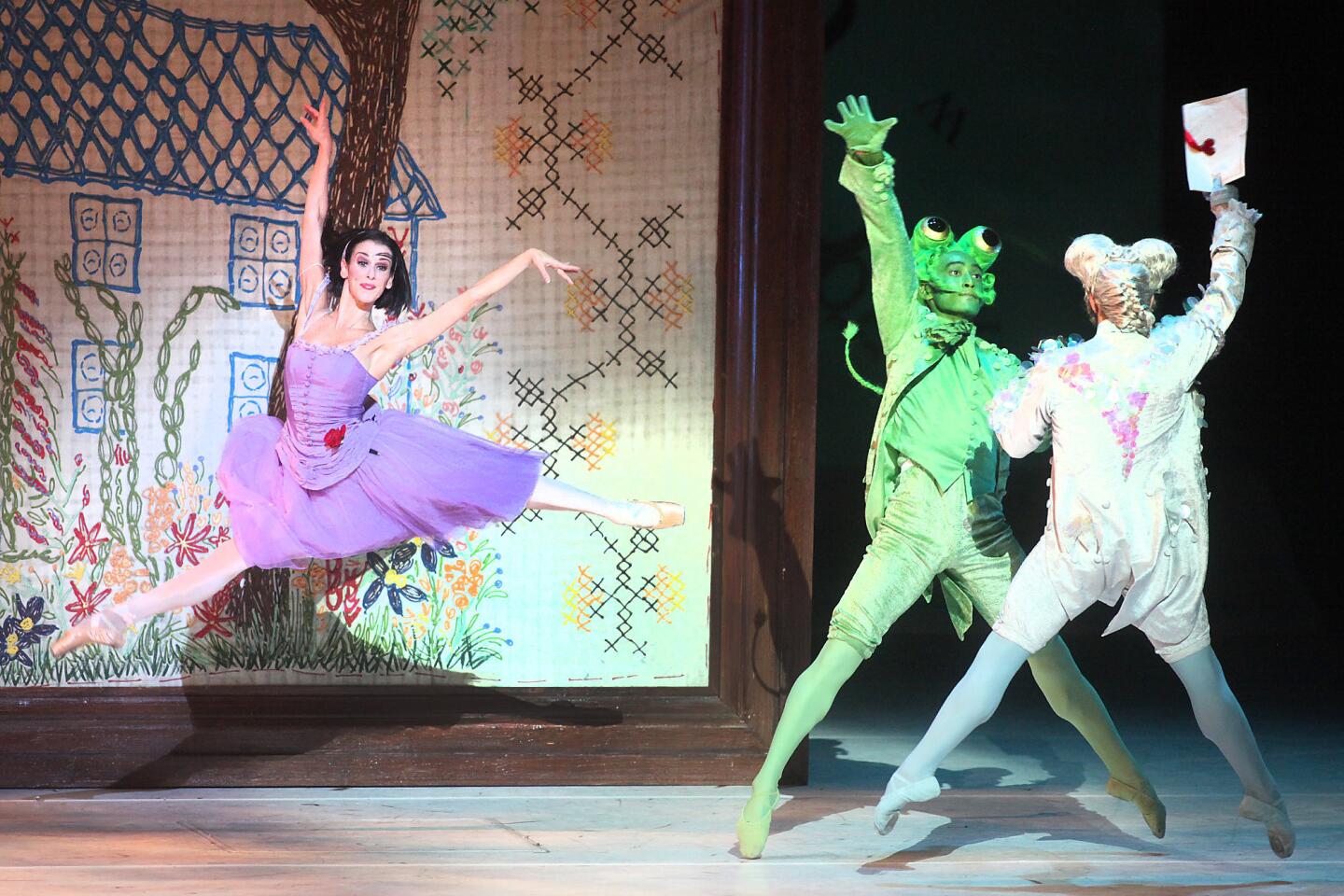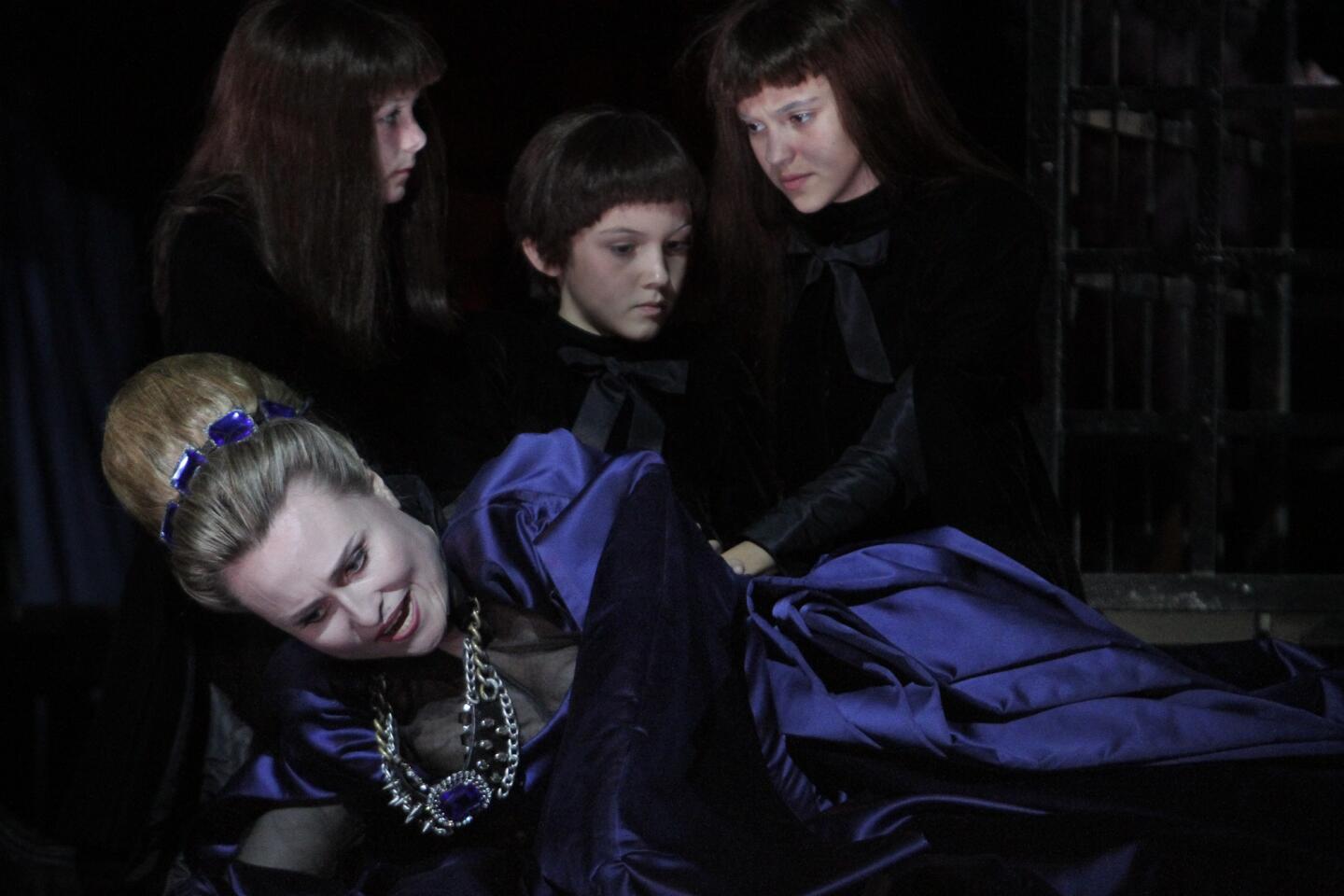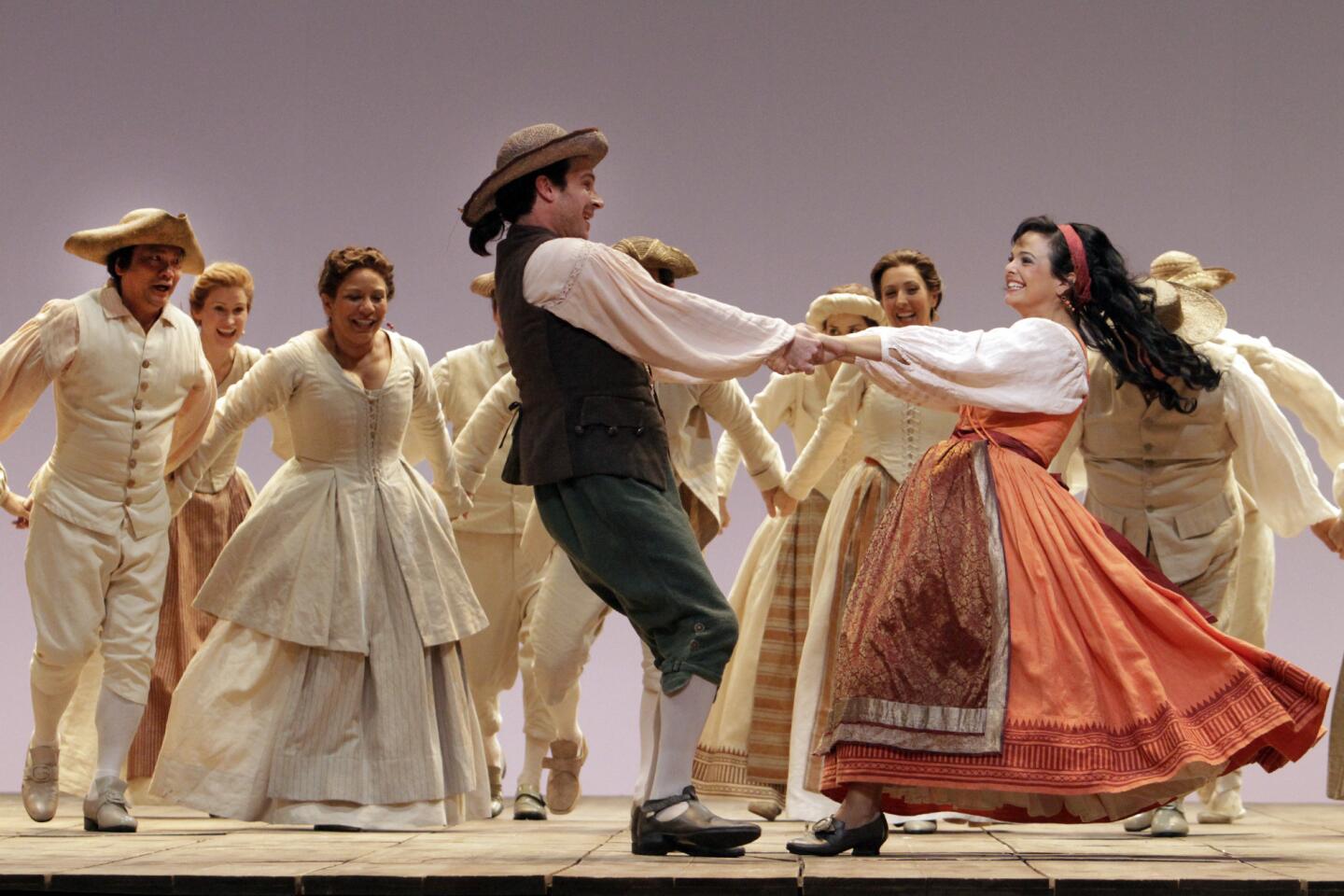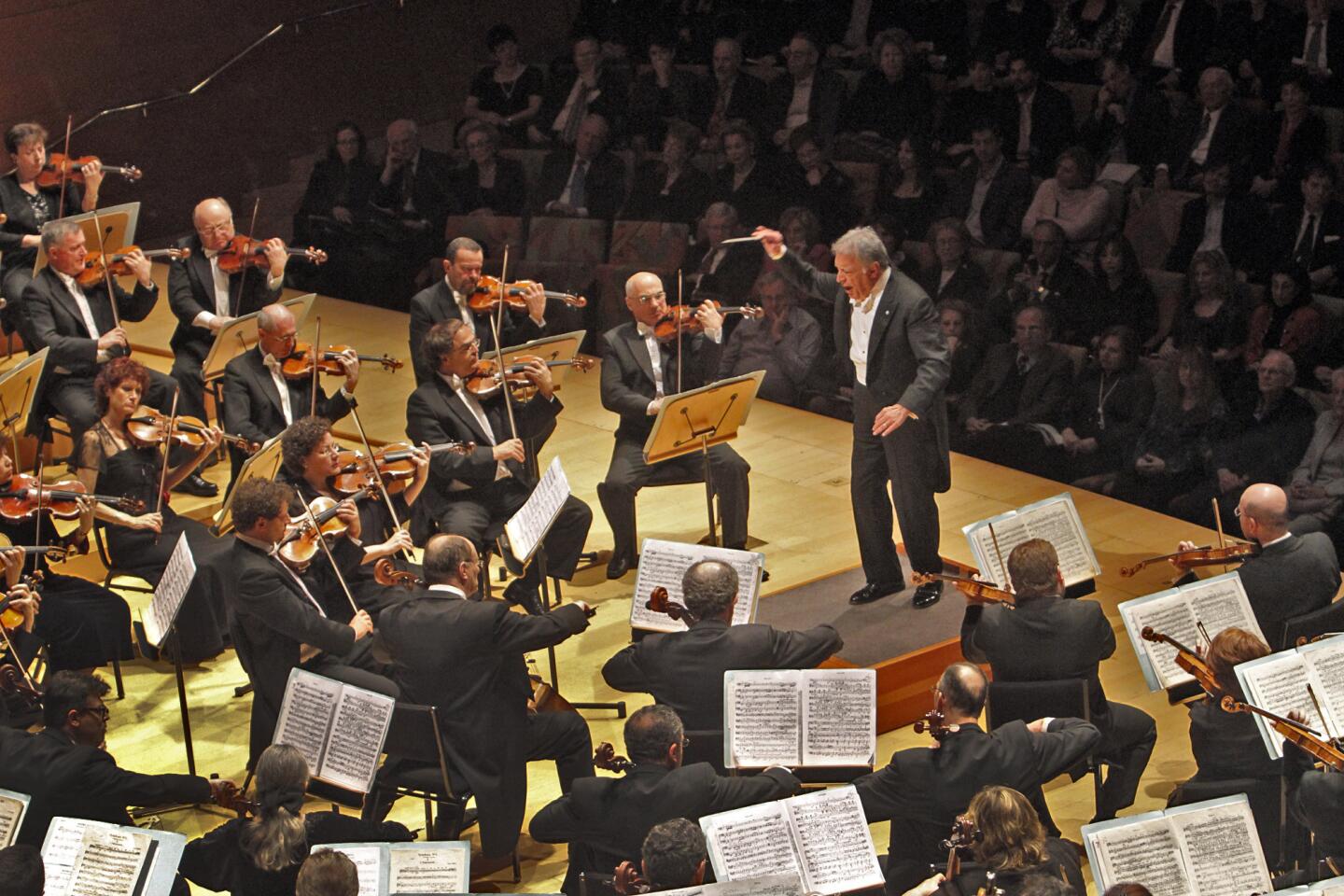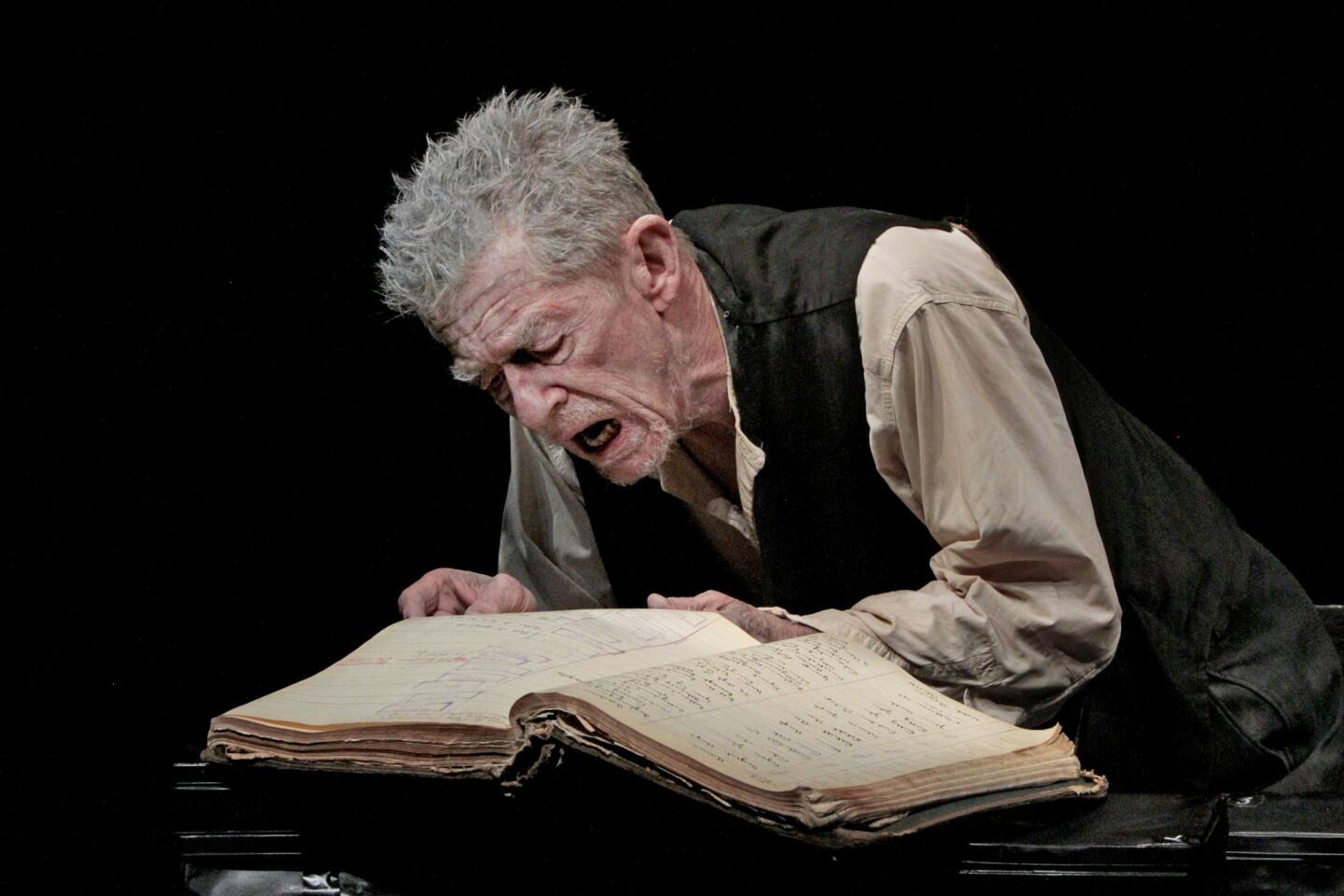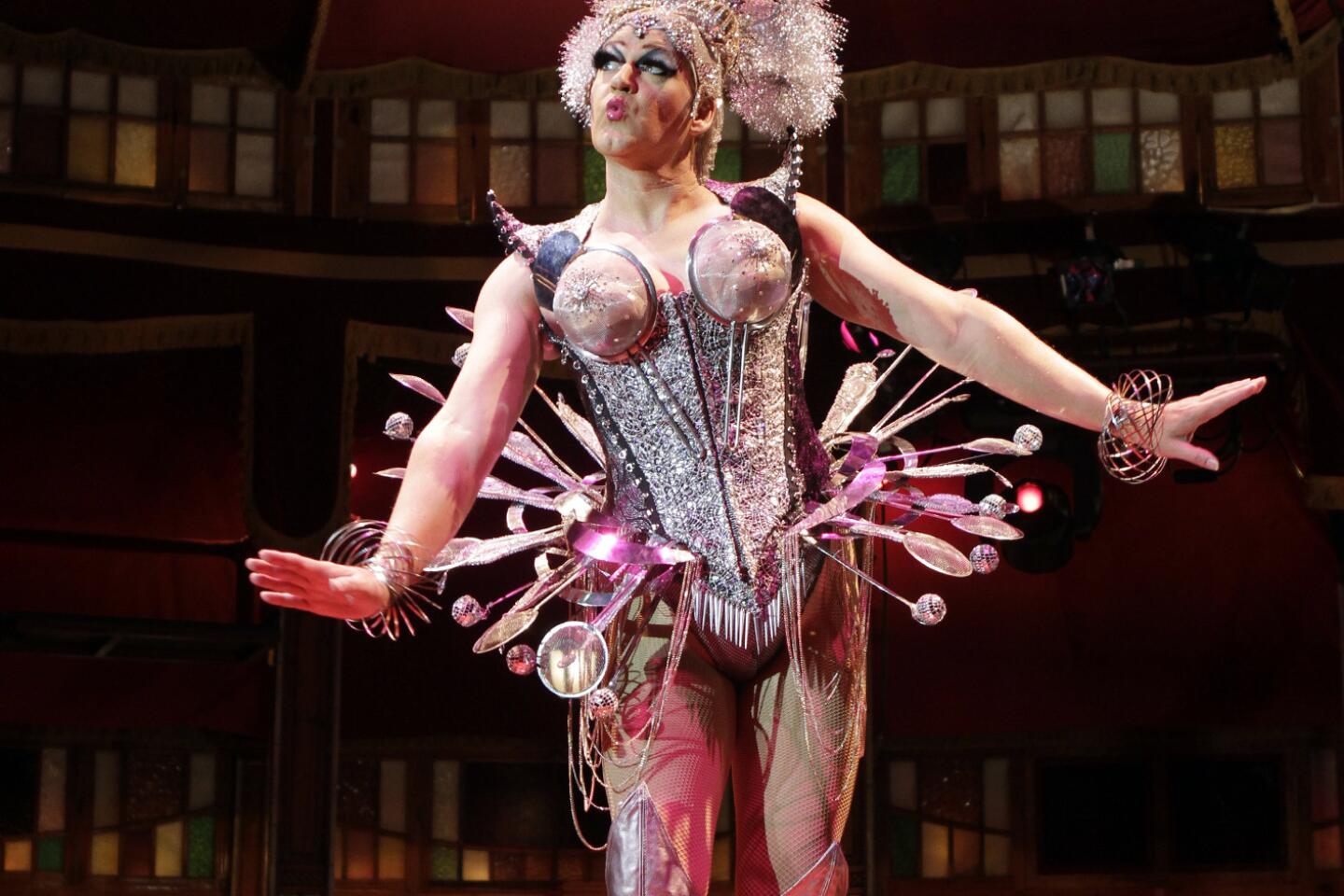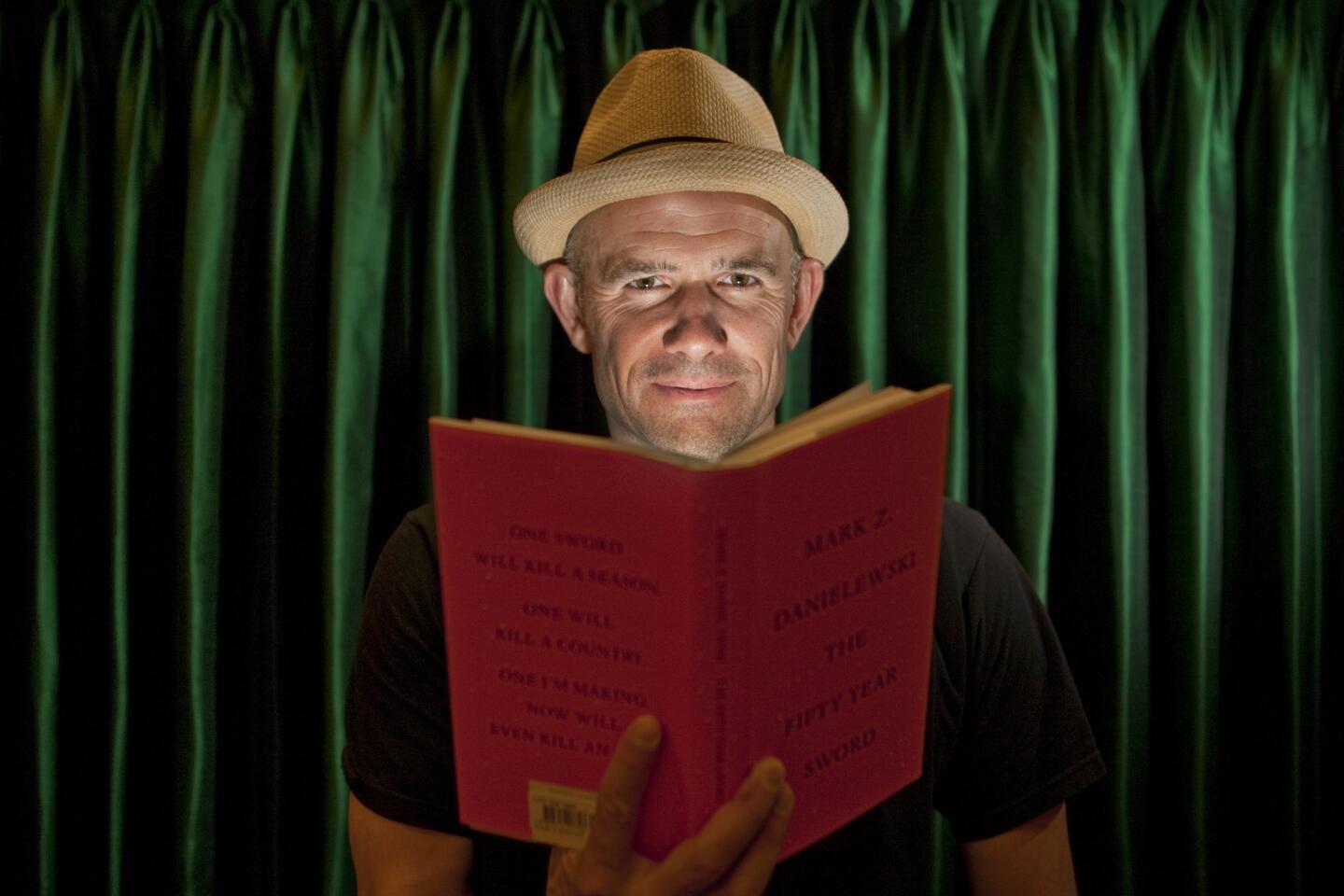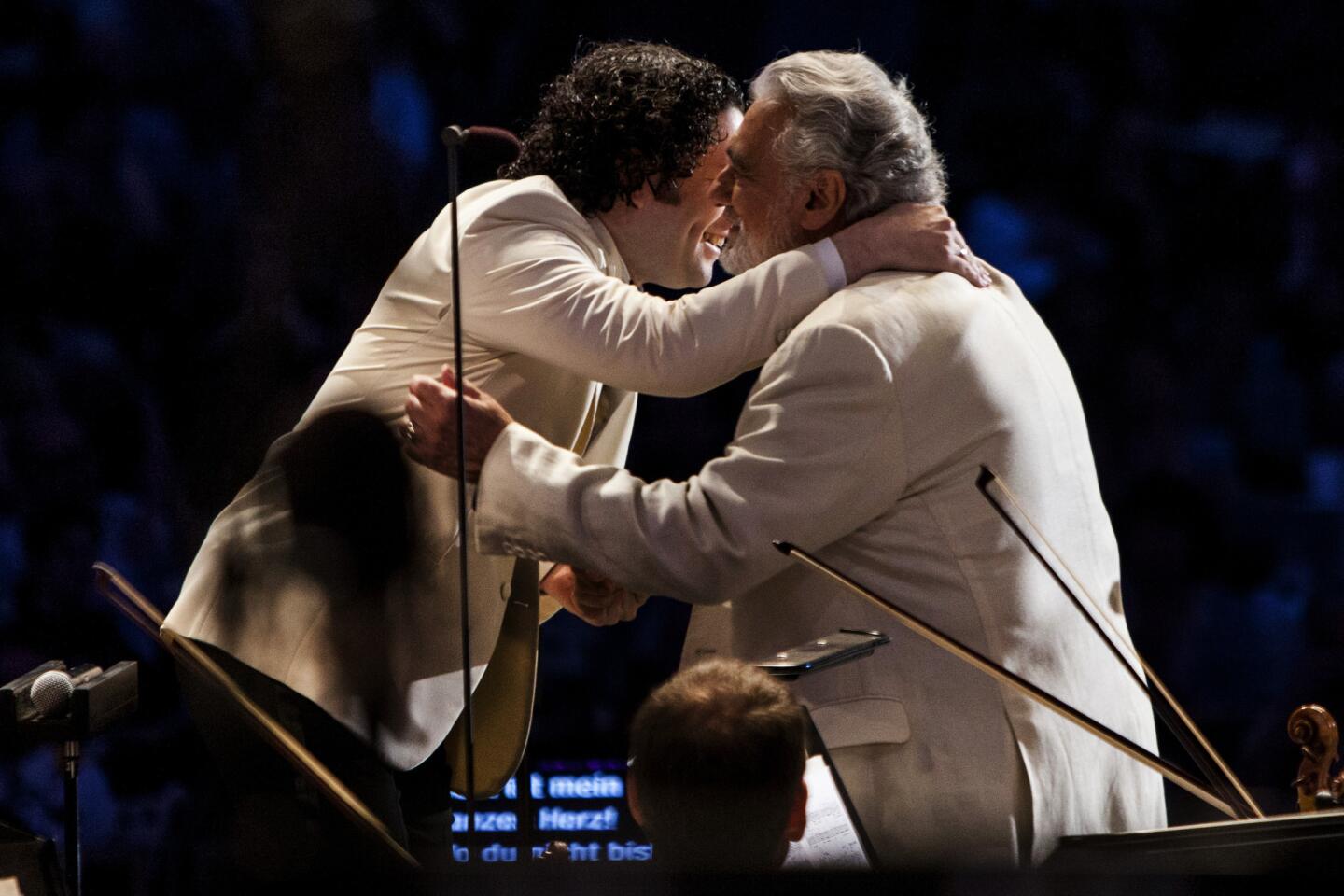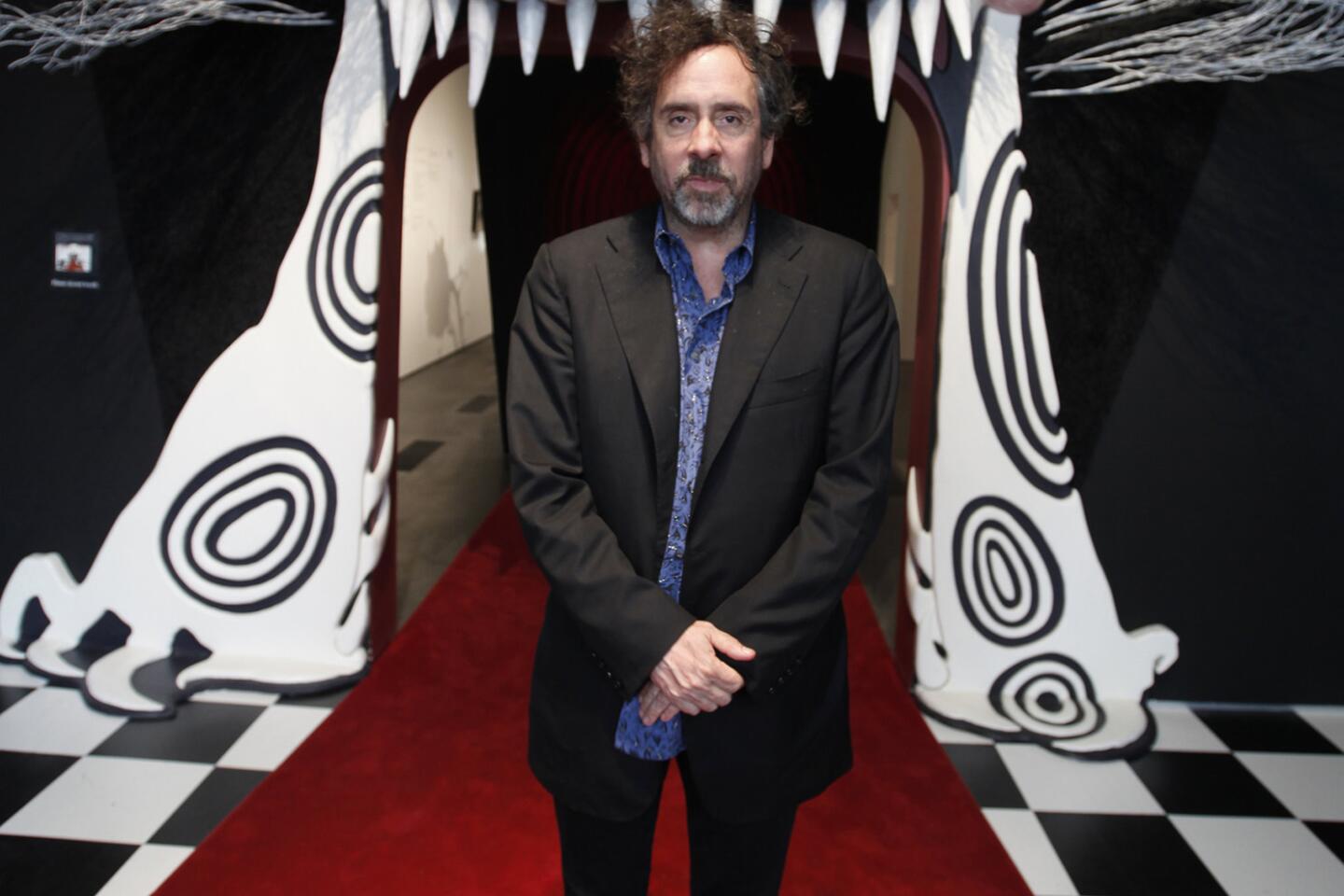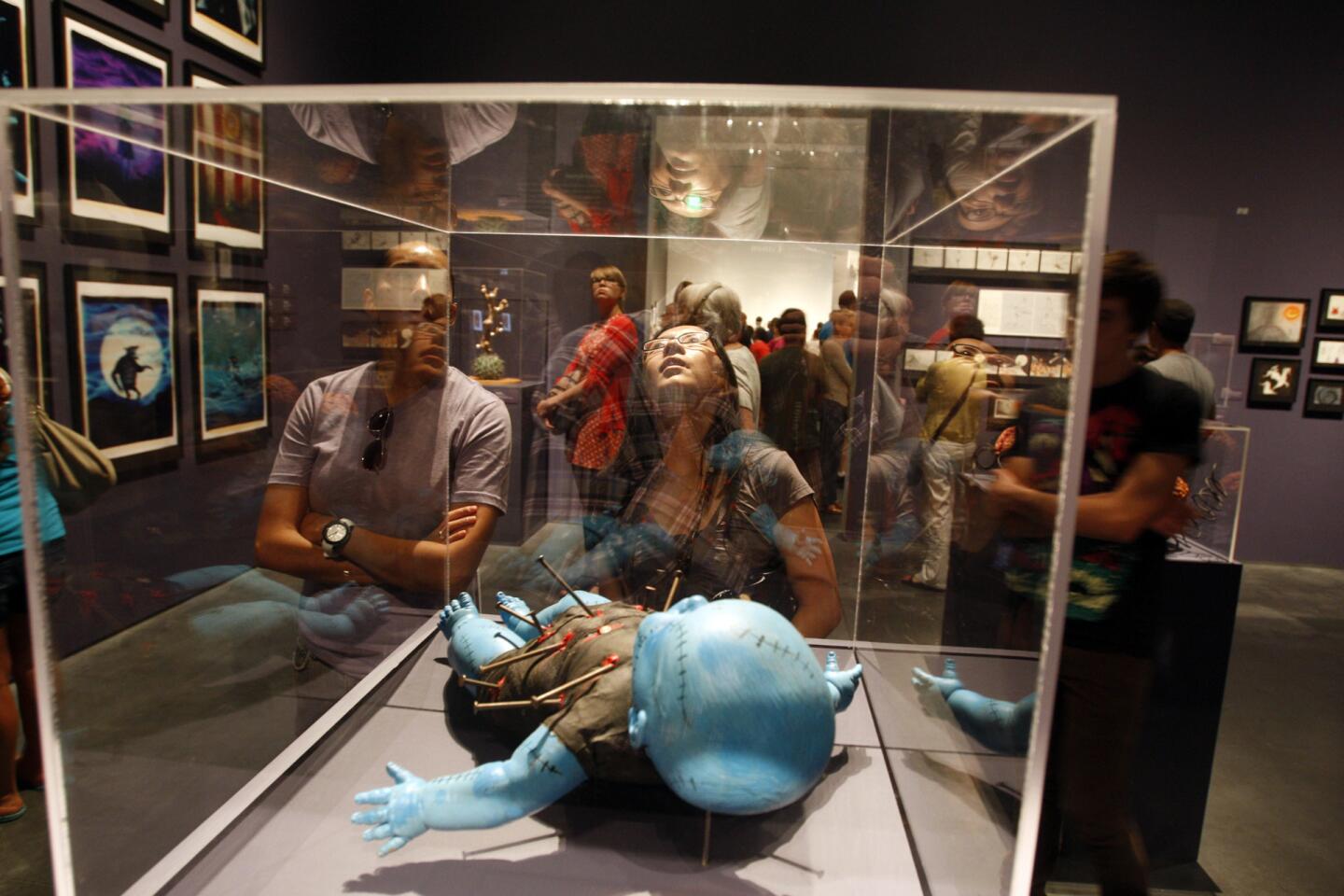Charlie Robinson has no delusions playing Willy Loman
- Share via
When 13-year-old Luca Robinson caught a long touchdown pass during a youth football game a few weeks ago, his father, Charlie, practically burst with joy, as dads tend to do.
But Robinson is different in one respect from other proud Southern California fathers of budding athletes. He’s the only one currently starring on a prominent stage as Willy Loman in “Death of a Salesman.”
Not to rain on young Luca’s big moment, but that puts the boy’s achievement and his father’s natural reaction in a cautionary light that was not lost on Dolorita Robinson. She turned to her exulting husband and said, ‘You’re being just like Willy Loman!’”
From now until Sept. 29, Robinson will be putting mind, body, soul and 45 years of acting experience into being Willy Loman at South Coast Repertory — but only for about two hours at a time.
PHOTOS: Arts and culture in pictures by The Times
God help the man who, like Willy Loman, tries to live through his sons after having spent a lifetime feeding them his illusions about what it takes to succeed in life. For Willy, the personal magnetism to be “well liked” is what counts — and he’s sure both Loman boys have inherited their old man’s gift, especially Biff, a high school football hero.
Arthur Miller’s classic 1949 drama depicts the last two days of Willy’s life as a worn-out traveling salesman, leading up to what he sees as a final, redemptive big score — a suicide with a $20,000 insurance payoff that’s the equivalent of nearly $200,000 today. Enough, he figures, to underwrite a fresh start for Biff, who’s turned into an adult washout with a grudge against his dad.
In this production, the Loman family and their friends next door are black; the boss who fires Willy is white, but Robinson and director Marc Masterson are sure audiences won’t be tempted to infer a racist agenda. That would utterly distort Miller’s intentions, undermining the universality of Willy’s plight as an Everyman who’s become disposable because he’s grown old.
While keeping up a long career as a character actor in film and television — Robinson was a regular from 1984 to 1992 in the NBC sitcom “Night Court” — he has become something of a go-to guy for theaters staging plays about fathers who have intensely bad relationships with their sons.
PHOTOS: Hollywood stars on stage
He won an Ovation Award for L.A. theater excellence for his 2006 portrayal of embittered ex-ballplayer Troy Maxson in August Wilson’s “Fences” at the Odyssey Theatre, a role he’s done several times since, including in 2010 at South Coast Rep. Last year at SCR and the Pasadena Playhouse, he was Becker, the admirable cab-service proprietor at the center of Wilson’s “Jitney.”
Troy Maxson shockingly undermines his teenage son, and among those who found Robinson’s portrayal uncomfortably persuasive was little Luca.
“He was maybe 7 when he saw me do ‘Fences’ at Oregon Shakespeare Festival,” his father recalls. “My wife told me he said, ‘Is my dad going to treat me like that?’”
The Wilson plays are not tragedies, even though, like “Salesman,” they end on the day Robinson’s character is buried. There’s a concluding sense — muted in “Fences,” movingly affirmative in “Jitney” — that even though the dead father never reconciled with his son, he managed to impart something meaningful, generative and lasting.
At Willy Loman’s graveside, what’s felt is emptiness, confusion and waste.
PHOTOS: Best in theater for 2012
“Willy is a man who is in so much pain,” Robinson said. “I can understand somebody feeling so strongly about his family” that he’d commit suicide in a desperate bid to give them tangible proof that he was not a loser, after all.
Despite his considerable experience playing fathers at extreme odds with their sons, Robinson says that getting a handle on his current role “has been a true beast.”
“I take Willy Loman as his own creature,” he said, so it made little sense to try to understand him through the lens of past comparable roles. “I’ve grown as a person” while struggling with the part, Robinson said. “I guess I do in any role, but this has been something special.”
Among other things, he said, pretending to be Willy Loman — and the other anguished fathers — has driven home what a blessing it is not to be “just like” him. “The roles have made me more thankful for the life I have,” he said. At 67 — four years older than Willy — he’s far from washed-up in his working life, and he’s not on trying terms with his sons. Charlie and Christian, grown sons from a previous marriage, are bartenders in Las Vegas.
Part of Willy’s plight, Robinson thinks, is incipient dementia — a theory substantiated by the blackout the shaken salesman speaks of having suffered on the road early in the play and by the phantoms from his past that repeatedly intrude as it goes on.
Robinson is a tall, lean, well-muscled, easily smiling picture of vigor, so turning himself into American drama’s epitome of broken-down defeat does seem, on the surface, like quite the acting challenge.
After “Jitney” closed last year, Masterson, South Coast Repertory’s artistic director, asked Robinson what other roles he most wanted to play. King Lear and Willy Loman were at the top of his list.
Masterson, who has led theaters in Pittsburgh, Louisville and now Costa Mesa for more than 30 years, had conversed, dined and conducted a public interview with Arthur Miller but never had directed one of his plays. “It was on my bucket list too,” he said.
For actor and director, it’s a reunion after more than 40 years. From age 11 through his high school years, Masterson studied acting at Studio 7, a theater in Houston, and performed in its productions for young audiences. At 13, he played Huck Finn opposite Robinson’s Jim in an adaptation of “The Adventures of Huckleberry Finn.”
“We probably cemented our friendship then,” the director said. “That was a transformative experience for me. It made me want to be in theater.”
Robinson says he came to Studio 7 in the mid-1960s after enjoying Bill Cosby in the TV series “I Spy,” then noticing an ad for the theater company’s acting courses. “I was watching [Cosby] and thought, ‘Maybe I could do that.’”
If it had been up to Wilson, who died in 2005, Robinson wouldn’t be playing Willy Loman. In an address at Princeton University in 1996, the great playwright, who dreamed of an economically feasible national network of black theaters telling black stories, attacked the common practice of transposing “white” plays into black milieus.
“To mount an all-black production of ‘Death of a Salesman’ or any other play conceived for white actors as an investigation of the human condition through the specifics of white culture is to deny us our own humanity, our own history, and the need to make our own investigation from the cultural ground on which we stand as black Americans,” Wilson said.
Robinson thinks its perfectly legitimate for black actors to play roles first conceived for whites — as he also had done in the Odyssey Theatre’s 2007 production of Eugene O’Neill’s “Desire Under the Elms.”
“As much as I love August, it’s the one thing I disagree with him about,” Robinson said. “I think you can grow by playing this role. If it’s an African American cast, the audience will say, ‘We all have the same problems. We go through the same things.’”
Lear remains high on his to-do list, but Masterson thinks that after so many turns as a father going through wrenching episodes with his kids, a change of pace might be healthy for Robinson.
“We’ve been joking that maybe Charlie’s next production ought to be a really silly comedy,” the director said.
‘Death of a Salesman’
Where: South Coast Repertory, 655 Town Center Drive, Costa Mesa.
When: 7:30 or 8 p.m. Tuesdays-Sundays, except Sept. 29; 2:30 p.m. Saturdays, Sundays and Sept. 19. Ends Sept. 29.
Tickets: $20 to $72
Info: (714) 708-5555; https://www.scr.org
More to Read
The biggest entertainment stories
Get our big stories about Hollywood, film, television, music, arts, culture and more right in your inbox as soon as they publish.
You may occasionally receive promotional content from the Los Angeles Times.
